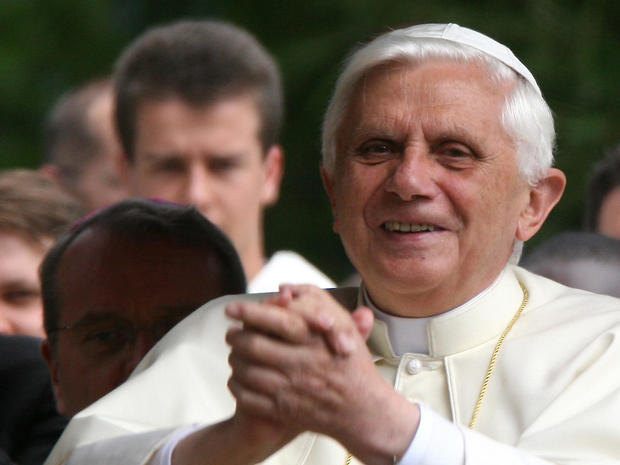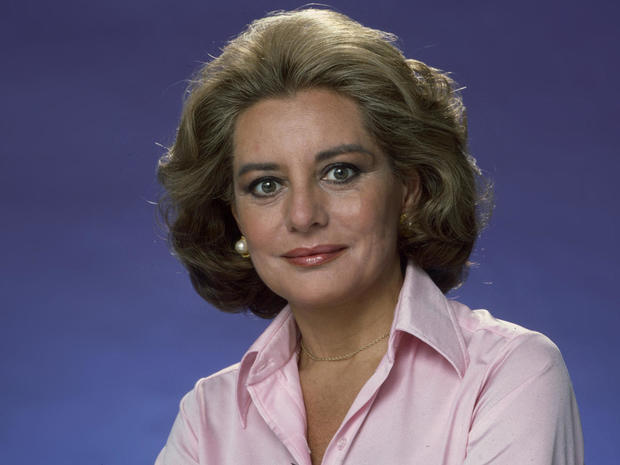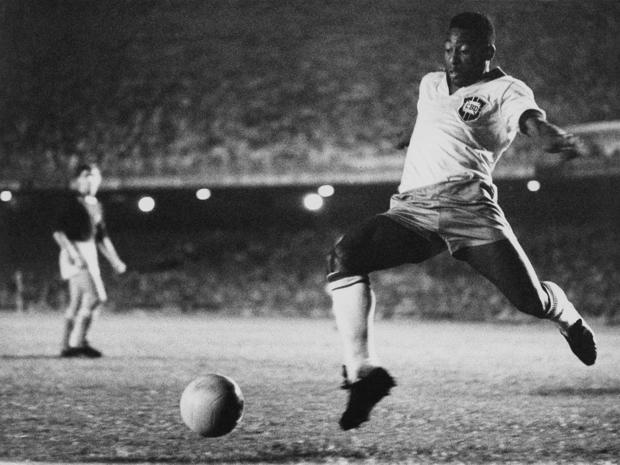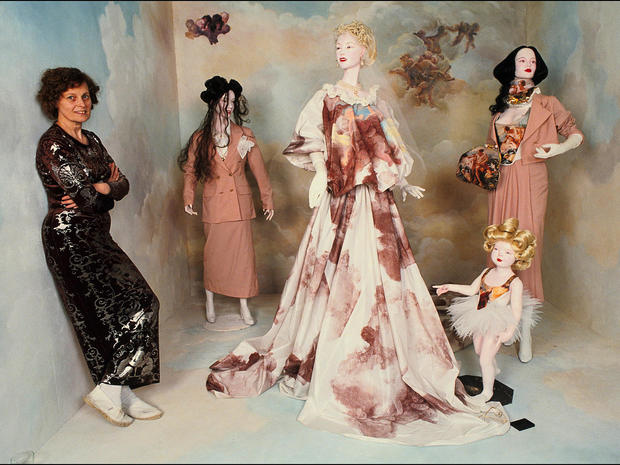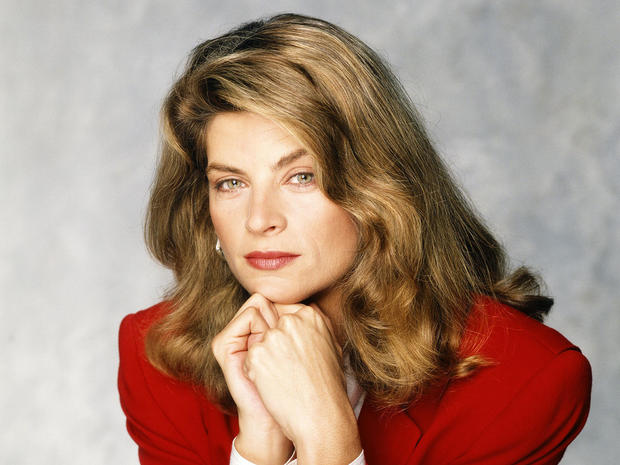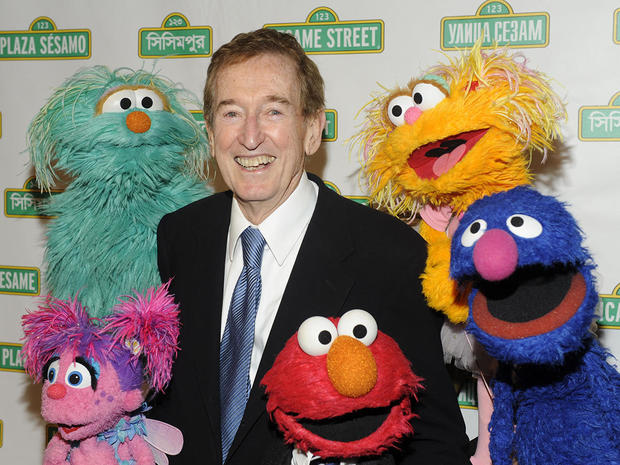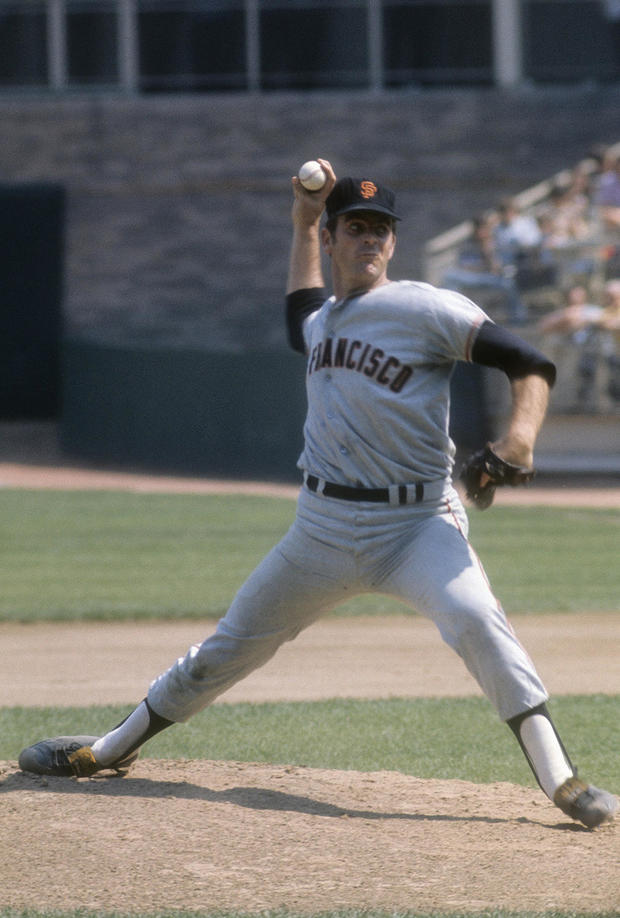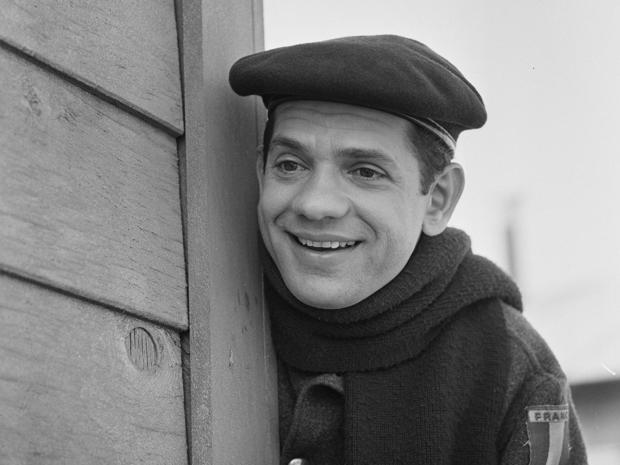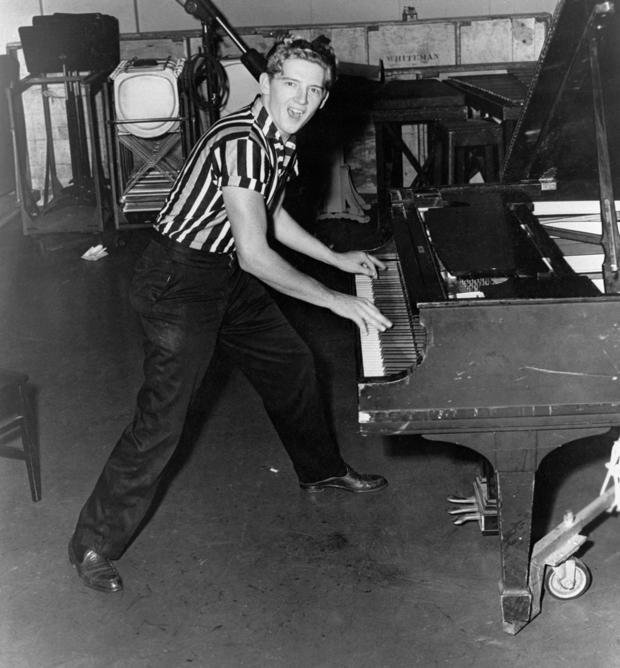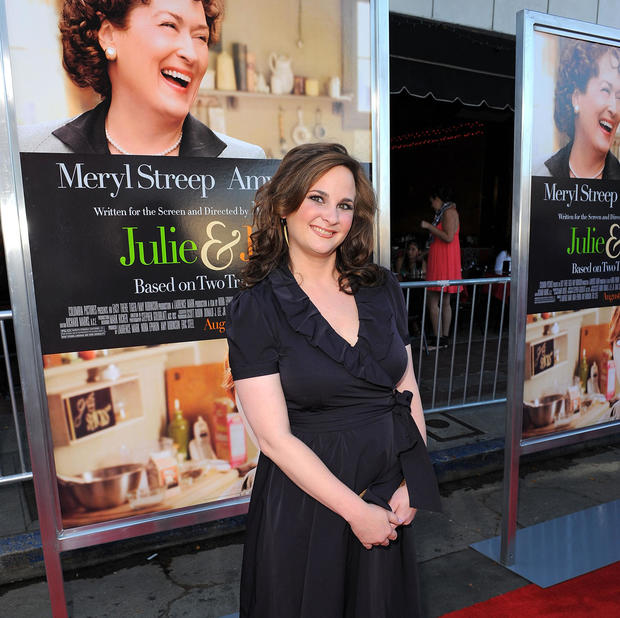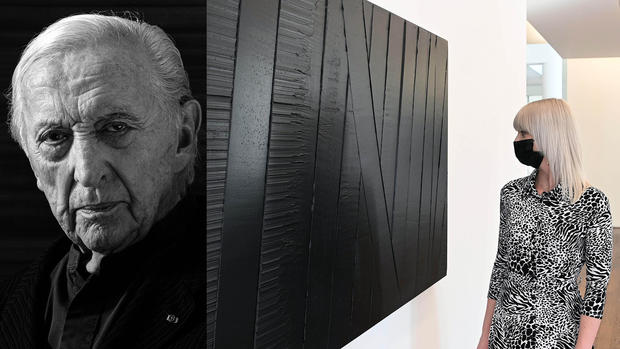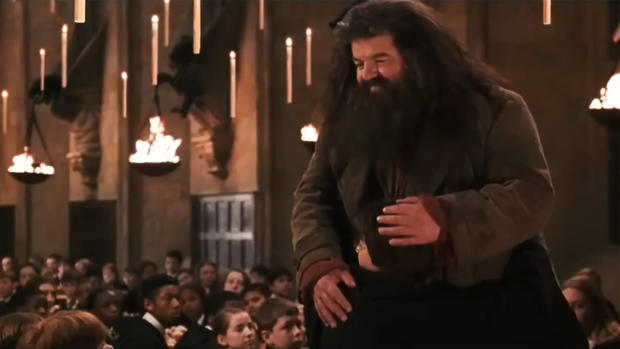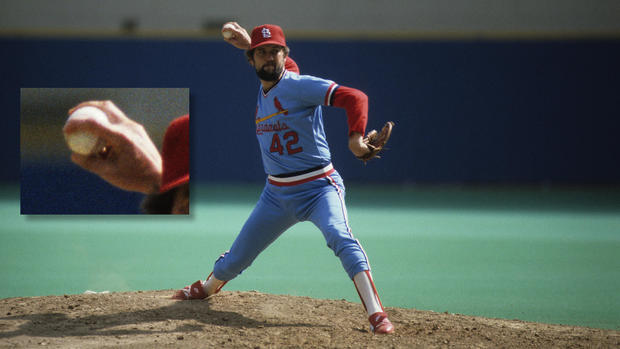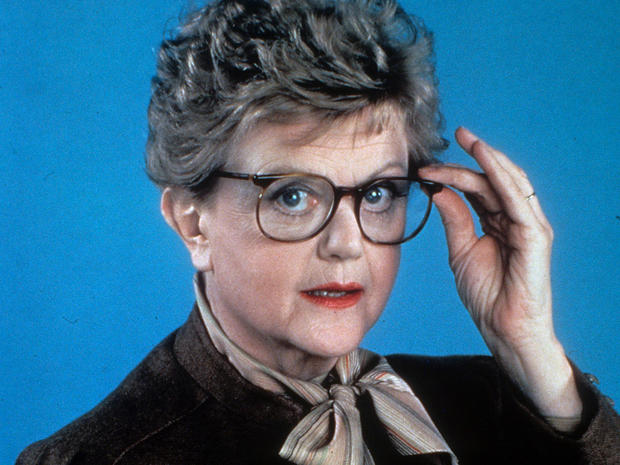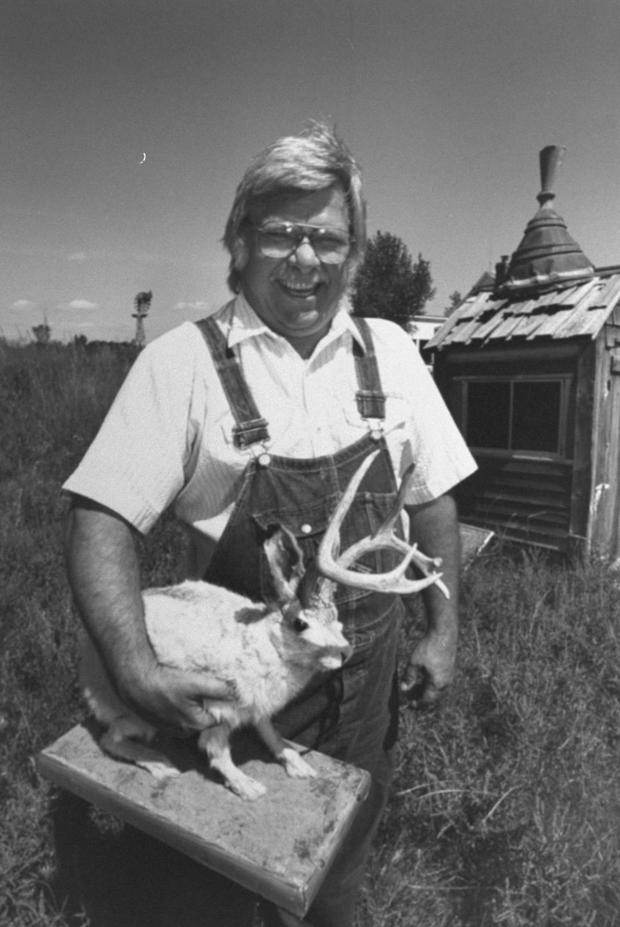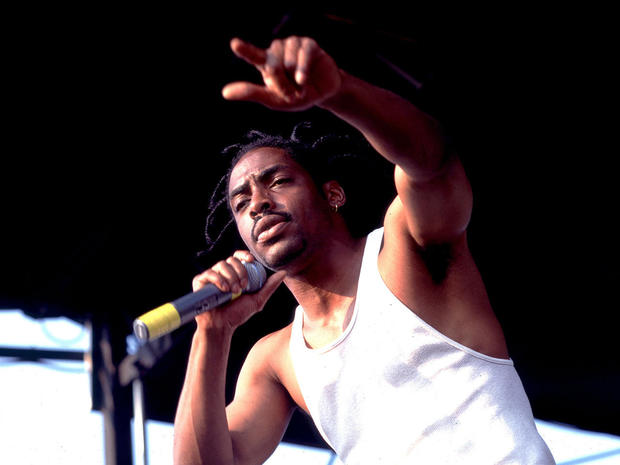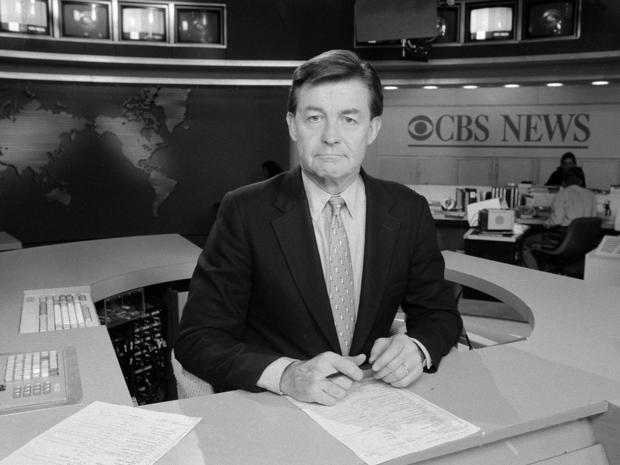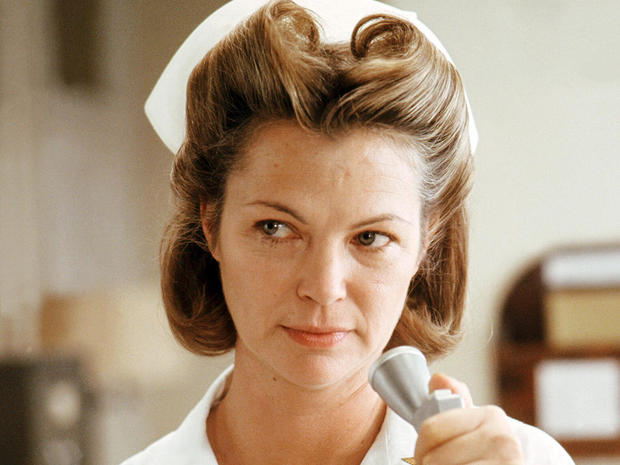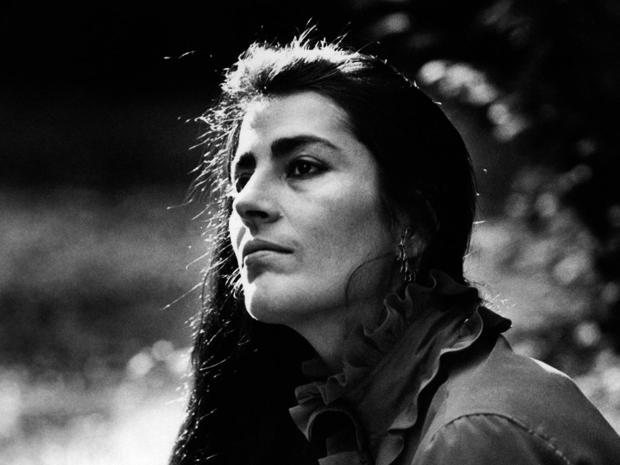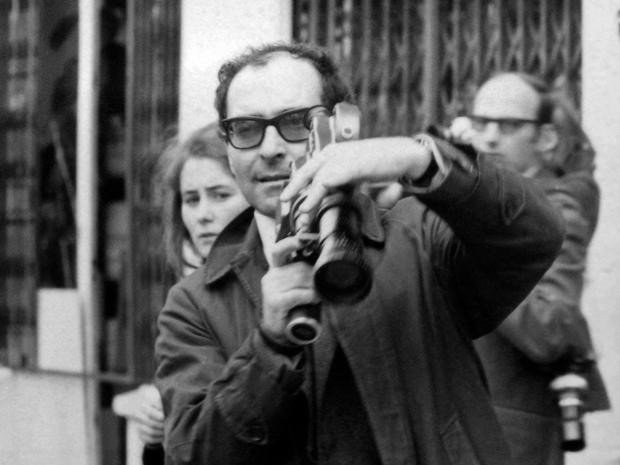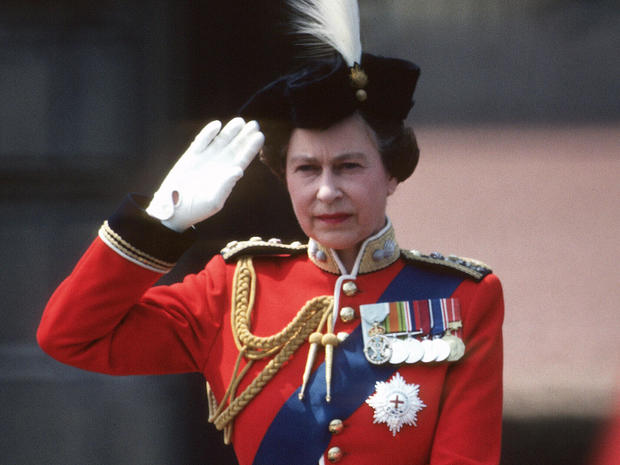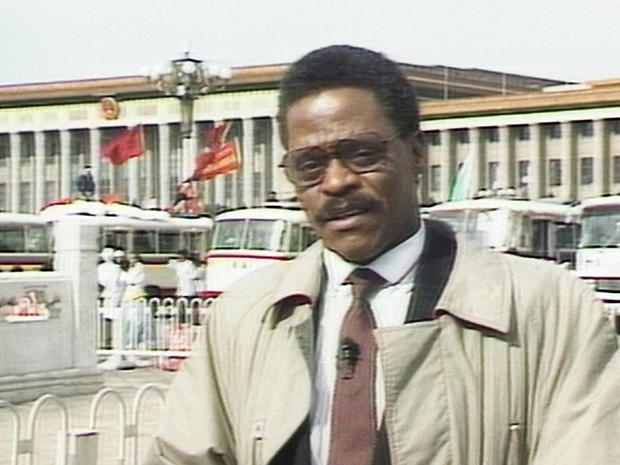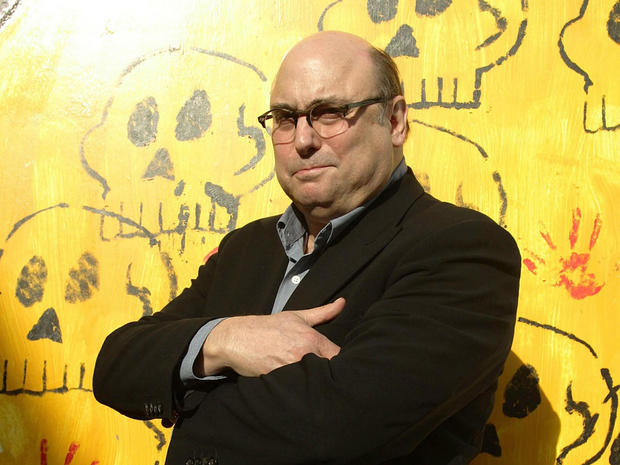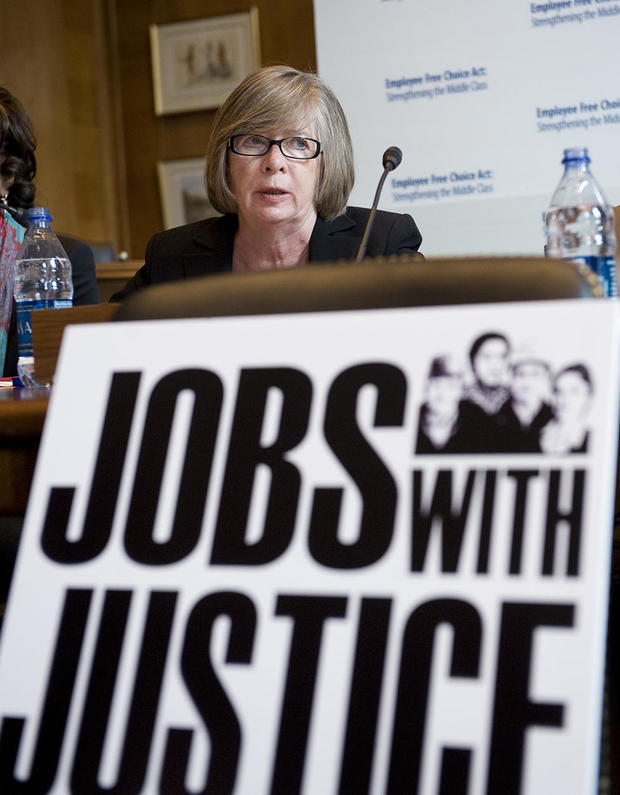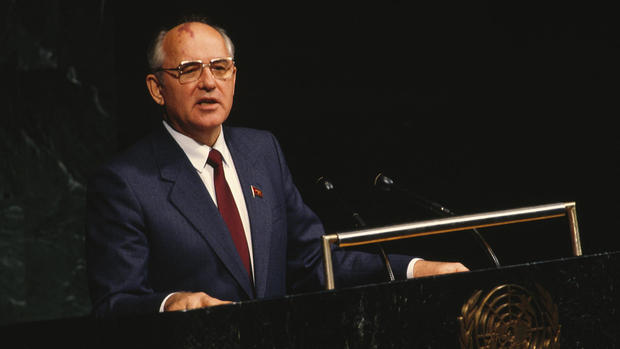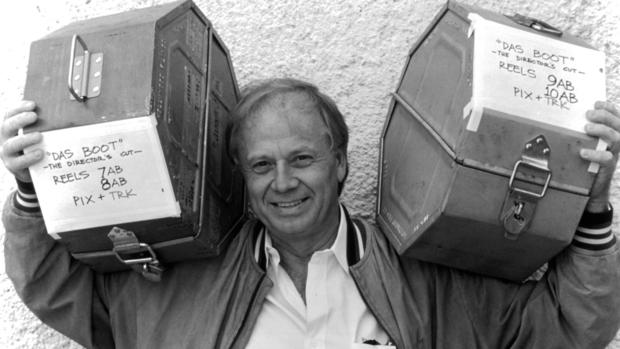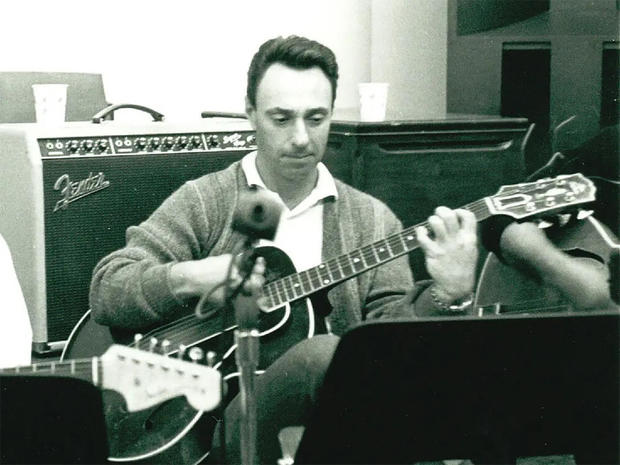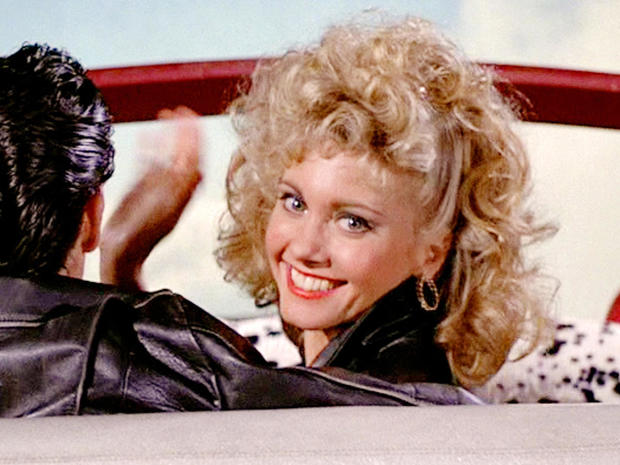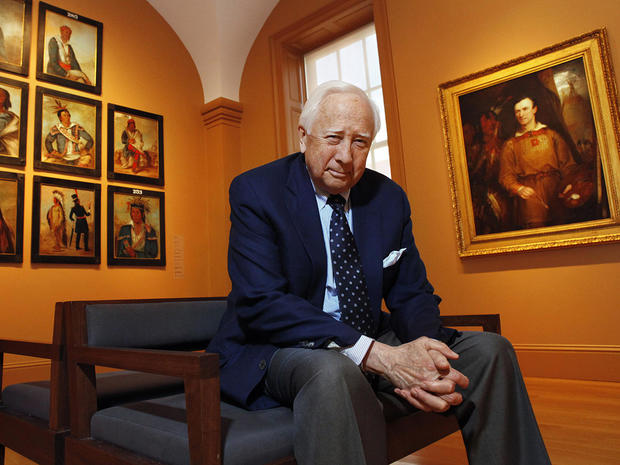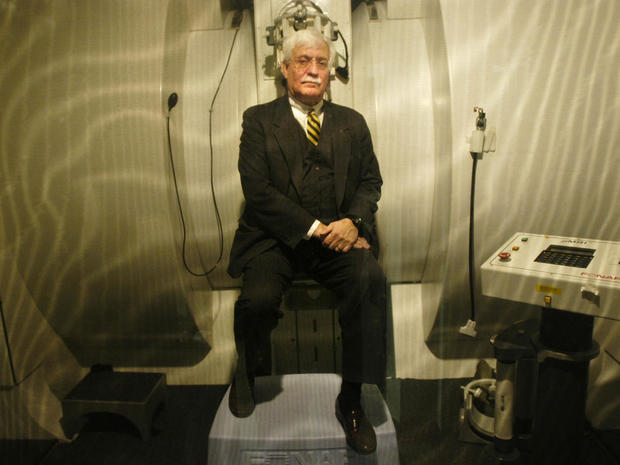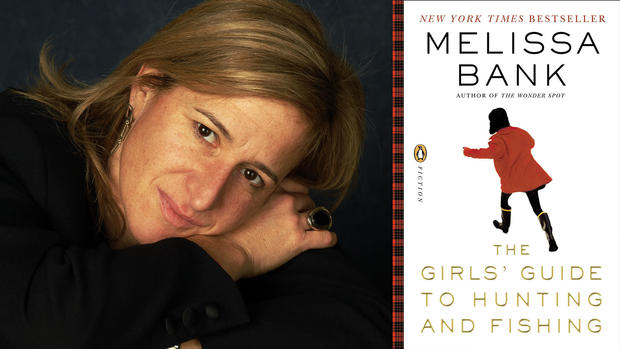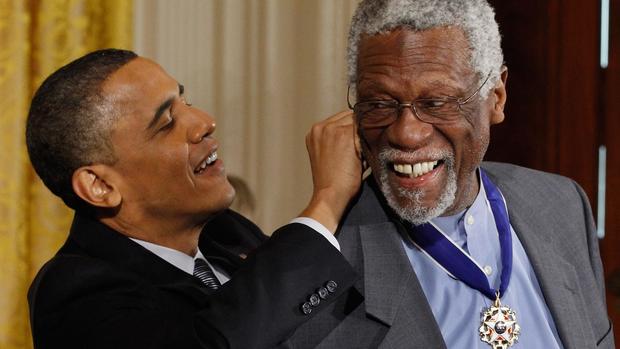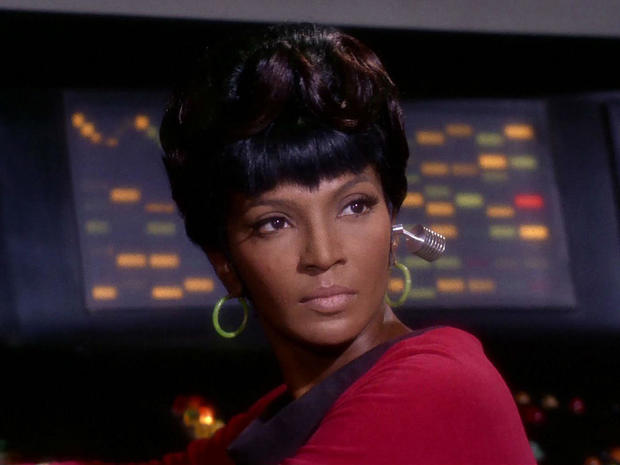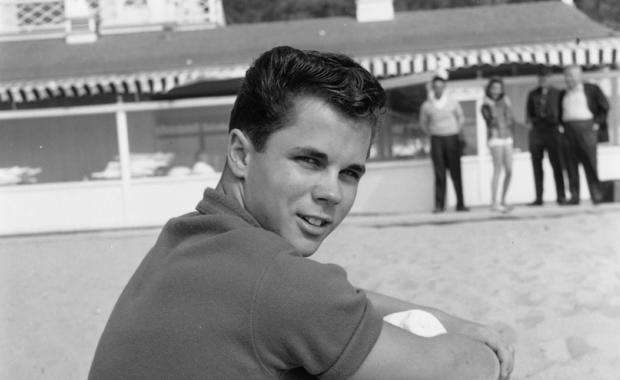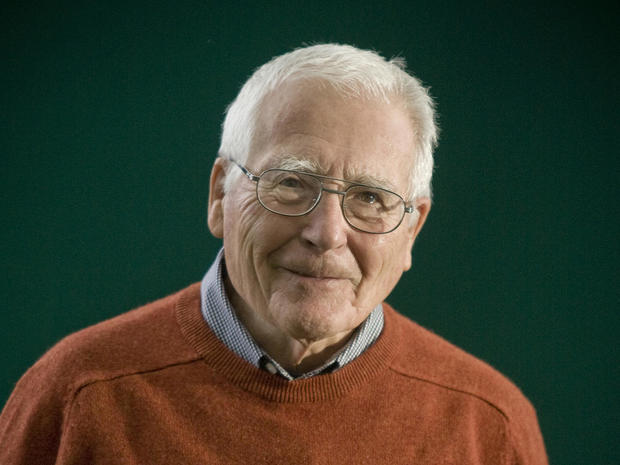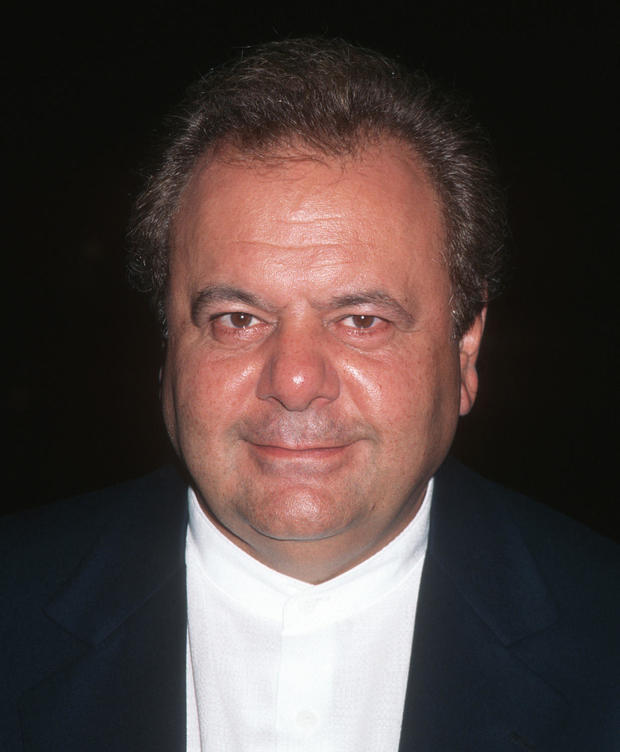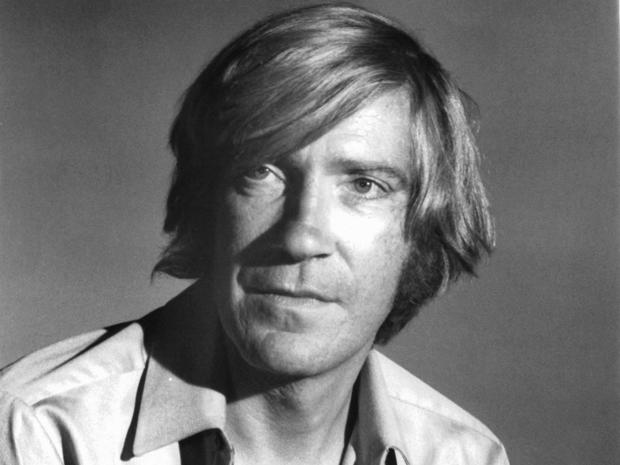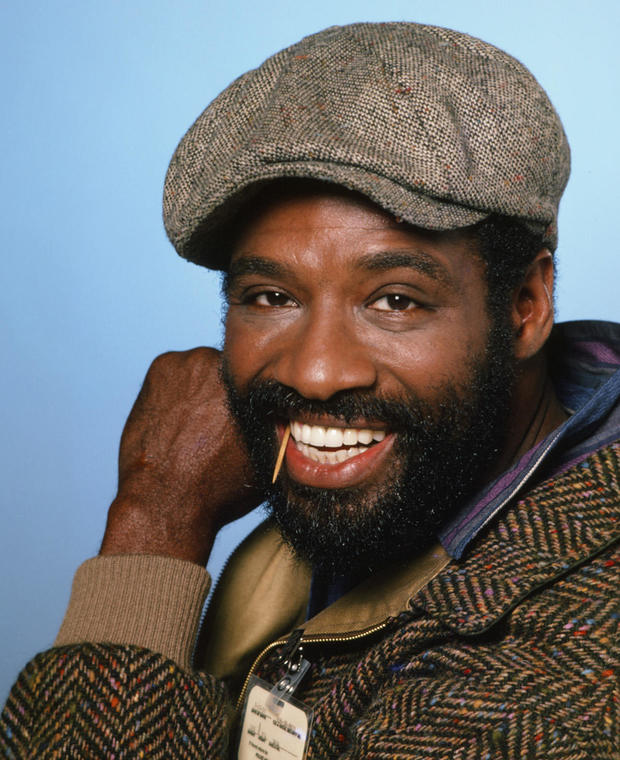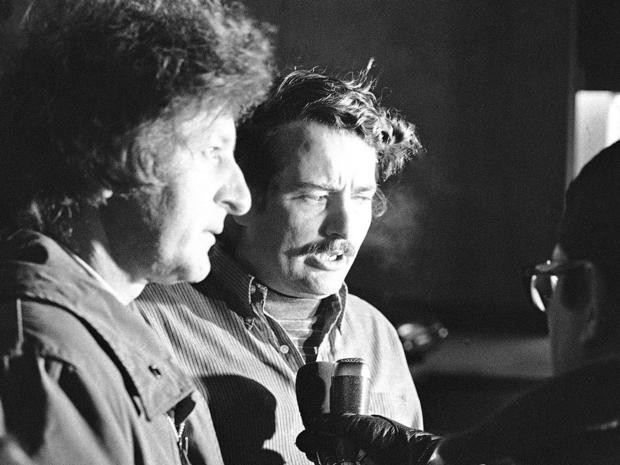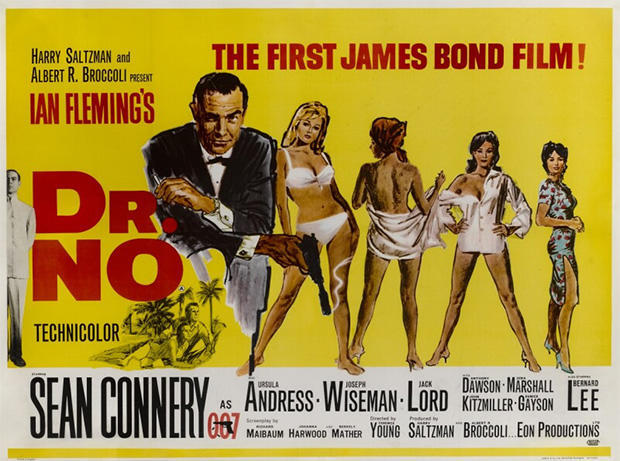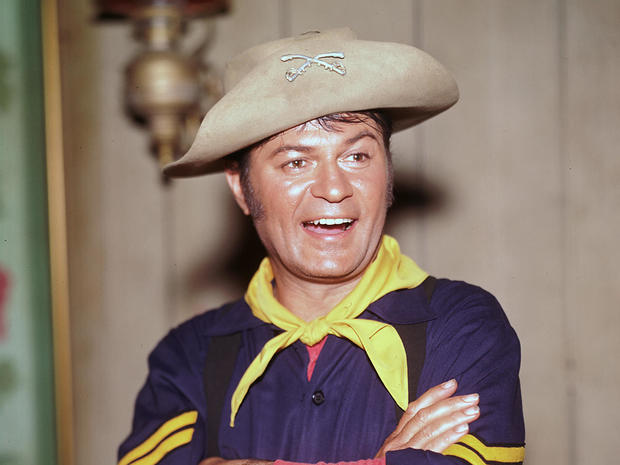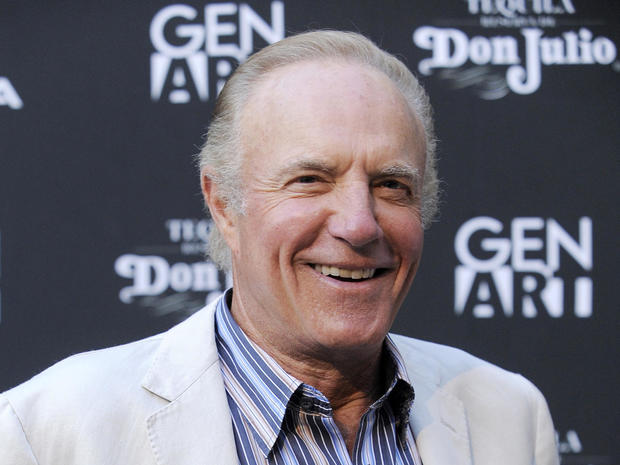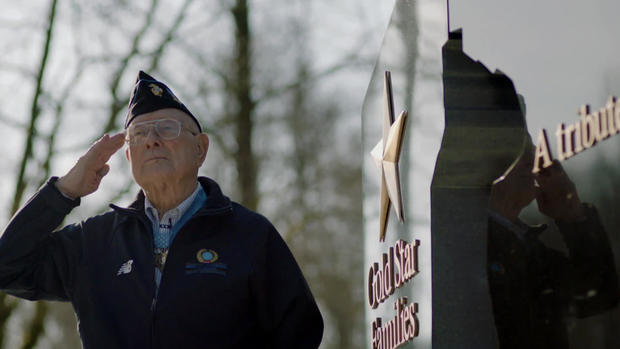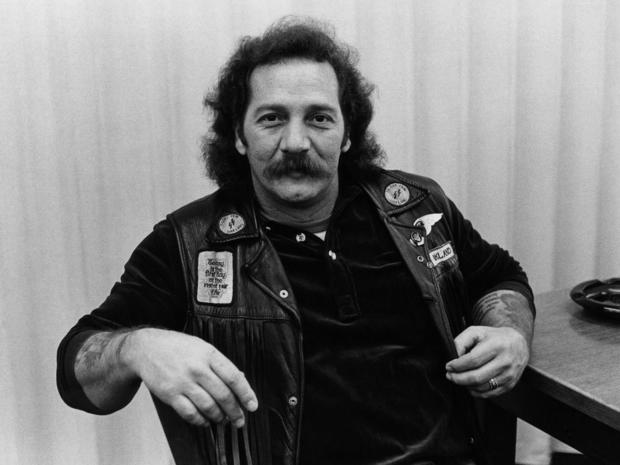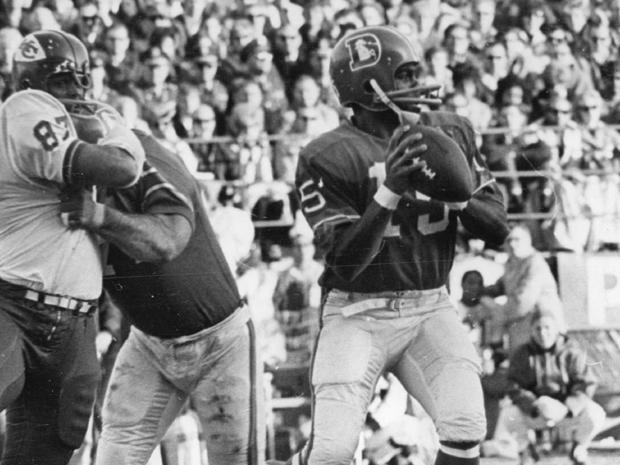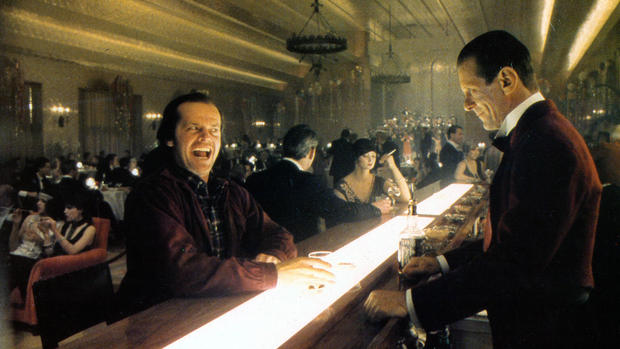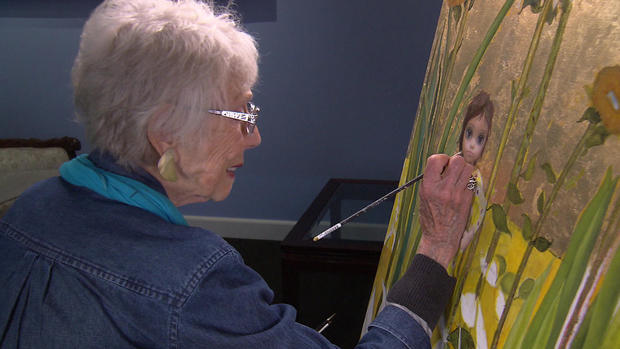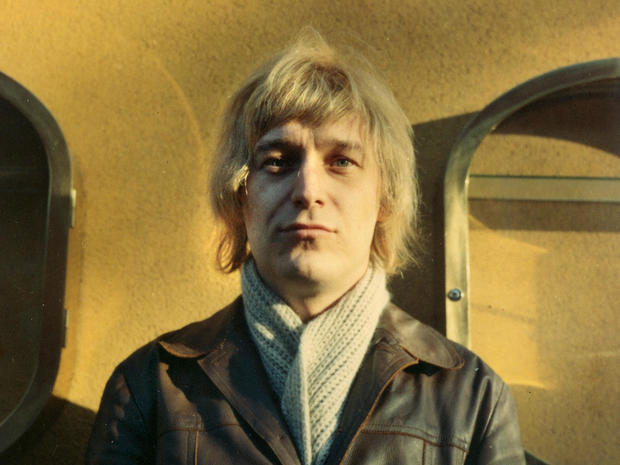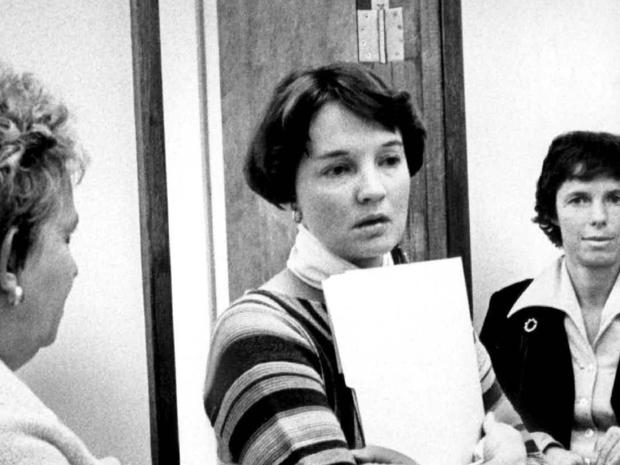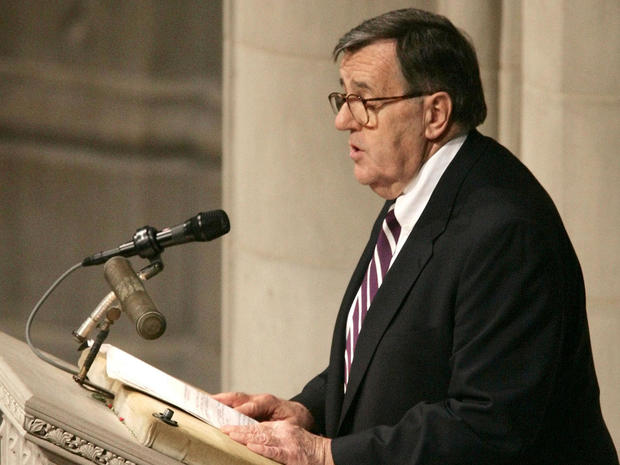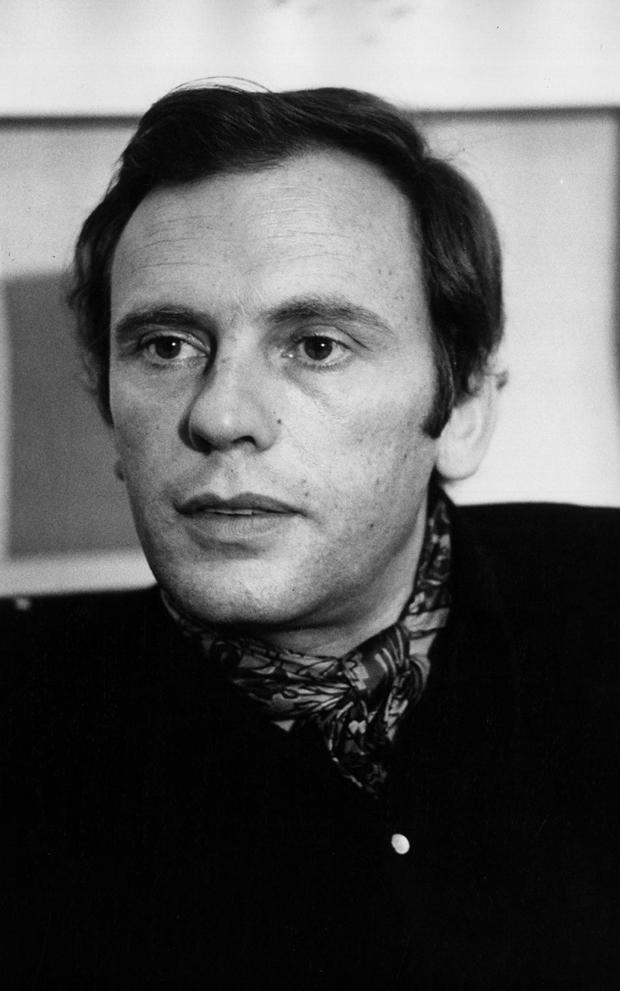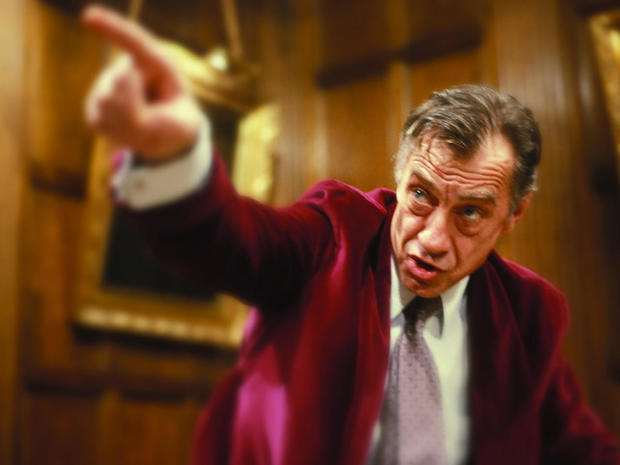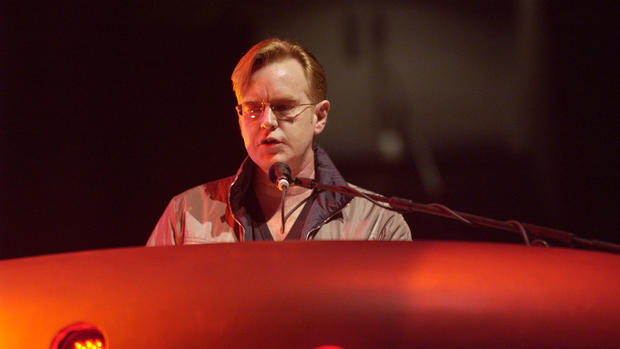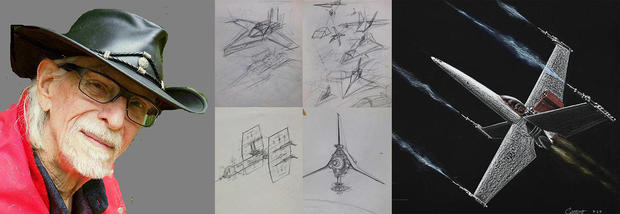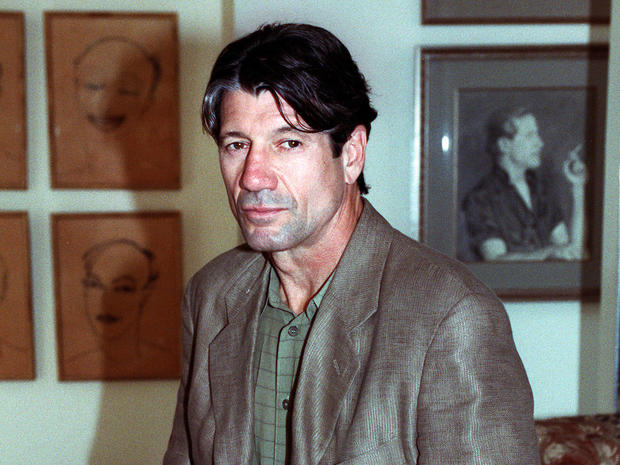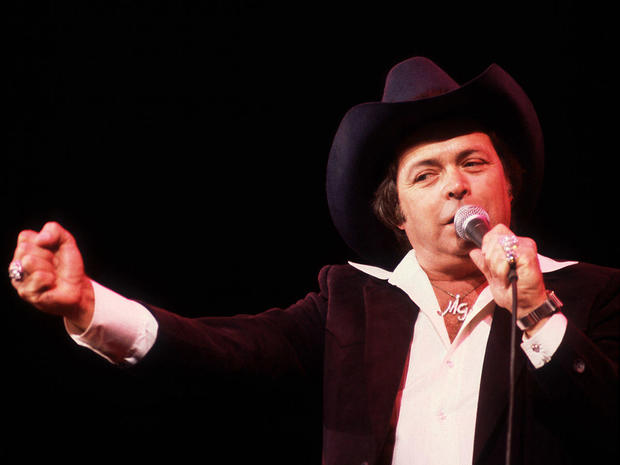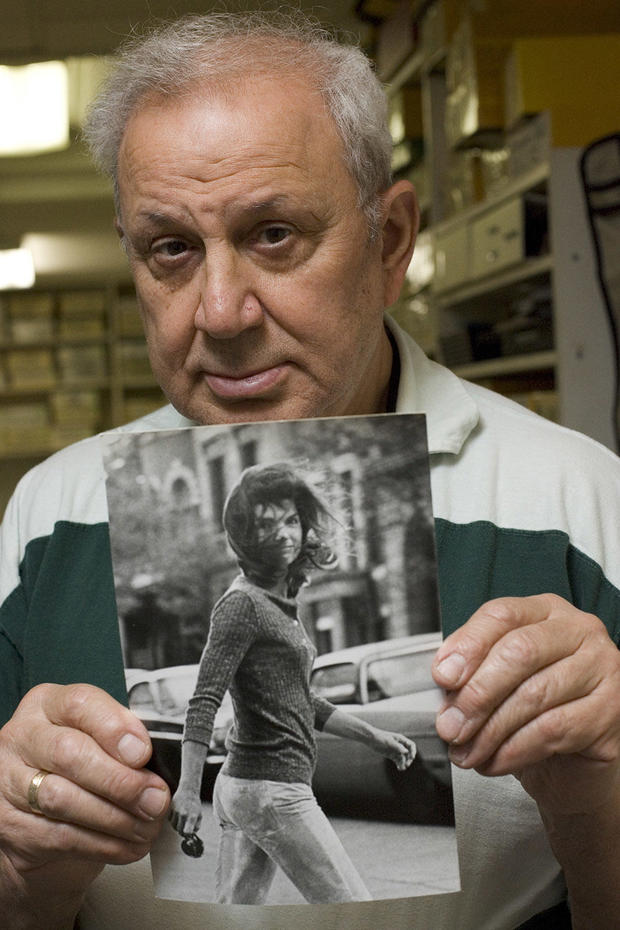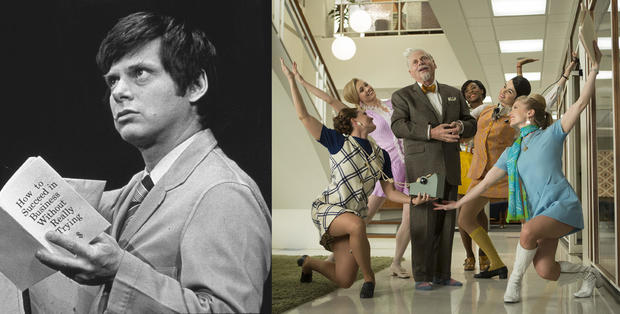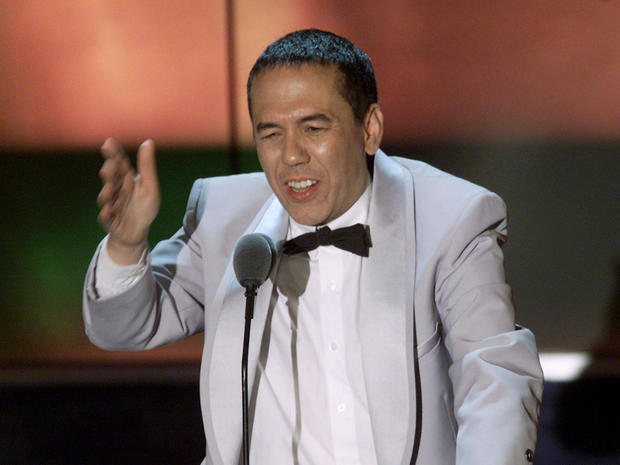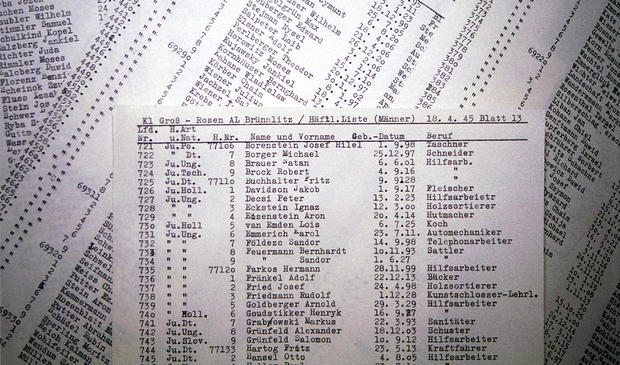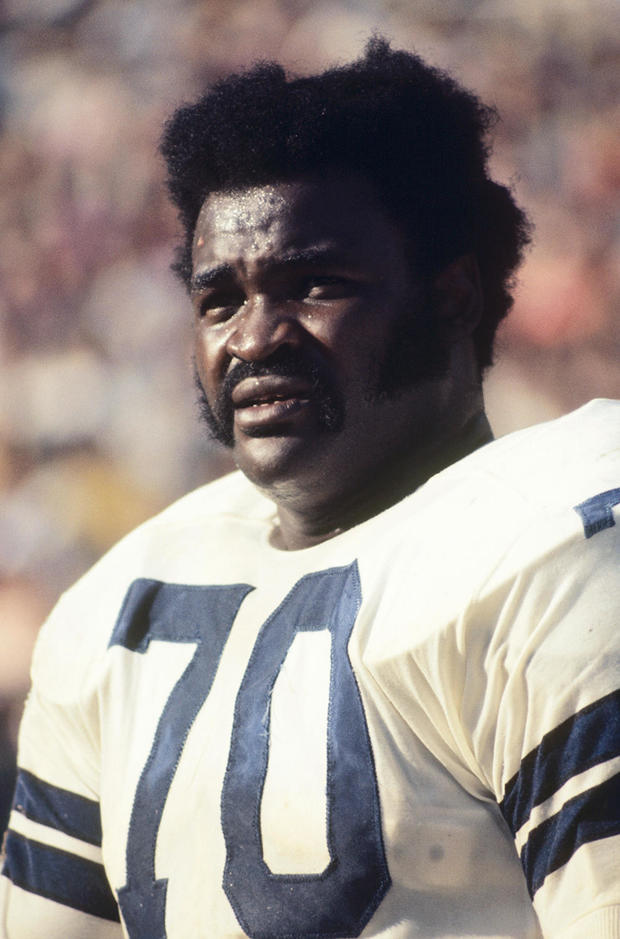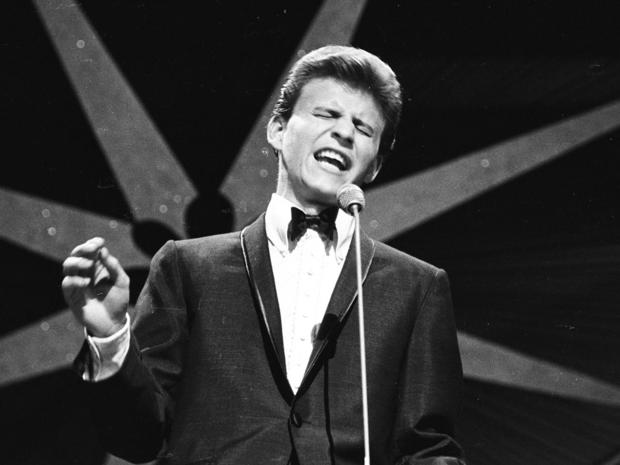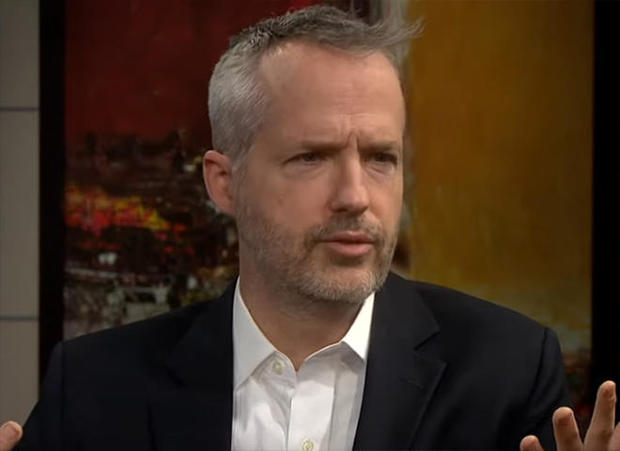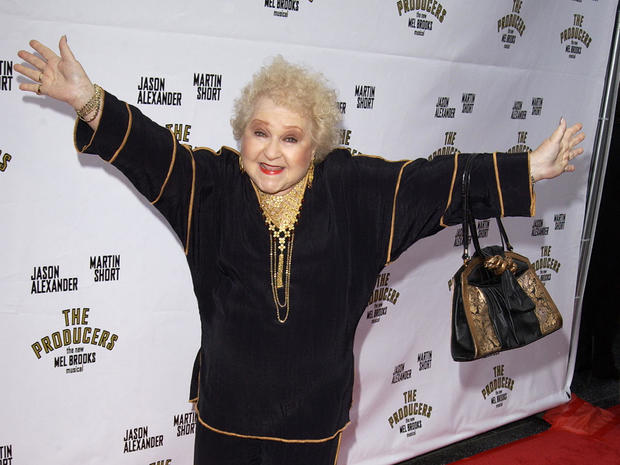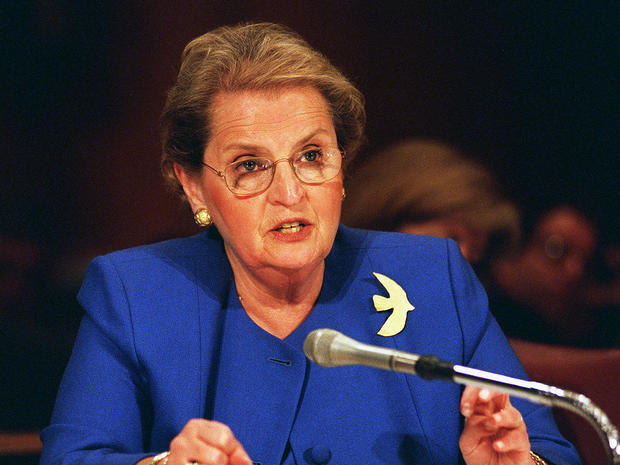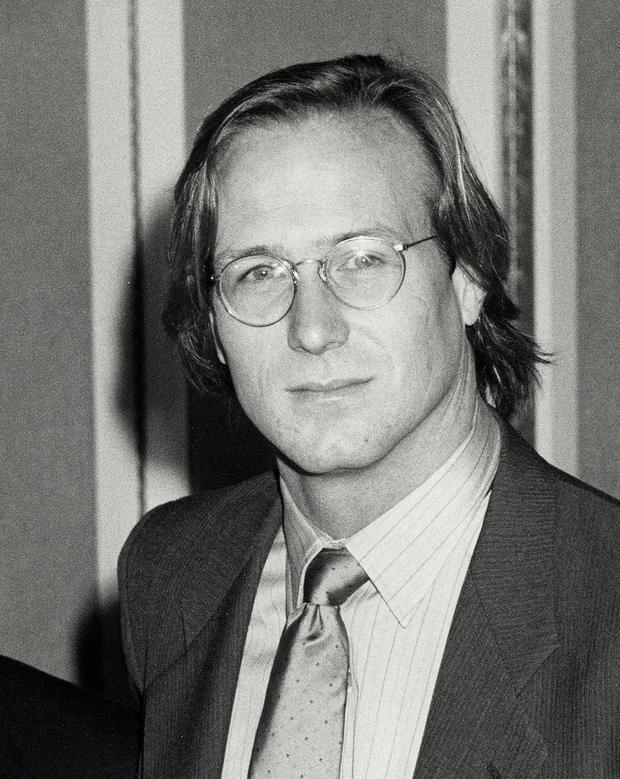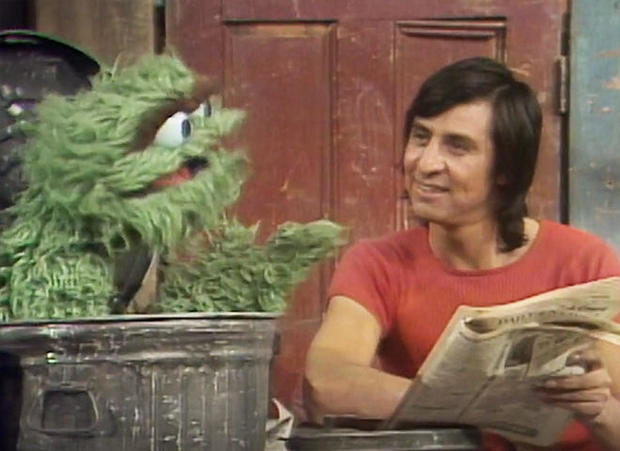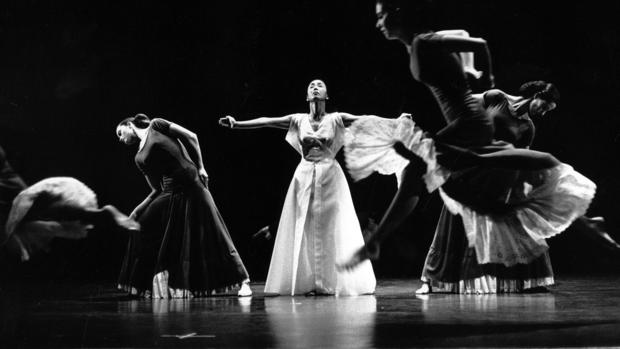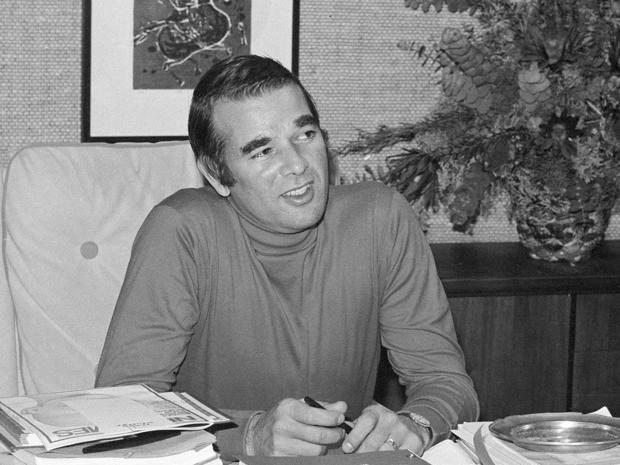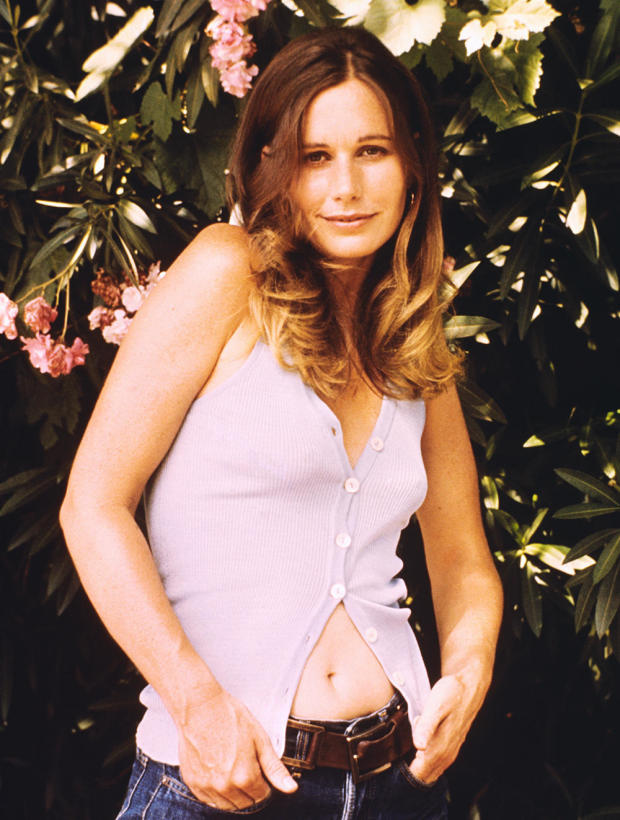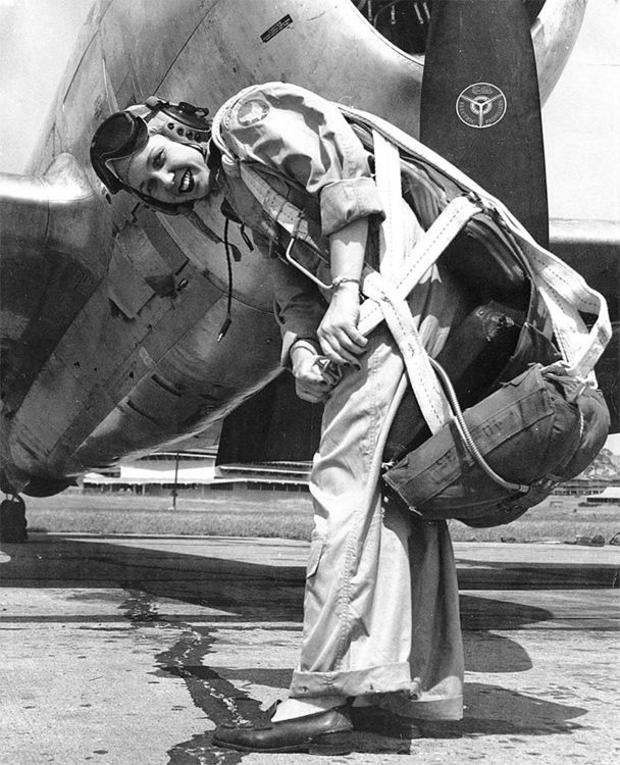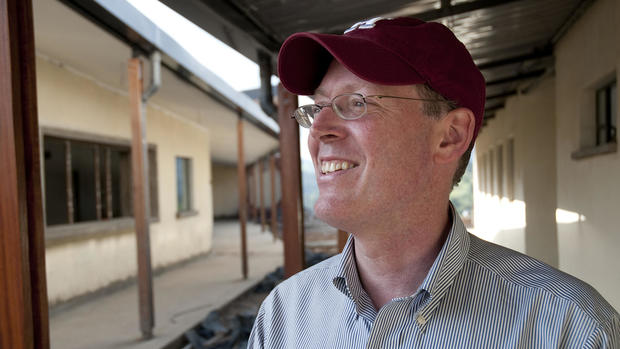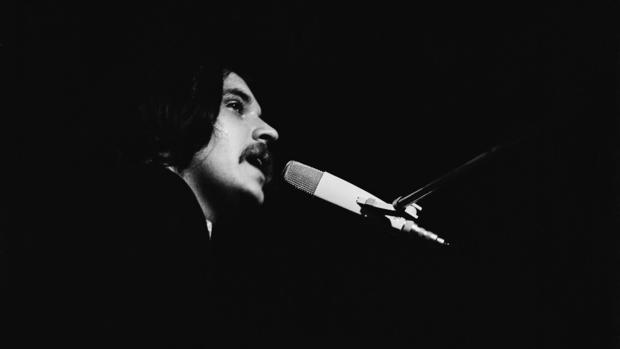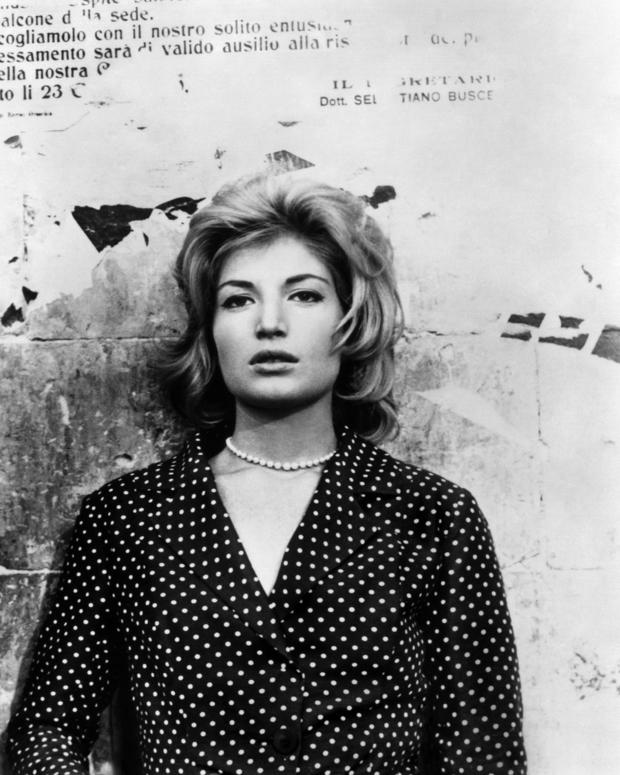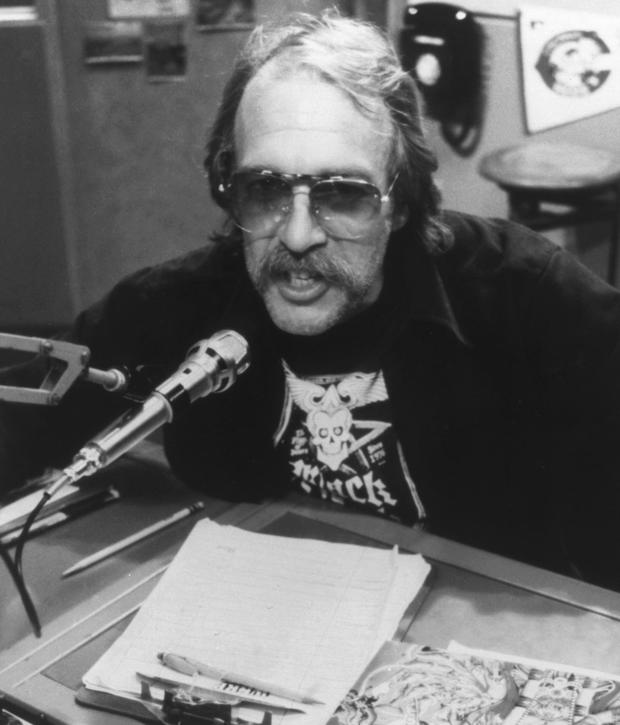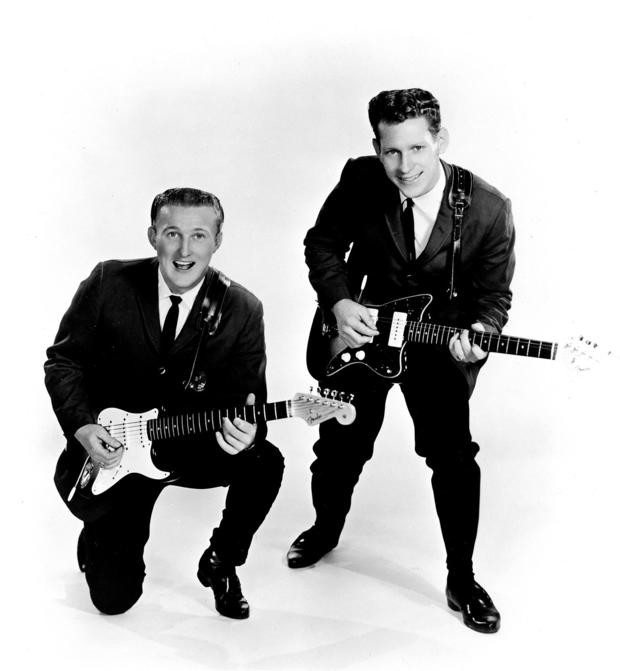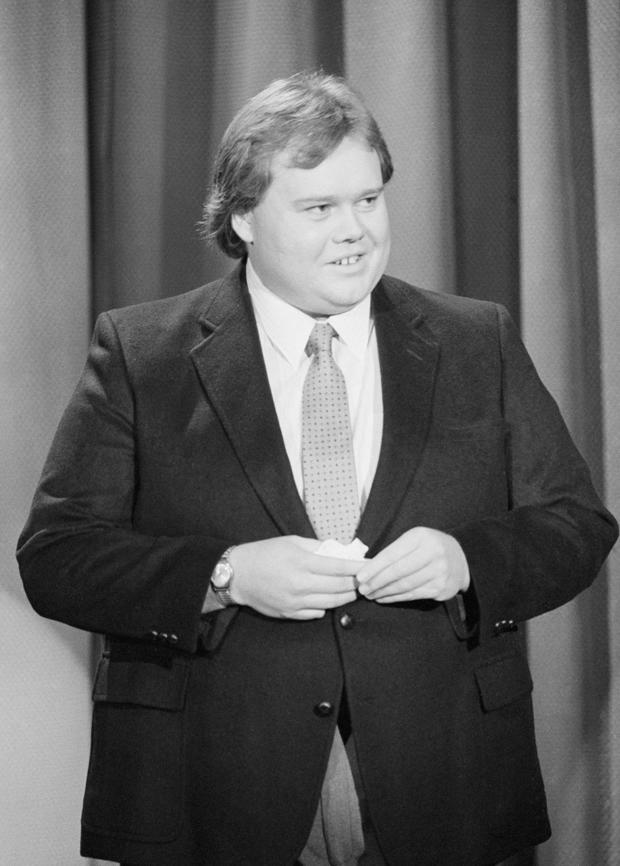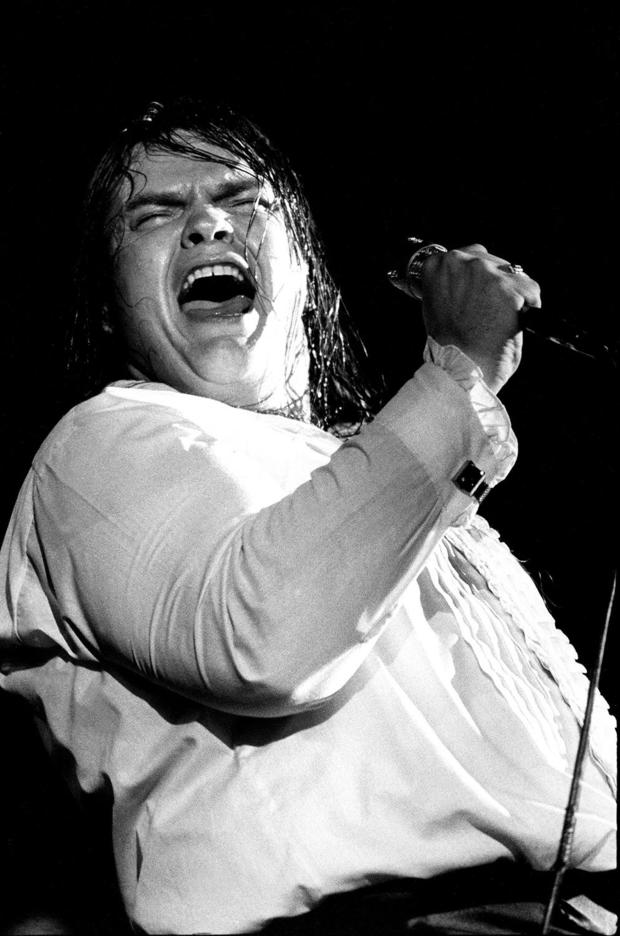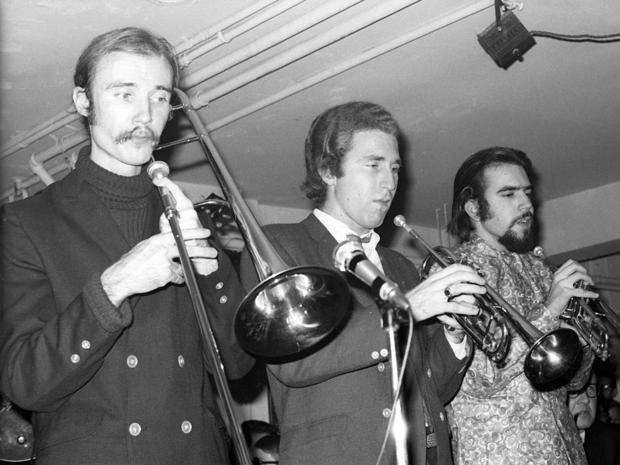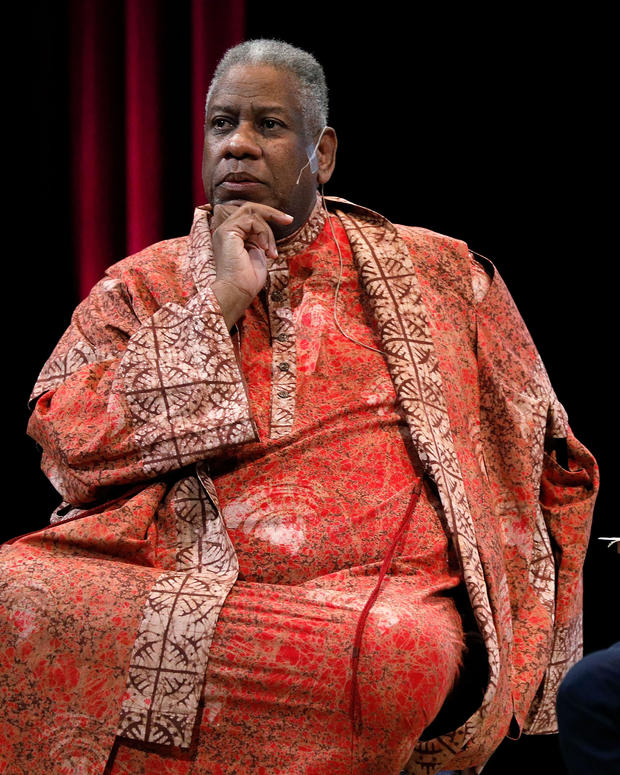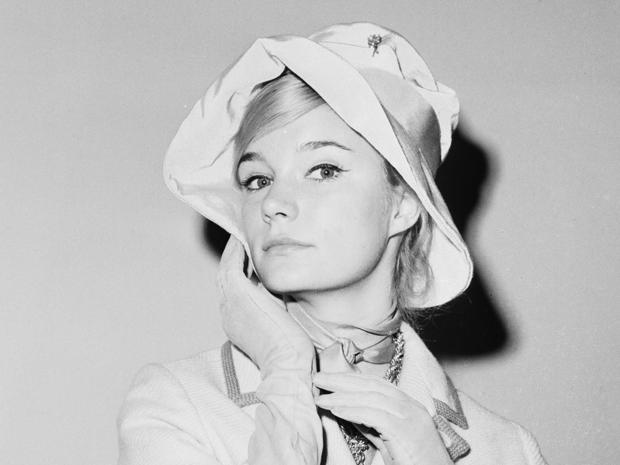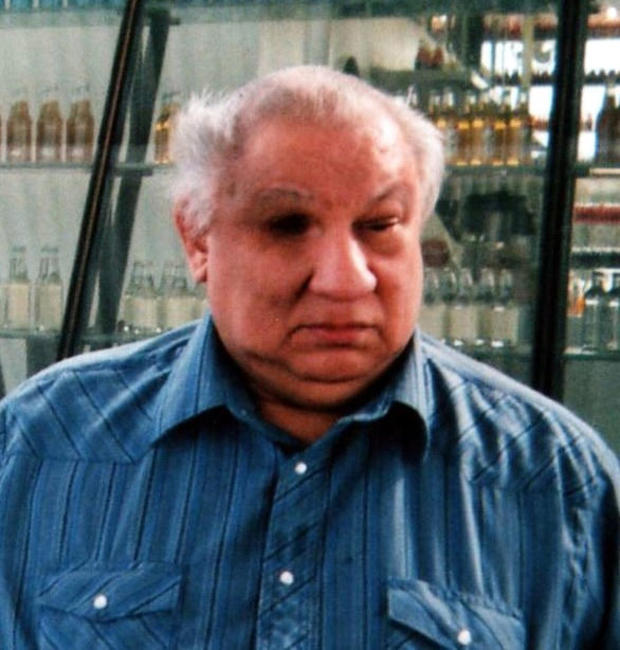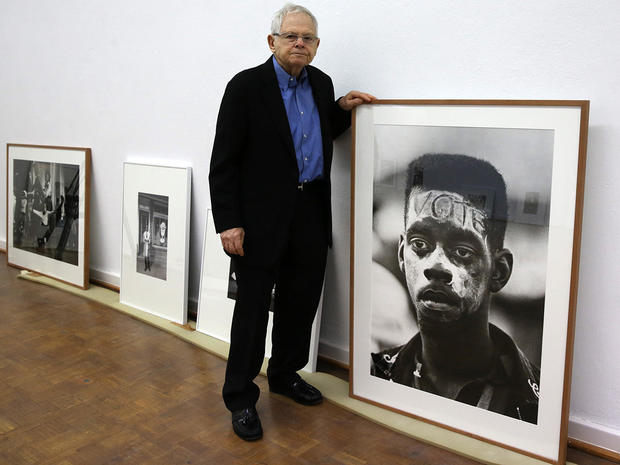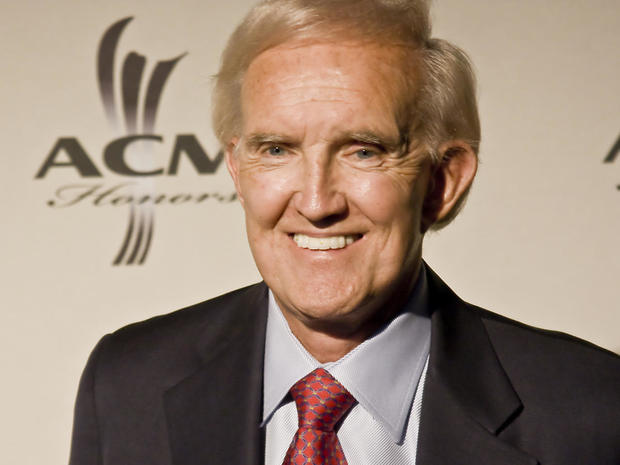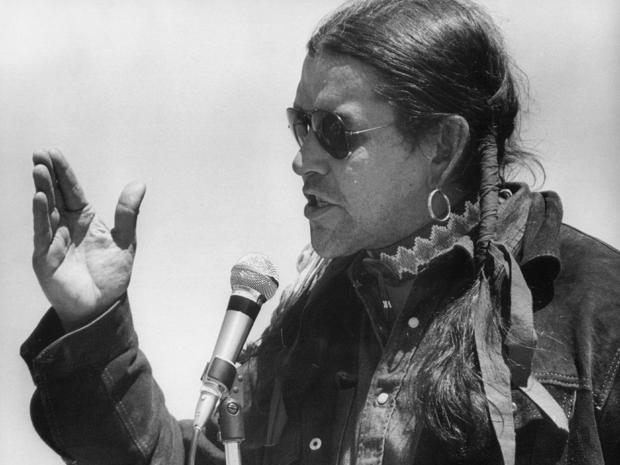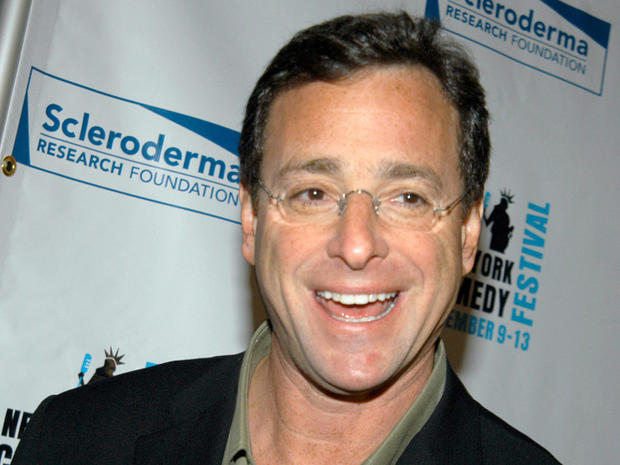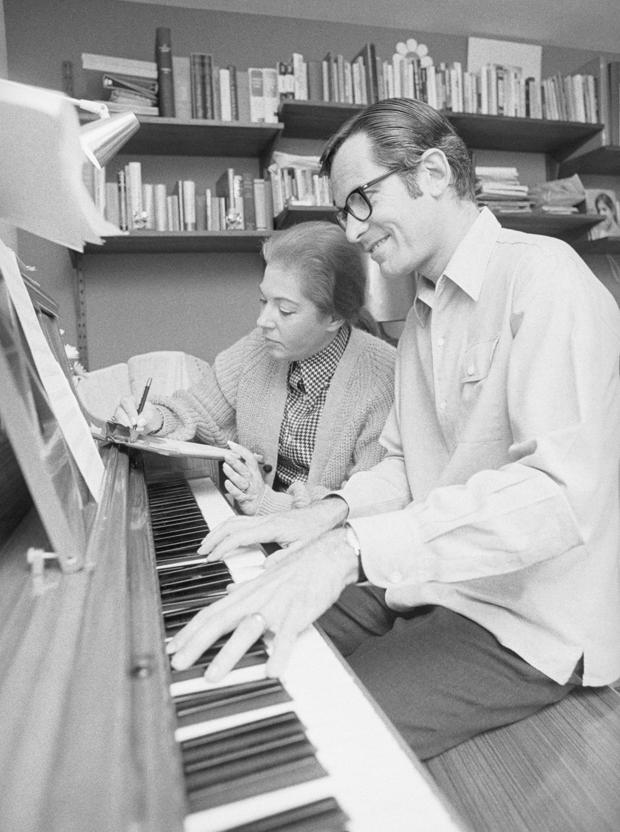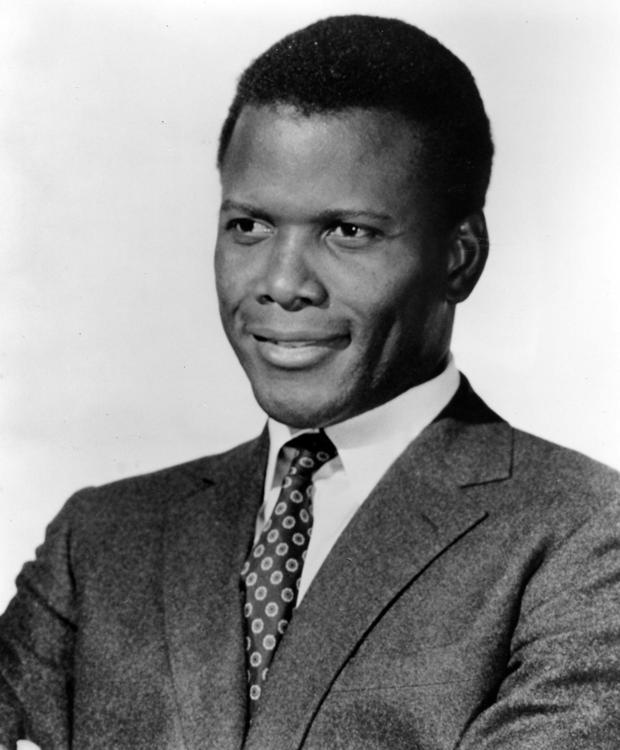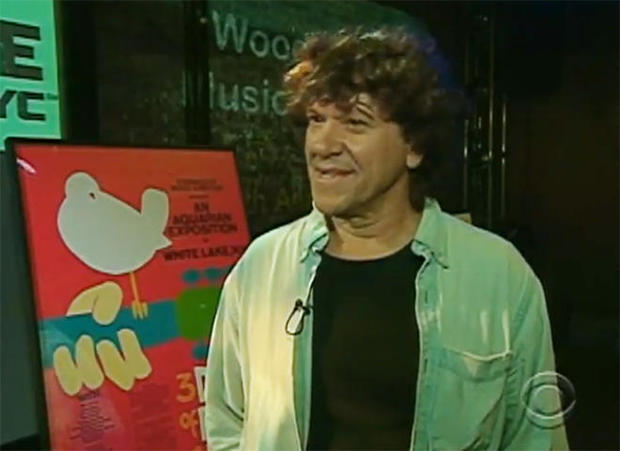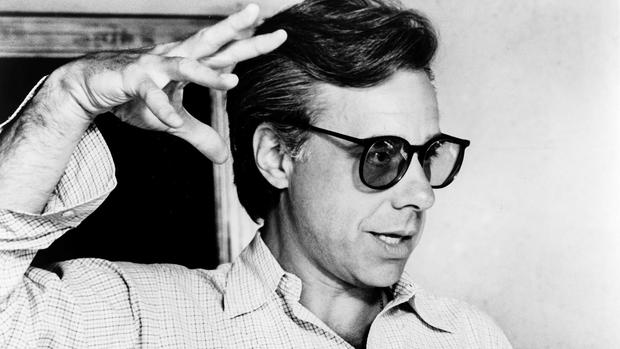Notable Deaths in 2022
A look back at the esteemed personalities who left us this year, who'd touched us with their innovation, creativity and humanity.
By CBSNews.com senior producer David Morgan. The Associated Press contributed to this gallery.
Pope Emeritus Benedict XVI (April 16, 1927-December 31, 2022) stunned the world in 2013 when he announced, after eight years in office, that he lacked the strength to continue as head of the Catholic Church. The then-85-year-old thus became the first pope in 600 years to resign.
The first German pope in a thousand years, Benedict – born Joseph Ratzinger – was a theologian and writer devoted to history and tradition, who was elected to succeed Pope John Paul II. He used his position to redirect the world's focus on faith in an era of secularization. On his first foreign trip as pope, at a 2005 World Youth Day gathering in Cologne, Germany, he told a million attendees, "In vast areas of the world today, there is a strange forgetfulness of God. It seems as if everything would be just the same even without Him."
He reached out to other faiths, and became only the second pope in history to enter a synagogue. As a conservative, many of his actions (such as relaxing the restrictions on Latin mass) satisfied traditionalists, but were controversial among more progressive voices in the clergy. There were also PR gaffes; he was criticized for telling reporters, in 2009, that distributing condoms would increase, not decrease, the spread of AIDS.
But he was also forced to confront the fallout of the church's sex abuse scandal, and notably apologized to victims.
Benedict's dramatic decision to retire, rather than to remain in office until his death, paved the way for the election of Pope Francis, a more progressive cleric. The two lived as neighbors, an unprecedented arrangement, as Benedict wrote and lived a monastic life in the Vatican Gardens. Francis would say having Benedict at the Vatican was like having a "wise grandfather" living at home.
Barbara Walters
Trailblazing broadcaster Barbara Walters (September 25, 1929-December 30, 2022) forged a path for women in an industry that was dominated by men, so much so that, when she was hired as a writer for NBC's "Today" in 1961, she was only allowed to write for women. Writing for male correspondents would become only one of many glass ceilings she would break.
She began making on-air appearances with light, offbeat stories, for which she once wore bunny ears to report on the life of a Playboy bunny. In addition to "Today," she also hosted the syndicated morning show "Not for Women Only."
Walters would become the co-host of "Today," only to be lured away by ABC News in 1976, becoming the first woman to anchor an evening network newscast, earning an unprecedented $1 million salary. But co-anchoring with Harry Reasoner proved disastrous, and ABC News president Roone Arledge moved her into special projects, with primetime interview specials and contributions to the newsmagazine "20/20," a show she would eventually co-host. And in 1997, she created "The View," an all-female live talk show that tackled any and every topic.
During her decades at NBC and ABC, she earned her reputation as a tough interviewer with incisive questioning of newsmakers, celebrities, politicians and world leaders. She admitted she was never in awe around celebrities, because she'd grown up around many, her father being a nightclub owner. "I'm not afraid when I'm interviewing, I have no fear!" Walters told The Associated Press in 2008. And she was not afraid to snatch an interview away from a colleague – her competitive chops to get an exclusive were strong.
By 2004, when she stepped down from "20/20," she had logged more than 700 interviews (more than a few of whose subjects would be made to cry). She won 12 Emmys, and received a Peabody Award for her interview with Christopher Reeve, following the horseback-riding accident from which he was paralyzed. In 1999 her two-hour talk with Monica Lewinsky, in which the former White House intern discussed her affair with President Bill Clinton, drew more than 70 million viewers.
In 2014, upon her retirement from "The View," Walters said she was proud of her legacy, of the women who followed in her footsteps.
And she promised Variety, "I'm not going to cry."
Pelé
For many, Brazilian football star Pelé (October 23, 1940-December 29, 2022) was the greatest player of "the beautiful game." He won a record three World Cups, and became one of the most commanding sports figures of our era.
For nearly two decades he transfixed fans and dazzled opponents with his grace and athleticism as a leading scorer for the Brazilian club Santos, and his country's national team.
He was a mere 17 years old when he scored two goals in Brazil's 5-2 victory in the 1958 World Cup final. "I got the gift from God to play football," he said. That gift catapulted him from an impoverished childhood to worldwide celebrity, becoming an ambassador not just for the game, but for UNESCO and the United Nations as well.
In 1975, at age 34, he signed a $2.8 million contract with the New York Cosmos that made him the world's highest-paid athlete. He played in the States for three seasons, and finished his career with a record 1,279 goals.
In retirement, he didn't quite leave the field. He played a football player in the Sylvester Stallone movie "Victory."
In 2018 Pele described for GQ magazine what it was like to make his 1,000th career goal: "It was a penalty kick and for the first time in my whole career my legs were shaking, the whole of the Maracanã was shouting and screaming, and I remember thinking, 'Oh, my God… I cannot miss!' …
"When I was 17, it was my first World Cup, no responsibility, no nerves. But for my 1,000th goal, I was Pelé, three-time world champion, most famous footballer. I never felt pressure like it."
Vivienne Westwood
"I never, ever tried to shock people," said Vivienne Westwood (April 8, 1941-December 29, 2022), who in 1970s London became the leading designer and seamstress of the punk movement – a fashion rebellion made of ripped fabric, safety pins and S&M gear.
She told "Sunday Morning" in 2013, "At the time of punk rock, I was so outraged at the way the world is so corrupt and mismanaged and everything, that the look was supposed to be of an urban guerrilla. It was somehow a kind of crusade to challenge the status quo."
Westwood hadn't wanted to be a fashion designer; she'd started out as a primary schoolteacher. But she offered to help her boyfriend, Malcolm McLaren, manager of the pioneering punk rock band, The Sex Pistols. Together they opened a music and fashion shop on London's Kings Road.
Though she had no formal training, she held her first runway show in 1981, and gradually moved into more traditional fashion work, incorporating historical British designs into contemporary clothes (though still managing to shock, as in her 1987 Statue of Liberty corset).
Even decades after punk's rise and fall, the Westwood style remained irreverent and uncompromising, her hair still dyed a trademark orange. And she became accepted by a British establishment that once mocked her; the Queen made her a dame in 2006.
When correspondent Anthony Mason asked Westwood if she still thought of herself as a rebel, she replied, "To tell you the honest truth, all I am really trying to do is to make the world a better place," she said.
Stephen "tWitch" Boss
Dancer and choreographer Stephen "tWitch" Boss (September 29, 1982-December 13, 2022) became the beloved dancing DJ on "The Ellen DeGeneres Show," beginning in 2014, and a familiar presence on TikTok, in videos featuring his wife, dancer Allison Holker.
Born and raised in Montgomery, Alabama, Boss studied dance performance at Southern Union State Community College and Chapman University. A contestant on "So You Think You Can Dance," he later became a judge on the dance competition show. He also appeared on "Star Search," "The Wade Robson Project," and in films like "Hairspray," "Step Up: All In," "Step Up 3D," "Magic Mike XXL," the 2016 "Ghostbusters," and "The Hip Hop Nutcracker."
In a 2014 interview with the Associated Press, Boss talked about his inspirations: "I love Fred Astaire … [He] was so smooth, and it was great. He was so classy. But Gene Kelly, he could be like somebody's dad, who just decided to get up off the couch and dance around and clean the kitchen up."
Angelo Badalamenti
Composer Angelo Badalamenti (March 22, 1937-December 11, 2022) was best-known for his work with filmmaker David Lynch, from motion pictures like "Blue Velvet" and "Mulholland Drive," to the cult TV series "Twin Peaks." Sensuous and other-worldly, Badalamenti's synthesizer-infused music was perfectly suited to the surreal and evocative visuals of Lynch.
Badalamenti grew up in Brooklyn listening to Italian opera, took piano lessons beginning at age 8, and earned bachelor's and master's degrees from the Manhattan School of Music. A music teacher, he also wrote songs for Nina Simone ("Another Spring") and Nancy Wilson ("Face It Girl, It's Over"), and for the films "Gordon's War" and "Law and Disorder," as well as a Christmas carol that was recorded for PBS.
When Isabella Rossellini was shooting 1986's "Blue Velvet," Badalamenti was asked to help her with the vocals for her performance as a nightclub singer. He did, and the subsequent recording earned high praise from the director: "This is peachy keen!" Badalamenti then composed music to accompany lyrics by Lynch for a song, "Mysteries of Love."
In a 2016 interview for Pitchfork Magazine, Badalamenti recalled asking Lynch what kind of music he wanted for his very unusual, non-rhyming, no-hook lyrics: "He said, 'Angelo, just let the music float like the ocean tide, just put it in space, make it timeless and endless.'" He brought on singer Julee Cruise to record the ethereal song, which led to Badalamenti being asked to compose the entire score.
Listen to an excerpt from Badalamenti's Opening Titles from "Blue Velvet"
Listen to an excerpt from "Mysteries of Love" from "Blue Velvet"
The composer's collaborations with Lynch would extend beyond films such as "Wild at Heart," "Lost Highway," "The Straight Story" and "Mulholland Dr.," to the landmark series "Twin Peaks," which itself spawned a feature film and a reboot series. (Badalamenti received three Emmy nominations for the show.)
Listen to an excerpt from Badalamenti's theme from "Twin Peaks"
He and Lynch also staged a live concert piece, "Industrial Symphony No. 1," performed by Cruise, for the 1989 New Wave Music Festival in Brooklyn.
Badalamenti's other film credits included "A Nightmare on Elm Street 3: Dream Warriors," "Weeds," "The Comfort of Strangers," "The City of Lost Children," "Holy Smoke," "The Beach," "Secretary," "Lathe of Heaven," "Auto Focus," "Cabin Fever," "A Very Long Engagement," and "Stalingrad."
In an article posted on culture.org, Badalementi's nephew, Frances, recalled visiting with his uncle in Prague while he was recording his score for Lynch's "Lost Highway," and a piece of advice his uncle gave him: "You need to do what you are good at. You need to do what you do best."
Kirstie Alley
Actress Kirstie Alley (January 12, 1951-December 5, 2022) earned plaudits for both comedy and drama, winning one Emmy for the hit sitcom "Cheers" (on which she starred for six seasons), and winning a second for her performance as the mother of an autistic child in the 1994 TV movie "David's Mother."
After dropping out of college in Kansas, Alley moved to Hollywood to work as an interior designer. She appeared on game shows as a contestant, on "Match Game" and "Password Plus." But she was hired, despite no professional experience and a faked résumé, to play Lt. Saavik, the half-Vulcan, half-Romulan protégé of Mr. Spock, in "Star Trek II: The Wrath of Khan." She noted at a 2016 "Star Trek" convention panel in Las Vegas that, as a teenager, friends had made fun of her eyebrows' ability to arch: "I have no control over it," she said. "So, I would watch [the original 'Star Trek' series] and when Mr. Spock would come on, I would say, 'Wow, if I was ever an actress, I could play Spock's daughter.'"
Films that followed included "Runaway," "A Bunny's Tale" (as Gloria Steinem), "Summer School," and "Sibling Rivalry," before the hit comedy "Look Who's Talking," as a single working mom of a newborn baby (voiced by Bruce Willis). She followed with two sequels "Look Who's Talking Too," and "Look Who's Talking Now."
She also earned Emmy nominations for her sitcom "Veronica's Closet," and for the TV miniseries "The Last Don."
A spokesperson for Jenny Craig, Alley dealt with weight issues for years, even starring as a fictionalized version of herself in the Showtime comedy series "Fat Actress" (a show that drew laughs from the public treatment of her weight gain and loss), and appearing in the reality series "Kirstie Alley's Big Life" (which documented her attempts to lose weight). She said she agreed to the show because of misinformation about her in the tabloids: "Anything bad you can say about me, they say," Alley told the Associated Press. "I've never collapsed, fainted, passed out. Basically, anything they've said, I never. The only true thing is, I got fat."
Her later TV appearances included "Dancing With the Stars" (in which she finished in second place, in 2011), and, in early 2022, the competition series "The Masked Singer."
Bob McGrath
Bob McGrath (June 13, 1932-December 4, 2022) was a founding cast member of the landmark children's series "Sesame Street" when the show premiered in 1969. His last appearance on the show was in 2017 – a more than four-decade run as the friendly neighbor Bob Johnson.
McGrath's character, a music teacher, sang such songs as "People In Your Neighborhood," "Sing," "Morning Town Ride" and "See You Tomorrow."
A folk singer and music teacher who'd enjoyed professional success in Japan, the Illinois native was also a singer on the 1960s series "Sing Along With Mitch." He recalled in a 2004 interview for the Television Academy that he'd had no real experience as an actor (most of the cast did not), and was frustrated during his first year on "Sesame Street," not getting a fix on what his character, "Bob," should be. "And ultimately they said, 'You know, we don't really want you to be anybody, we just really want all of you folks to be yourself.' …
"It's interesting, we had special guests, they'd come on, and some of them were wonderful, wonderful actors and actresses playing all different variety of roles, but apparently they did not test out as well because the kids kind of really were able to see that they were kind of acting more than being themselves and being totally genuine with them on a one-on-one, eyeball-to-eyeball basis."
McGrath was let go after 45 seasons (along with Emilio Delgado and Roscoe Orman) when the show's first-run broadcast rights were moved from PBS to HBO. He told a Florida convention in 2016, "I'd be so greedy if I wanted five minutes more."
Gaylord Perry
Gaylord Perry (September 15, 1938-December 1, 2022) was the first pitcher to win the Cy Young Award in two leagues – first with the Cleveland Indians in 1972 (notching a 24-16 record); and then, after having just turned 40, with the San Diego Padres in 1978 (21-6). It was his fifth season having scored 20 or more wins.
A native of Williamston, North Carolina, Perry was drafted by the San Francisco Giants, and would pitch for eight major league teams over his 22-season career. A five-time All-Star, he posted a lifetime won-loss record of 314-255, with 3,534 strikeouts, and an ERA of 3.11.
Although he was only ejected from a game once for doctoring a baseball, in 1982, Perry had a reputation for using foreign substances. In his 1974 autobiography, "Me and the Spitter," he told of first throwing a spitball on May 31, 1964, when Perry, a reliever, pitched 10 innings in a marathon 23-inning game against the New York Mets; he did not give up a run, and was credited with the win. It also earned him a spot in the Giants' starting rotation.
He stopped throwing the pitch in 1968 after Major League Baseball ruled pitchers could no longer touch their fingers to their mouths before touching the baseball. (Vaseline and hair tonic became fallbacks.) But he also mimicked routines to make batters think he was applying a foreign substance, to fake them out.
The future Hall of Famer, for all his pitching prowess, was not a natural at the plate; Giants manager Alvin Dark once stated that a man would land on the moon before Perry would hit a home run. It was therefore fate that on June 20, 1969, shortly after the Apollo 11 lunar lander touched down on the Moon's surface, Perry hit his first (and only) home run, against Dodgers pitcher Claude Osteen.
Christine McVie
Vocalist, songwriter and keyboard player Christine McVie (July 12, 1943-November 30, 2022) made her mark in one of the most successful rock bands of the 1970s, '80s and '90s, Fleetwood Mac.
Christine Anne Perfect was born into a music family, and studied classical piano until she turned to rock, and joined the band Chicken Shack as a singer and piano player. After two albums with Chicken Shack, she released an eponymous solo album, in 1970, before joining Fleetwood Mac (she had in the meantime married Fleetwood Mac bassist John McVie).
Fleetwood Mac would go on to sell more than 100 million records, despite lineup changes that suggested the band was on the outs. But McVie continued (as singer, musician and songwriter), contributing to 14 albums, including the No. 1 charting albums "Fleetwood Mac," "Rumours," "Mirage" and "The Dance." "Rumours" won the Grammy for Album of the Year in 1978.
McVie's songs for Fleetwood Mac included "Don't Stop," "Behind the Mask," "Everywhere," "Hold Me," "Oh Daddy," "Over My Head," "Save Me," "Little Lies," "You Make Loving Fun," and "Say You Love Me." And while her marriage to John McVie ended (as memorably documented in song in "Rumours"), the band endured.
In the late '90s, McVie left the group, released a solo album, "In the Meantime," and lived in semi-retirement. A fear of flying kept her in the U.K., but after psychotherapy helped her overcome her aerophobia, she flew to Maui and sat in with Mick Fleetwood's blues band. That led to her reteaming with Fleetwood, Stevie Nicks, Lindsey Buckingham and ex-husband John McVie for their 2014 tour. She also collaborated with Buckingham on a 2017 album, "Lindsey Buckingham Christine McVie."
Earlier this year, an anthology of her work, "Songbird," was released.
In 2014 she talked with "Sunday Morning" correspondent John Blackstone about rejoining Fleetwood Mac after such a long separation: "I thought it was gonna be a struggle, to be honest. I was a little anxious. … But the moment you find yourself playing with these fantastic musicians and friends, it just melted away. And now I feel completely comfortable, really, surprisingly so."
Irene Cara
She recorded a Spanish-language album for Gema Records, "Esta Es Irene," when she was nine years old. The singer-actress Irene Cara (March 18, 1959-November 25, 2022) would go on to win an Oscar, two Grammys and a Golden Globe for her music for "Fame" and "Flashdance."
Before her film success she appeared on Broadway in "Maggie Flynn," "The Me Nobody Knows," and "Got Tu Go Disco." She flew across the stage in the 1972 sci-fi musical "Via Galactica," which closed after seven performances, and was in the Public Theater's production of "Lotta, or The Best Thing Evolution's Ever Come Up With."
Cara appeared on TV in "The Electric Company," "Love of Life," "What's Happening!!," and "Roots: The Next Generation." She starred in "Aaron Loves Angela" (Gordon Parks Jr's update of "Romeo and Juliet"), and at age 13 was cast as the lead of "Sparkle," a 1976 musical about a girl group co-starring Lonette McKee.
In 1980's "Fame," Cara starred as Coco, a student attending New York's High School of Performing Arts. She performed the songs "Out Here on My Own," "Hot Lunch Jam," "I Sing the Body Electric," and the title tune, which became a Top 10 hit and an Oscar-winner for Best Original Song. She also earned a Golden Globe nomination for Best Actress in a Motion Picture/Comedy or Musical.
For the 1983 film "Flashdance," Cara co-wrote and performed the title track, "Flashdance ... What A Feeling," which sat on top of the Billboard charts for six weeks. She shared the Academy Award for Best Original Song with Giorgio Moroder and Keith Forsey.
She sang or composed songs for several features, from "D.C. Cab" to the animated "All Dogs Go to Heaven." For the Clint Eastwood/Burt Reynolds period comedy "City Heat," she recorded the George and Ira Gershwin ballad, "Embraceable You." Other albums included "Anyone Can See," "What a Feelin'," and "Carasmatic."
In the 1990s she toured as Mary Magdalene in "Jesus Christ Superstar."
Robert Clary
French-born actor-singer Robert Clary (March 1, 1926-November 16, 2022) was best-known for playing Cpl. Louis LeBeau, part of a cohort of Allied prisoners of war engaging in sabotage under the noses of their Nazi captors, in the 1960s comedy "Hogan's Heroes."
In 1965, when the show's pilot was being shot, Clary was offered the part of LeBeau without even having to audition. Though controversial, the show ran on CBS for six seasons.
In 1985 a documentary, "Robert Clary, A5714: A Memoir of Liberation," told of his life and his ordeal in concentration camps. The youngest of 14 children, Clary (born Robert Widerman) was 16 when he and his family were forced from their Paris apartment into a crowded cattle car, transporting them to concentration camps. [A5714 referred to the identification number tattooed on his arm.] His parents and 10 siblings were killed under the Nazis, he said.
He credited his youth and ability to work for keeping him alive for 31 months, until he was freed when American troops liberated the Buchenwald death camp.
Returning to Paris and reunited with his two sisters, Clary worked as a singer and recording artist. He moved to the States in 1949, appearing in musicals (including "New Faces of 1952," "Irma La Douce" and "Cabaret"), TV ("Days of Our Lives" and "The Bold and the Beautiful"), and films ("The Hindenburg"). He also recorded jazz versions of songs by Ira Gershwin and Stephen Sondheim.
In 1997, he was one of dozens of Holocaust survivors whose stories were told in "The Triumphant Spirit." In an interview that year he said, "I beg the next generation not to do what people have done for centuries - hate others because of their skin, shape of their eyes, or religious preference."
In an Associated Press interview he criticized Holocaust deniers, "making a mockery of the 6 million Jews - including a million and a half children - who died in the gas chambers and ovens." He also published a memoir, "From the Holocaust to Hogan's Heroes: The Autobiography of Robert Clary," in 2001.
In a 2018 interview with the Television Academy Foundation about his experience on "Hogan's Heroes," he said he had no trepidation about appearing in the prison camp comedy given his personal history. "No, because it had nothing to do with my past. I was never a soldier. I was never a prisoner of war. I was sent to a concentration camp and lucky I survived, which is completely different. We were not human beings. The only reason we lived [was] because they needed us to work in their factories. Otherwise they would have killed us all.
"And, it was acting!"
Aaron Carter
Singer, rapper and actor Aaron Carter (December 7, 1987-November 5, 2022) began performing as a child, and at age nine released his first, eponymous album. It went gold, and was followed by three more albums during his teen years, including the triple-platinum "Aaron's Party (Come Get It)" (2000). His hits included "Crush on You," "Crazy Little Party Girl," and "I Want Candy."
His fifth and final album was "LOVE" (2018).
The younger brother of Nick Carter (of Backstreet Boys), Aaron performed as an opening act for his brother's group, and for Britney Spears. He also appeared as an actor in "Lizzie McGuire," "Family Affair," "Popstar" and "Supercross," and in the musical "Seussical" on Broadway. He finished in fifth place on "Dancing with the Stars" in 2009.
Jerry Lee Lewis
In 1957 two songs by "The Killer," Jerry Lee Lewis (September 29, 1935-October 28, 2022), burned up the airwaves, becoming Top 10 hits: "Whole Lot of Shakin' Going On" and "Great Balls of Fire," songs that showcased the Louisiana-born piano player's outrageous talent and energy – a force of nature inspired by sneaking into Black juke joints, and honed by his experience playing rockabilly, boogie-woogie and gospel.
But in 1958 Lewis' career suffered from the scandal of marrying his second-cousin, Myra Gale Brown (who was 13 at the time), while he was still married to the second of his seven wives. His European tour was canceled, and he was blacklisted from the radio.
Lewis then reinvented himself as a country artist, in the 1960s, with such hits as "Another Place, Another Time," "She Still Comes Around (to Love What's Left of Me)," "She Even Woke Me Up to Say Goodbye," "There Must Be More to Love Than This" and "Would You Take Another Chance on Me."
In 1986, Lewis was among the inaugural class of inductees for the Rock & Roll Hall of Fame.
In 2006, in his 70s, Lewis' longevity was marked by the release of "Last Man Standing," an album of duets featuring such stars as Bruce Springsteen, Mick Jagger, B.B. King, George Jones, Chuck Berry and Neil Young. Four years later he recorded another album of duets, "Mean Old Man," this time paired with Willie Nelson, Mavis Staples, Tim McGraw, Keith Richards and Sheryl Crow.
In 2015's bestseller "Jerry Lee Lewis: His Own Story," he described to biographer Rick Bragg the importance, to him, of being a rock 'n' roll star: "The show, that's what counts. It covers up everything. Any bad thought anyone ever had about you goes away. 'Is that the one that married that girl? Well, forget about it, let me hear that song.' It takes their sorrow, and it takes mine."
Julie Powell
"My husband almost divorced me last night and it was all because of sauce tartar."
In 2002 Julie Powell (April 20, 1973-October 26, 2022), a secretary and frustrated writer who was finding no success after moving to New York City, made it her mission to prepare every single recipe in Julia Child's classic 1961 cookbook, "Mastering the Art of French Cooking," over the course of a single year – cooking, chopping and stirring late into the night, making 11 to 12 dishes a week.
The amateur cook talked to "CBS Evening News" in 2003 about her culinary journey: "Even though I am making myself crazy, it has introduced some sanity into my life," she said.
Her husband Eric said there'd only been one real culinary disaster: the aspics. "All the aspics were just horrible," he said.
Her blog, the Julie/Julia Project, was a hit, earning her an agent and a book deal. "Julie & Julia: 365 Days, 524 Recipes, 1 Tiny Apartment Kitchen," published in 2005, inspired the 2009 film, "Julie & Julia," which starred Amy Adams as Powell and Meryl Streep as Child.
The film was a success, but when Powell had written to Child about her cooking project, the response she received was underwhelming. It didn't matter, she told CBS News in 2009: "Her disinterest didn't change how I felt about her. I don't love Julia Child because she loves me; I love her because she inspired me to change my life. ... I know how I feel about Julia, and that's what matters."
Her favorite of Child's 524 recipes? Braised Cucumbers. "I'm so glad they made it into the movie, because I think they're a revelation!" Powell said.
Pierre Soulages
French abstract artist Pierre Soulages (December 24, 1919-October 26, 2022) became known as the "Master of Black," for bringing the mystery of darkness into the light. His paintings – big, bold, and overwhelmingly black – have commanded attention since he made a name for himself in 1950s New York, then emerging as the center of the modern art world.
Back then, like American avant-garde artists Jackson Pollock and Mark Rothko, Soulages experimented with challenging abstract forms. He even used color. Then, one morning in 1979, when he and his wife Colette were living in Paris, he noticed how reflections transformed the surface of black paint. He'd found his medium, and began to experiment with sculpting black paint on the canvas.
When asked by "CBS Sunday Morning" in 2020, on the occasion of his 100th birthday, why black still moved him, Soulages replied, "Because its possibilities are limitless. I say black, but actually it's light that's key. When I add black paint to a canvas, light reflects uniquely off the scar. That's what my work is all about. I paint with light."
Leslie Jordan
"Give me a good pandemic and I flourish," said comic actor Leslie Jordan (April 29, 1955-October 24, 2022). In 2022 he told "CBS Mornings" about adjusting to lockdown after staying with his mom in Tennessee. "I had a lot of time on my hands. And I started posting on Instagram. And I did two posts a day, I think, for 80 days. And I would always start it with, 'Well, how y'all doing?'"
He'd get more than a million hits a day. Its success amazed even him: "I didn't try to sell anybody anything. I just talked about what are y'all doing? Here's what I'm doing. I cut my hair because I couldn't get to the barbershop.
"I have people come up to me and say, 'You got me through that. I'm stuck at home with my kids, I thought I was going nuts, And I would look forward to just a minute or two with you every day.' And I think that's what comedy's about."
Beginning at age 19, the 4'11" Jordan exercised racehorses. Put off by the travel involved, he enrolled in journalism classes at the University of Tennessee at Chattanooga, where he also signed up for a theater elective. "It just hit me like a drug," he said.
After graduating, he headed to California, and got steady work in commercials. ("I was the elevator operator to Hamburger Hell for Taco Bell"), and eventually got acting roles in such TV series as "The Fall Guy," "Night Court," "Murphy Brown," "The People Next Door," "Pee-Wee's Playhouse," "Top of the Heap," "Reasonable Doubts," "Hearts Afire," "Caroline in the City," "Ally McBeal," "Boston Public," "Boston Legal," "American Horror Story," "The Cool Kids," and "Call Me Kat." Film roles included "The Help" and "The United States vs. Billie Holiday,"
His best-known character was Beverly Leslie in "Will & Grace," a recurring role for which he won an Emmy in 2006.
In the 1990s he wrote and starred in a stage musical, the semi-autobiographical "Hysterical Blindness and Other Southern Tragedies That Have Plagued My Life Thus Far." In 2008 he published a memoir, "My Trip Down the Pink Carpet," his take on Hollywood, fame, addiction and gay culture.
After blowing up his Instagram account during COVID, his career took a different turn when he released a gospel album called "Company's Comin'," featuring Dolly Parton, Brandi Carlile, Chris Stapleton, Eddie Vedder and Tanya Tucker.
He recently wrote his second book, "How Y'all Doing?: Misadventures and Mischief from a Life Well Lived."
Robbie Coltrane
Born Anthony Robert McMillan, Robbie Coltrane (March 30, 1950-October 14, 2022) was in his early 20s when he began pursuing an acting career, renaming himself in honor of jazz musician John Coltrane.
The Scottish comedian and character actor's early film credits included the musical "Absolute Beginners," the drama "Mona Lisa," and the caper "Nuns on the Run." He played Falstaff in the Kenneth Branagh-directed "Henry V," the Pope in the comedy "The Pope Must Diet," and a Russian crime boss in the James Bond films "GoldenEye" and "The World is Not Enough."
Coltrane broke through as hard-bitten criminal psychologist Dr. Eddie "Fitz" Fitzgerald in the 1990s British TV series "Cracker," for which he won the best actor BAFTRA Award three years in a row.
He was beloved by a generation as the half-giant Rubeus Hagrid, the mentor of young wizard Harry Potter, in all eight Potter films. He was the first actor to be cast for the original movie – hand-picked by author J.K., Rowling – and in 2002 told the Christian Science Monitor that he knew the story well. "I'd read it to my young son, Spencer," he said. "I did all the accents, even inventing a few of my own, when reading it, and must say I felt a certain kindred to Hagrid."
The inspiration for his performance, he told The Daily Record in 2006, was an imposing, burly biker he'd once met, who'd entered a bar and complained about his petunias. "He was a gardener, but he had fists like hams. He had a gentle heart."
To play Hagrid, the 6'1" Coltrane wore boots that made him at least seven inches taller, underwent an hour-and-a-half of makeup, and wore a costume that weighed 65 pounds.
In an interview last January for an HBO Harry Potter reunion special, Coltrane said, "The legacy of the movies is that my children's generation will show them to their children. So, you could be watching it in 50 years' time, easily ... I'll not be here, sadly, but Hagrid will, yes."
Bruce Sutter
Six-time All-Star relief pitcher Bruce Sutter (January 8, 1953-October 13, 2022) was pitching for the Chicago Cubs' farm team in 1972 when he hurt his right elbow trying to learn a slider. Afraid he would be cut if the Cubs knew he'd been injured, Sutter hid the injury, and paid for the surgery on his pinched nerve himself. At spring training the following year, with the speed of his pitches off, he learned the split-fingered fastball from the Cubs' minor league pitching instructor Fred Martin.
The pitch (the ball is held between the index and middle fingers, and as it approaches the plate suddenly dips) wasn't being successfully thrown. "It came to me easy, but it took a long time to learn how to control it," Sutter once said. "I could throw pretty hard. I might strike out 16 guys, but I might walk 10. I mean, I was wild."
Sutter entered the majors with the Cubs in 1976. Three years later he won the National League Cy Young Award, with 37 saves, 2.22 ERA and 110 strikeouts.
In a 1979 Sports Illustrated interview veteran batter Lou Brock had this assessment of Sutter's split-fingered fastball: "You'd figure that if a guy stayed around long enough, he'd learn how to hit it. But no one has."
During his 12-year career Sutter led the National League in saves for five years, posting 300 saves with the Cubs, St. Louis Cardinals (he finished off the Cards' Game 7 win over Milwaukee in the 1982 World Series), and Atlanta Braves. In 661 games, he pitched 1,042 innings and struck out 861, with a career ERA of 2.83.
In 2006 Sutter became only the fourth reliever to be inducted into baseball's Hall of Fame – and the first pitcher to reach Cooperstown without ever having started a game.
Angela Lansbury
Born in London to an Irish actress and an English timber merchant, Angela Lansbury (October 16, 1925-October 11, 2022) was forced at a young age to become self-reliant after the death of her father. She was sent by her mother to drama school, first in London, then, after the Blitz, to New York and, ultimately, Hollywood.
By 17, she was in her first film, as the flirtatious, cockney maid in the 1944 classic, "Gaslight." Director George Cukor was "appalled" that a woman her age could pull off playing such a convincing seductress. '[You'd think] I'd been around the block, as they say," Lansbury told "CBS Sunday Morning" in 2009. "I hadn't, you know. I really hadn't!"
But playing characters beyond her years would become the story of Lansbury's life. Despite back-to-back Oscar nominations (for "Gaslight" and "The Picture of Dorian Gray"), she spent her twenties and thirties typecast in older, more maternal roles – as an adulterous mother in "The World of Henry Orient"; Elvis Presley's mom in "Blue Hawaii" (despite being only nine years older than the singer); and Laurence Harvey's scheming mom in "The Manchurian Candidate," nabbing her third Oscar nomination for the political thriller in which she gives her son advice only a loving mother could give: "You are to shoot the presidential nominee through the head." She even had her hair streaked gray, at age 23, to play a newspaper publisher in her 40s in "State of the Union."
Unsatisfied with Hollywood's lack of imagination, Lansbury packed her bags for the New York stage. "I felt liberated the minute I came to Broadway. Those years at MGM, I hadn't really been judged as an actress until I made it on Broadway."
After roles in "Hotel Paradiso," "A Taste of Honey" and "Anyone Can Whistle," she hit pay dirt with the musical "Mame" (1966), winning the first of five Tony Awards. [Her others were for "Dear World" (1969); "Gypsy" (1975); "Sweeney Todd: The Demon Barber of Fleet Street" (1979), playing the meat pie maker Mrs. Lovett; and a 2009 revival of Noel Coward's "Blithe Spirit."]
After playing Agatha Christie's Miss Marple in a film adaptation of "The Mirror Crack'd," and one of the murder suspects in "Death on the Nile," Lansbury found her greatest fame on "Murder, She Wrote" as mystery writer and amateur sleuth Jessica Fletcher. For twelve seasons (and in four subsequent movies-for-TV), she made an older female character – often invisible in media – a pop culture role model. She received 12 Emmy nominations for the series.
She was a role model of a very different sort as the voice of the teapot Mrs. Potts in the animated Disney musical, "Beauty and the Beast."
Lansbury later became a spokesperson for the ALS Association. (Amyotrophic lateral sclerosis had claimed the life of her sister, Isolde.)
In 2014 she was made a Dame by Queen Elizabeth II, honored for her acting career and charity work.
And she would continue working, on stage (she earned additional Tony nominations for the play "Deuce" and the Stephen Sondheim musical "A Little Night Music," as well as a lifetime achievement Tony in 2022) and in films ("Nanny McPhee," "Mr. Popper's Penguins," "Mary Poppins Returns," and, as herself, in "Glass Onion: A Knives Out Mystery").
"The bottom line is, I really don't know how to relax to the degree that I could just stop," Lansbury told "Sunday Morning." "So, when something comes along and is presented to me, and I think, 'Gee, I could have some fun doing that,' or 'I think I could bring something to that,' I'll do it.
"I mean, there are times when you walk into that dressing room and you think, 'I can't do this. I cannot do this.' And it's a curious thing: When you sit down in front of that mirror and you pick up that first piece of makeup and you start to apply it … suddenly, you transform yourself into that person who is capable of going on stage and delivering that performance. And you do it, and yes, you can!"
Loretta Lynn
If you want to know the story of Loretta Lynn (April 14, 1932-October 4, 2022), listen to her songs. The country legend sang about a life of hardship, poverty, and her husband's infidelity – stories like "I'm a Honky Tonk Girl," "Don't Come Home a Drinkin' (With Lovin' on Your Mind)," "You Ain't Woman Enough," "What Makes Me Tick," and "Coal Miner's Daughter," whose title became the name of her bestselling 1976 autobiography.
"It's whatever I was going through at the time, and whatever I was thinking about at the time," Lynn told "Sunday Morning" in 2010.
And even as she rose to become a legend of American music – a three-time Grammy-winner, with 30 Top 10 country albums, and the first woman to win the Country Music Association's Entertainer of the Year Award, in 1972 – she never forgot her roots, as the second of eight children of a coal miner in Butcher Hollow, Kentucky. "I ain't about to be nobody else. I'm just me. And if I was trying to be somebody else, I'd have never made it, either," she said.
When she was just 13, Loretta met 21-year-old Oliver Lynn, known as Doo. They married one month later. Lynn would have four children by the time she was 18. "I'd rock them to sleep. That's where Doo found out I could sing," she said. So, Doo bought her a guitar. Lynn taught herself to play, and began writing her own songs. Her kids were her audience. "I'd stand them up in a row: Betty, Jack, Ernest, and Cissie, 'Stand right there and tell mommy what you think of her singing.' 'Oh, you sound pretty, mommy.'"
Doo arranged for Loretta to record her song "Honky Tonk Girl," and they hit the road to promote it. Lynn became an overnight success. But as she spent nights on the road in her tour bus, Doo stayed home drinking, womanizing, and hiring housekeepers to raise their now-six children. Their marriage lasted 48 years, until Doo's death in 1996. But as she told "48 Hours" in 2002, the two were regular sparring partners: "I've never written a song that my husband wasn't in – every song I wrote – but he didn't know which line he was in."
She stayed, she said, because she loved him: "I didn't need him, but he was my kids' daddy. Why leave hearts laying on the floor for me? … He broke my heart lots of time, but that would have broke the kids' hearts, wouldn't it?"
And she got some evocative songs out of it, like the #1 country hit "Fist City":
Come on and tell me what you told my friends
If you think you're brave enough
And I'll show you what a real woman is
Since you think you're hot stuff
You'll bite off more than you can chew
If you get too cute or witty
You better move your feet
If you don't wanna eat
A meal that's called fist city
Roger Welsch
A humorist, storyteller and activist for Native Americans, Roger Welsch (November 6, 1936-September 30, 2022) was a longtime contributor to "CBS Sunday Morning" with his witty "Postcard from Nebraska" segments in the 1980s and '90s.
Clad in his familiar overalls, Welsch told stories from his beloved state, including his hometown of Dannebrog, so small, he noted, the town square only has three sides.
Welsch's segments developed after Charles Kuralt featured him in an "On the Road" segment about the Nebraskan's 1970s campaign for the Lancaster County Weed Control Authority, running on a "pro-weed" platform. Not marijuana, weeds – edible wild plants that were being sprayed with pesticides. His slogan: "If you can't beat 'em, eat 'em," He won.
Welsch wrote dozens of books, penned newspaper columns, and proudly admitted to having founded the National Liars Hall of Fame, claiming nearly two million visitors a year in tiny Dannebrog.
He also worked to reform the Nebraska State Historical Society after they refused to repatriate human remains of native peoples to the Pawnee Nation. In addition to the nickname "Captain Nebraska," Welsch also went by the names afforded him by indigenous tribes: Tenugahai "Bull Buffalo Chief" by the Omaha Tribe, Panitaka "White Wolfhite Pawnee" by the Pawnee Tribe, and Heyoka ta Pejuta "His Medicine is Contrary" by the Oglala Sioux.
Coolio
Born Artis Leon Ivey Jr., the rapper Coolio (August 1, 1963-September 28, 2022) garnered fame in the 1990s with such hits as "Gangsta's Paradise" (winner of the Grammy for best solo rap performance) and "Fantastic Voyage."
Raised in California, he began rapping at 15. He went to community college and worked as a volunteer firefighter and in airport security before devoting himself full-time to hip-hop.
He collaborated with WC and the Maad Circle, before releasing his debut album on Tommy Boy Records in 1994, "It Takes a Thief." The track "Fantastic Voyage" reached No. 3 on the Billboard Hot 100. The following year, "Gangsta's Paradise" hit No. 1.
As I walk through the valley of the shadow of death
I take a look at my life and realize there's not much left
'Cause I've been blastin' and laughin' so long, that
Even my mama thinks that my mind is gone
Later hits included "1, 2, 3, 4 (Sumpin' New)" and "C U When U Get There."
Collio aimed to rise above the feud that arose between east and west coast hip-hop factions. "I'd like to claim this Grammy on behalf of the whole hip-hop nation, West Coast, East Coast, and worldwide, united we stand, divided we fall," he said from the stage as he accepted the award in 1996.
But he engaged in a kind of feud with Weird Al Yankovic, who parodied "Gangsta's Paradise" with his hit, "Amish Paradise" ("As I walk through the valley where I harvest my grain, I take a look at my wife and realize she's very plain"). Though Coolio voiced his upset at the time, it was later attributed to a "misunderstanding."
"I have to say, that was probably one of the least smart things I've done over the years," he later told Rolling Stone. "I should have never been upset about that; I should have embraced it like everybody else did. Michael Jackson never got mad at him; Prince never got mad at him. Who the f*** was I to take the position that I took? It was actually years later before I realized how stupid that was of me [laughs]. But hey, you live and you learn."
Bill Plante
CBS News correspondent Bill Plante (January 14, 1938-September 28, 2022) was one of the longest-serving White House broadcast journalists in history. During his more than half-century with CBS News, Plante covered the civil rights movement (the "Mississippi Burning" murders in 1964, and Dr. Martin Luther King Jr.'s historic march from Selma to Montgomery, Alabama, in March 1965), and served four tours in Vietnam. (He reported from Saigon during its fall.)
He began his broadcasting career in 1956 at Chicago area radio stations, reading news and playing classical music. He then landed a job as assistant news director at the CBS affiliate in Milwaukee, before beginning a CBS Fellowship at Columbia University in New York. In his audition reel, his goals foreshadowed his long, varied career: "Politics, general assignment, writing, editing, reporting, air work, you name it, I'd like to do it," he said.
He was named a CBS News correspondent in 1966, assigned to the Chicago bureau, where he covered riots, strikes, campus unrest, and the disappearance of Jimmy Hoffa. His overseas reporting includes stories on the war between India and Pakistan over Bangladesh, and conflict in Northern Ireland.
Plante also covered 13 presidential elections, and joined CBS News' Washington bureau in December 1976. In addition to senior White House correspondent, Plante was also, from 1988 to 1995, the anchor of the "CBS Sunday Night News." He won several Emmy Awards, including for his reports on the 1997 death of Princess Diana; the 1986 Reagan-Gorbachev summit; and Reagan's 1984 reelection campaign.
One of Washington's most knowledgeable wine aficionados, Plante became known as the White House press corps' sommelier. He reported on wine occasionally for the "CBS Early Show" and "CBS Sunday Morning."
At his retirement in 2016, Plante said, "Fifty years plus, I have had a wonderful window, a closeup, on the human condition, telling the stories of civil rights and of the wastes of war and the politics of power. Through it all, you come to see how human nature is universal. People continue to behave in both altruistic and destructive ways. So that's why what we do continues to be so important."
Louise Fletcher
In the 1960s actress Louise Fletcher (July 22, 1934-September 23, 2022), who'd gotten work on TV series like "The Untouchables," "77 Sunset Strip," and "Wagon Train," put her career on hold to raise her two children. She came back in the '70s and, after a notable turn in Robert Altman's "Thieves Like Us," was chosen to star opposite Jack Nicholson in the tragi-comedy "One Flew Over the Cuckoo's Nest."
Fletcher played the cruel and calculating Nurse Ratched, who rules over the mental institution to which Nicholson's Randle McMurphy is sent for evaluation. She engages in a cruel and violent battle of wills with McMurphy, and the other inmates, exerting her authority against his rebelliousness. Her performance – a rigid imperiousness coated with a frightening serenity – made her a villainess for the ages.
In a 2004 interview Fletcher said she was the last actress considered for the role: "It wasn't until we were halfway through shooting that I realized the part had been offered to other actresses who didn't want to appear so horrible on the screen."
"One Flew Over the Cuckoo's Nest" became only the second film ever to win Academy Awards for best picture, best director, best actor, best actress and best screenplay.
At the 1976 ceremony, Fletcher accepted her Oscar and thanked her deaf parents in Birmingham, Alabama, using sign language: "I want to thank you for teaching me to have a dream. You are seeing my dream come true."
Fletcher was later nominated for two Emmy Awards, for guest appearances on "Picket Fences" and "Joan of Arcadia." Other TV credits included "The Karen Carpenter Story." "The Boys of Twilight," "ER," "Shameless," and a recurring role on "Star Trek: Deep Space Nine."
Her films included "Exorcist II: The Heretic," "The Cheap Detective," "The Magician of Lublin," "Strange Behavior," "Strange Invaders," "Brainstorm," "Firestarter," "Invaders from Mars," "The Boy Who Could Fly," "Blue Steel," "Cruel Intentions," and "A Perfect Man."
Hilary Mantel
Novelist Hilary Mantel (July 6, 1952-September 22, 2022) won the first of her two Booker Prizes for "Wolf Hall," a bloody 16th-century political drama featuring Thomas Cromwell and King Henry VIII. Translated to the stage and television, it launched a trilogy of books about Tudor intrigue that included "Bring Up the Bodies" (which also won the Booker Prize) and "The Mirror and the Light."
Mantel's first novel, 1985's "Every Day Is Mother's Day," drew on her experience working as a social worker in a geriatric hospital. She returned to the characters with "Vacant Possession." She would regularly publish for nearly 25 years, earning critical praise but only modest commercial success, with such books as "Eight Months on Ghazzah Street" (inspired by her move with her geologist husband to Saudi Arabia), "Fludd," "A Place of Greater Safety" (about the French Revolution), "A Change of Climate" (about missionaries in Africa), "An Experiment in Love," "The Giant," and "Beyond Black" (about a psychic medium). She also published short story collections and a memoir, "Giving Up the Ghost."
After a quarter-century, Mantel broke out with "Wolf Hall."
In a 2020 interview with the Guardian, Mantel reflected on the appeal of writing historical fiction, or of figures long gone: "I do have the sense of it being a very proximate world," she said. "And sometimes the barrier seems like an enormous stone wall, and sometimes it's just whisper thin. But you can be misunderstood in talking about it. Because none of it can be literal. It's all just a series of metaphors."
Irene Papas
Greek actress and recording artist Irene Papas (September 3, 1929-September 14, 2022) became an international star with her roles in the films "The Guns of Navarone" and "Zorba the Greek."
She appeared in more than 80 movies and TV programs, from classical tragedies ("Antigone," "Electra," "The Trojan Women," "Iphigenia") to Walt Disney family fare ("The Moon Spinners"). Among her films were "Tribute to a Bad Man," The Brotherhood," "Z," "Anne of the Thousand Days," "Christ Stopped at Eboli," "Mohammad, Messenger of God," "Chronicle of a Death Foretold," "Lion of the Desert," "Captain Corelli's Mandolin," and the miniseries "Moses the Lawgiver."
Of her stage work she was particularly celebrated for Greek tragedies, appearing on Broadway in "Medea" and "The Bacchae."
Her recordings included collaborations with Mikis Theodorakis, Aphrodite's Child, and one of that band's founding members, Vangelis.
In 1992, starring in a production of "Medea" in Barcelona, Papas evoked the mystery of acting: "I don't know if I am living memory, or a ghost that encourages."
Jean-Luc Godard
French-Swiss filmmaker Jean-Luc Godard (December 3, 1930-September 13, 2022) was a lightning rod for film fans and critics since his emergence as a founding member of the French New Wave movement. The director of such classics as "Breathless" and "Weekend," and the recipient (though begrudgingly) of an Honorary Oscar from the Academy of Motion Picture Arts and Sciences, Godard's narrative tricks and his weaving of personal observations into his films would inspire younger generations of filmmakers, including Martin Scorsese, Brian de Palma and Quentin Tarantino.
A contributor to the French film journal Cahiers du Cinema in the 1950s, Godard and several like-minded film buffs began making their own films, founding what came to be known as the French New Wave (Nouvelle Vogue) – works that reinvigorated staid, traditional forms of motion picture storytelling and eschewed the artifice of Hollywood. A fan of such giants as Alfred Hitchcock, Godard was an advocate of the "auteur" theory behind filmmaking, in which a single vision (usually the director's) aimed all facets of filmmaking through their personal lens.
After making a documentary and several shorts, Godard directed his first feature, "Breathless (A Bout de Souffle)" (1960), a brisk, dark comedy shot on the streets with a handheld camera, starring Jean-Paul Belmondo as a petty thief and Jean Seberg as an American ex-pat. It was a hybrid of Continental and Hollywood styles that paid homage to Godard's hero Howard Hawks, while also reveling in an untethered narrative. The film became an international success – a breath of fresh cinematic air – and began a string of Godard movies that were more blatantly political, and more esoteric, than those of his contemporaries. As critic Roger Ebert noted, "Godard depends on us to do the heavy lifting."
Typically shunning traditional forms of editing, composition and music, Godard would regularly break the fourth wall, using stylized dialogue and off-handed delivery, suggesting the actors were self-consciously aware of being in a film, watched by an audience. He experimented with video editing, sound editing, 3-D, and smearing colors.
"In my opinion the cinema should be more poetic," Godard told Cahiers du Cinema in 1965. "Two or three years ago I felt that everything had been done [in film]. 'Ivan the Terrible' had been made, and 'Our Daily Bread.' Make films about people, they said; but 'The Crowd' had already been made, so why remake it? I was, in a word, pessimistic. After '[Pierrot le Fou],' I no longer feel this. Yes, one must film, talk about, everything. Everything remains to be done."
Godard would direct more than 125 features, documentaries, shorts, and TV series, including the miniseries "History of Cinema." Credits include "Contempt," with Brigitte Bardot; several starring his then-wife, Anna Karina, such as "A Woman Is a Woman," "Vivre Sa Vie," "Le Petit Soldat," "Alphaville" (a sci-fi homage to film noir detective films), "Pierrot le Fou," "Band of Outsiders," and "Made in U.S.A."; "Masculin Féminin"; "2 or 3 Things I Know About Her," "La Chinoise"; "Weekend"; "Tout Va Bien," with Jane Fonda and Yves Montand; "Every Man for Himself" and "Passion," with Isabelle Huppert; "First Name: Carmen"; "Hail Mary"; "Detective"; "King Lear," featuring himself, Norman Mailer and Woody Allen; "Film Socialisme"; "Goodbye to Language"; and "The Image Book."
In a 2002 poll of critics by the British Film Institute for Sight + Sound, Godard ranked #3 on the list of Top 10 Directors (behind Orson Welles and Alfred Hitchcock), but he did not fare as well among his peers — his name did not appear when the BFI polled directors on their choices for Top Ten.
For "Sympathy for the Devil" (a documentary depicting American counterculture and revolutionary movements like the Black Panthers, interwoven with film taken of the Rolling Stones recording in the studio), the producer re-edited Godard's version, leaving the director so incensed he punched the producer in the nose in front of a London audience.
Godard's reputation as an enfant terrible was not limited to what appeared on screen. In his early days he was something of a kleptomaniac with his family and colleagues; and when fellow filmmaker and longtime friend Agnes Varda visited his home in Rolle, Switzerland, while filming her 2017 documentary "Faces Places," Godard refused even to come to the door. Hurt, Varda left a note on his window glass ("No thanks for your bad hospitality"), but, she admitted, "I drew a heart anyway."
Queen Elizabeth II
Since ascending to the throne in 1952 at the age of 25, Queen Elizabeth II (April 21, 1926-September 8, 2022) was Great Britain's longest-reigning monarch, her rule marking years of change in the U.K. and throughout the British Empire following World War II. Her endurance as a stoic symbol of heritage and tradition, even as her country underwent enormous social upheavals, made her the most significant figure in British culture, a huge unifying symbol across generations, and a beloved matriarch far beyond the Empire's shifting boundaries.
The eldest daughter of George VI (who'd become king following the abdication of his older brother, Edward VIII), Elizabeth Alexandra Mary Windsor worked to raise her country's morale during wartime, and volunteered as a mechanic in the women's auxiliary service. She married Philip Mountbatten, a member of the Greek royal family, and gave birth to four children — Charles, Anne, Andrew and Edward.
After her father's death, Elizabeth's sense of duty became her primary image to the world. "I declare before you all that my whole life, whether it be long or short, shall be devoted to your service," she told the nation.
But the course of the British monarchy over the past seven decades would be a rocky one. In contrast to her steadfast union with Prince Philip, the marriages of her sister Margaret, her daughter Anne, and her sons Charles and Andrew all ended in divorces. The queen's lowest point was the death in 1997 of Princess Diana, following her tabloid-fodder separation from Charles, when the monarch's reputation for being unflappable stood in stark contrast to the public's very demonstrative show of emotion and grief.
After days of public silence, Elizabeth addressed the nation on television: "What I say to you now, as your Queen and as a grandmother, I say from my heart. First, I want to pay tribute to Diana myself. She was an exceptional and gifted human being. In good times and bad, she never lost her capacity to smile and laugh, nor to inspire others with her warmth and kindness. I admired and respected her — for her energy and commitment to others, and especially for her devotion to her two boys."
During Diana's funeral procession, the queen offered a bow to her coffin — a notably significant departure from royal protocol.
The queen would make gradual accommodations to the times and to the changing expectations of a less-deferential British public, for example agreeing to pay taxes on her income after complaints about the costs of repairing a fire-damaged Windsor Castle. She also helped guide the maturation of her grandchildren, Prince William and Prince Harry, after Diana's death.
When Prince Charles remarried Camilla Parker Bowles, the queen hosted the reception, and in time made her preference known that once Charles succeeded her as king, Camilla should be honored with the title Queen Consort.
Bernard Shaw
Bernard Shaw (May 22, 1940-September 7, 2022), who became the first anchor of the fledgling CNN upon its launch in 1980, would cover such stories as the assassination attempt on President Ronald Reagan, student demonstrations in Beijing's Tiananmen Square, the first Gulf War in 1991, and the 2000 presidential election.
Born in Chicago, Shaw was a U.S. Marine in Hawaii in 1961, when he managed to secure a meeting with one of his journalistic heroes, Walter Cronkite, who later described Shaw to the Washington Post as "the most persistent guy I've ever met in my life … I was going to give him five begrudging minutes, and ended up talking to him for a half-hour. He was just determined to be a journalist."
Shaw got a radio job as a reporter in Chicago, where he interviewed Dr. Martin Luther King Jr. He worked as a political reporter at CBS during the Watergate years, and was later ABC's Latin America correspondent and bureau chief. He was one of the first reporters on the scene of the 1978 Jonestown massacre in Guyana.
At CNN, the first 24-hour news channel, Shaw anchored the network's on-the-scene reporting from Baghdad as airstrikes marked the beginning of the U.S. invasion to liberate Kuwait.
"In all of the years of preparing to being anchor, one of the things I strove for was to be able to control my emotions in the midst of hell breaking out," Shaw told NPR in 2014. "And I personally feel that I passed my stringent test for that in Baghdad."
In 1988 Shaw was the first African American to moderate a presidential debate. When Shaw asked Democrat Michael Dukakis – who opposed the death penalty – whether he would condone capital punishment if his own wife had been raped and killed, Dukakis' cool, legalistic response was deemed fatally damaging to his candidacy. Shaw himself was criticized for even asking it.
"Since when did a question hurt a politician?" Shaw said in a 2001 CSPAN interview. "It wasn't the question. It was the answer."
Peter Straub
Bestselling horror writer and poet Peter Straub (March 2, 1943-September 4, 2022) was best known for his lyrical novels that helped revive the supernatural genre, namely "Ghost Story" and "Julia," and for his collaborations with Stephen King: "The Talisman" and its sequel, "Black House."
A Milwaukee native, Straub almost died when he was hit by a car at age seven. He told Salon in 2016, "It took me a long time to see this, but of course it kind of darkened my view of life in general. It meant that I was way more open to fear than any child ought to be, and that I knew more about fear and its first cousin terror, and pain, than children are normally expected to know. And it meant that I was kind of pushed forward into an emotional understanding that I wasn't quite prepared for.
"It was very, very complex. I had nightmares; my behavior suffered. I darkened in character; I was less amenable, less friendly. I was way less a child than I had been beforehand. It took me a long time to understand the consequences of that single event. Once I did understand the consequences then I was far more able to deal with them. It meant also that I had that material available for conscious thematic use."
Straub taught at a private school before moving with his wife to Ireland, where he studied for his doctorate. Instead of a dissertation, though, he wrote a novel, "Marriages." But after publishing poetry, he tried for more commercial success by writing about the supernatural (given the popularity of "Rosemary's Baby" and "The Exorcist"). "Julia," about a mother whose child had died and is haunted by the ghost of another, was a success, and was turned into a film starring Mia Farrow, "The Haunting of Julia."
Straub continued writing about fantasy, horror, murder and the supernatural, with "If You Could See Me Now," "Ghost Story" (which became a 1981 film with John Houseman and Fred Astaire), "Shadowland," "Floating Dragon," "Koko," "Mystery," "The Throat," "The Hellfire Club," "Mr. X," "Lost Boy, Lost Girl," "In the Night Room," and "Dark Matter." He also published several novellas and short story collections. (Neil Gaiman once likened Straub's short fiction to "tiny novels you drown in.") He also edited the Library of America's volume of H.P. Lovecraft tales.
In 1998 he told Locus Magazine, "A recent novella I wrote for 'Murder For Revenge,' an Otto Penzler anthology, 'Mr. Clubb and Mr. Cuff', is based very loosely on 'Bartleby the Scrivener' by Melville. I reread 'Bartleby' when it came out in one of those 'Penguin 60s' that also included my 'Blue Rose', and to say I was impressed and moved is drastically to understate. I thought it was one of the most beautiful, most profound things I'd ever read. It also addressed and spoke to an interest of mine which could loosely be called 'indeterminacy.' That is, what you know to be part of the greatness of 'Bartleby' is that it's very difficult to describe in any terms but its own. You cannot reduce it to an equation. You cannot extract a comforting little moral from it. It's hard to say exactly what it means, but it is completely profound."
Barbara Ehrenreich
A prolific writer of articles for The Nation, The New York Times, Harper's, Vogue and others, activist Barbara Ehrenreich (August 26, 1941-September 1, 2022) was a teacher and researcher (she received a Ph.D. from Rockefeller University). She became more involved in the feminist movement following the birth of her daughter, Rosa, she explained, as she was appalled by her hospital's treatment of patients.
She authored or co-authored 23 books, her most famous being 2001's "Nickel and Dimed: On (Not) Getting By in America," in which she recounted taking on minimum-wage jobs (such as a hotel maid, waitress, cleaning woman, and Wal-Mart sales clerk), and moving into cheap lodging, to find out firsthand about the lives and struggles of the working poor – people she dubbed "the major philanthropists of our society."
She wrote, "They neglect their own children so that the children of others will be cared for; they live in substandard housing so that other homes will be shiny and perfect; they endure privation so that inflation will be low and stock prices high. To be a member of the working poor is to be an anonymous donor, a nameless benefactor, to everyone else."
Other books included "Long March, Short Spring: The Student Uprising at Home and Abroad" (written with her then-husband, John Ehrenreich); "Fear of Falling: The Inner Life of the Middle Class"; "The Worst Years of Our Lives: Irreverent Notes from a Decade of Greed"; "This Land is Their Land: Reports from a Divided Nation"; "Blood Rites: Origins and History of the Passions of War"; "Living with a Wild God: A Nonbeliever's Search for the Truth about Everything"; and "Natural Causes: An Epidemic of Wellness, the Certainty of Dying, and Killing Ourselves to Live Longer."
In 2011 Ehrenreich, who'd gone through a grueling bout with breast cancer, talked with "Sunday Morning" correspondent Rita Braver about her resistance to the notion of "positive thinking" being a determinant of one's experience, which she characterized as, "If things don't go well, if you get sick, or if you lose your job, or fall into poverty, it must be your fault because you weren't sending the right thoughts out into the universe."
"Well, what's wrong with that attitude? A lot of people have it," said Braver.
"It's wrong because it's not true!" Ehrenreich laughed.
In her book "Bright-Sided," she argued that the relentless promotion of positive thinking has undermined America.
"Is the alternative to positive thinking to be negative or pessimistic or fatalistic?" asked Braver.
"The alternative is to try to see the world as it is more. Realism, I would call that," she replied.
Mikhail Gorbachev
Mikhail Gorbachev (March 2, 1931-August 30, 2022) was the last president of the U.S.S.R., whose efforts to revitalize his country's lagging economy and to advance a staid communist bureaucracy through the introduction of "glasnost" (openness) led to the fall of the Iron Curtain, the breakup of the Soviet Union, and an end to the Cold War. He survived an attempted coup in August 1991, but in a matter of months, after more and more Soviet republics declared their independence, he resigned on December 25, 1991. The next day, the Soviet Union ceased to exist.
During his short tenure (he had risen to become Soviet leader in March 1985), Gorbachev sought reforms freeing political prisoners, expanding the ability of citizens to travel and engage in open debate, and ending religious persecution. He established closer ties with the West, holding summits with leaders such as American Presidents Ronald Reagan and George H.W. Bush, and moved to reduce nuclear arsenals, while watching Eastern European satellite states pull away from Moscow's influence.
He also oversaw the USSR's ignominious withdrawal from Afghanistan, and initially called Western reports about the effects of the 1986 Chernobyl nuclear accident an "unbridled anti-Soviet campaign."
But the freedoms he promoted became synonymous to many of his countrymen with chaos, as long-suppressed ethnic tensions flared. There were uprisings and wars in the southern Caucasus and Baltic republics. Many seniors lost their life savings because of hyper-inflation. Price increases led to shortages, bread lines, factory shutdowns, and strikes.
"I see myself as a man who started the reforms that were necessary for the country and for Europe and the world," Gorbachev told the Associated Press in 1992. "I am often asked, would I have started it all again if I had to repeat it? Yes, indeed. And with more persistence and determination."
Gorbachev received numerous accolades, including the 1990 Nobel Peace Prize. But his global popularity was not matched back home, where he was blamed for the Soviet Union's collapse, and for the economic turmoil that followed. When he ran for president in 1996, he received less than 1% of the vote.
In his address to the nation upon stepping down from office, Gorbachev reflected, "The process of renovating this country and bringing about fundamental changes in the international community proved to be much more complex than originally anticipated. However, let us acknowledge what has been achieved so far. Society has acquired freedom; it has been freed politically and spiritually. And this is the most important achievement, which we have not fully come to grips with in part because we still have not learned how to use our freedom."
Wolfgang Petersen
German filmmaker Wolfgang Petersen (March 14, 1941-August 12, 2022) burst onto the international scene with his 1981 drama "Das Boot," one of the most compelling war films ever made, which perfectly captured the claustrophobia facing a German submarine crew during the Battle of the Atlantic in World War II. What was then the most expensive movie in German film history, "Das Boot" would be nominated for six Academy Awards (including two for Petersen, for direction and screenwriting).
It would launch Petersen (who'd worked extensively in German television, but who grew up enamored by the films of John Ford) towards a Hollywood career, starting with the 1984 children's fantasy "The NeverEnding Story." He later directed the Clint Eastwood Secret Service drama "In the Line of Fire"; the Harrison Ford thriller "Air Force One"; the George Clooney disaster film "The Perfect Storm"; and the historical epic "Troy," starring Brad Pitt.
Other credits include "Enemy Mine," "Shattered," "Outbreak," and "Poseidon." His last film, which he shot back in Germany, was the comedy "Four vs. the Bank."
In 2016 he talked with German broadcaster Deutsche Welle about his fascination with American films while growing up: "It has very much to do with the situation in Germany after the war. We didn't learn about the situation under the Nazis. My parents never really talked about that. And for a kid at the age of 10 or 12, you want an answer. I had the feeling that everything in my world and in Germany around that time was unclear. There was no moral there; there was no understanding of why things happened.
"In these films, there was clarity – especially in Westerns – about what is good and what is bad and about what you have to fight against and why. Clarity is important for a boy, and it was missing from the world around us."
Anne Heche
Actress Anne Heche (May 25, 1969-August 11, 2022) first gained notice on the NBC soap "Another World," in which she played twins Marley and Vicky Hudson, for which she won a Daytime Emmy Award. Her subsequent film career included roles opposite Johnny Depp in "Donnie Brasco," Tommy Lee Jones in "Volcano," Harrison Ford in "Six Days, Seven Nights," and Vince Vaughn and Joaquin Phoenix in "Return to Paradise." One of her best performances was as a White House aide opposite media spin doctor Robert De Niro in the 1997 political satire "Wag the Dog."
Other credits included "Walking and Talking," "I Know What You Did Last Summer," the color shot-for-shot remake of "Psycho," "John Q," "Birth," "Cedar Rapids" and "Wild Card." On TV she starred in the comedy series "Men in Trees," "Save Me," "Dig," "Aftermath," "The Brave," and "The Idol," and appeared in "Ally McBeal," "Hung," "The Michael J. Fox Show," "Chicago P.D.," and "All Rise." In 2020 she was a contestant on "Dancing With the Stars."
In her candid 2001 memoir "Call Me Crazy," Heche recounted her peripatetic and oppressive childhood (her family moved nearly a dozen times), and years of sexual abuse by her father. She began acting at age 12 at a N.J. dinner theater to earn money for her family after her father died of complications from AIDS. The following year her 23-year-old brother died by suicide.
At 17 she began therapy for having experienced "a lot of death, and a lot of abuse and homelessness," she told the Associated Press. "I went through eight years of trying to be at peace with who I was and what had happened to me as a child." In her book she described developing a separate personality due to her suffering.
In 1997 she began a relationship with comedian Ellen Degeneres, making them one of Hollywood's first openly-gay couples. (They would be together for three years.) But Heche said it affected her professionally – she claimed the studio threatened her if she brought Degeneres to the "Volcano" premiere afterparty, and that it was Ford's support that kept her from being fired from the rom-com "Six Days, Seven Nights." As media outlets tut-tutted over "how to deal with a gay actress whose career has been built on playing heterosexual roles," Heche claimed to be blacklisted from studio pictures. She continued to work on TV, and on Broadway (in "Proof" and "Twentieth Century").
Heche's mental health issues would also become fodder for the media, as when she had a public breakdown following the end of her relationship with Degeneres. She would go on to have two children, one with husband Coleman Laffoon (whom she divorced in 2009), and one with actor James Tupper.
In 2020 Heche was asked by the magazine Mr. Warburton what advice she would share with a young up-and-comer struggling with insecurity or finding their true self: "Risk is the key. Be yourself. Be brave. Also, the longer I have been in the business, the more I know that everyone pretends to know more than they do. So don't be intimidated!"
Bill Pitman
A member of the elite cadre of Los Angeles session musicians known as the "Wrecking Crew," guitarist Bill Pitman (February 12, 1920-August 11, 2022) played on hundreds of recordings for such artists as Mel Torme, Buddy Rich, Frank Sinatra, The Mamas & the Papas, The Everly Brothers, The Ronettes, Elvis Presley, Jan & Dean, The Monkees, Sam Cooke, James Brown, The Carpenters, and The Beach Boys.
A New Jersey native (his father was a bass player for NBC in New York), Pitman went West after serving in World War II, to study at the Los Angeles Conservatory of Music and Arts. His session work would lead him to producer Phil Spector (to whom, years earlier, he'd given guitar lessons) and to countless pop and rock songs that helped define the era. He performed on hundreds of recordings (in one year alone he played in 425 recording sessions), such as The Beach Boys' "Pet Sounds" album (including "Wouldn't It Be Nice"), Frank Sinatra's "Strangers In The Night," The Byrds' "Mr. Tambourine Man," and Barbra Streisand's "The Way We Were."
He also played on TV and movie soundtracks (from "MASH" to "Bonanza" and "Star Trek"). Though his performances were often anonymous, they were nonetheless memorable, whether he was wielding a Daneletro six-string bass guitar (on the theme for the TV series "The Wild, Wild West"), or a ukulele (on the Oscar-winning song from "Butch Cassidy and the Sundance Kid," "Raindrops Keep Fallin' on My Head").
Olivia Newton-John
Four-time Grammy Award-winning singer Olivia Newton-John (September 26, 1948-August 8, 2022) sold 100 million albums in a career that stretched from radio to the movie screen and Las Vegas, while radiating courage and grace in her years-long battle against cancer.
Born in England, the daughter of a German literature professor and granddaughter of a Nobel Prize-winning physicist, Newton-John's family moved to Australia when she was 5, but she returned to England in her teens to live with her mother after her parents split. She won singing contests, and recorded her first single, "Till You Say You'll Be Mine," in 1966.
From the early 1970s, Newton-John had 14 Top 10 singles in the U.S., beginning with several hits on the Adult Contemporary and Country charts (including "If Not For You" and "Let Me Be There," which climbed into the Billboard Top 10). In 1973 she was named the Country Music Association's top artist (beating out Dolly Parton and Loretta Lynn), but her music became more associated with the pop genre. She hit #1 with "I Honestly Love You" and "Have You Never Been Mellow."
In 1978 she starred with John Travolta in the film version of the musical "Grease," which featured their #1 duets, "You're the One That I Want" and "Summer Nights," as well as the #2 hit, "Hopelessly Devoted To You." In 1980 she starred in the film "Xanadu," from which the song "Magic" also hit #1.
The following year she topped the charts again with "Physical," which sat at #1 for 10 weeks and was named song of the year by Billboard, despite its being banned by some radio stations due to its somewhat provocative lyrics. Her music video for the song won a Grammy for best video.
At age 43, Newton-John felt a lump during a breast self-examination. She was diagnosed with cancer on the same day her father died. "I had a daughter, I had a child to care about," she told "CBS Sunday Morning" in 2019. "And that was my focus. You know, 'I've gotta get through this for her.'"
Declared cancer-free after chemotherapy, she became an activist and philanthropist, serving as a goodwill ambassador for the United Nations Environment Programme, and founding the Olivia Newton-John Cancer Wellness & Research Centre in Melbourne in 2012.
And she continued to perform. Newton-John's later albums included "Stronger Than Before" (2005); the 2012 holiday album "This Christmas" (in which she re-teamed with Travolta); and 2015's "Summer Nights: Live in Las Vegas," which grew out of her three-year-long residency on the Strip.
But her cancer returned in 2013. "Why me? has never been a part of it," she said. "I never felt victimized." She chose instead to deal with it. The cancer went into remission, but in 2017 it returned.
In 2019, she penned an autobiography, "Don't Stop Believin'," and auctioned off hundreds of items from her collection, raising more than $2 million for her cancer center. One of the items sold: her skintight black leather pants from "Grease," which – she proved to "Sunday Morning" in 2019 – still fit her.
In talking about "Grease" to The Telegraph in 2017, she recalled: "Everything about making the film was fun, but if I had to pick a favorite moment, it was the transformation from what I call Sandy 1 to Sandy 2. I got to play a different character and wear different clothes, and when I put on that tight black outfit to sing 'You're the One That I Want,' I got a very different reaction from the guys on the set."
David McCullough
A familiar voice in television documentaries, historian David McCullough (July 7, 1933-August 7, 2022) won two Pulitzer Prizes for his biographies of presidents: the 1992 book "Truman," and the 2001 "John Adams," which became the basis of the HBO miniseries that won 13 Emmy Awards. He also authored books on Theodore Roosevelt and Franklin Delano Roosevelt.
But McCullough's expertise went beyond the White House. He wrote books on the Johnstown Flood, the Brooklyn Bridge, the building of the Panama Canal, the Revolutionary War, and the settling of the American West.
He narrated documentaries on PBS' "American Experience," and series by Ken Burns (such as "The Civil War," "The Statue of Liberty" and "Brooklyn Bridge"). He also narrated the 2003 film "Seabiscuit," the real-life story of the racehorse that defied everyone's worst expectations.
He received the Presidential Medal of Freedom in 2006.
In a 2017 interview on CBS' "Face the Nation," in describing how the nation was living in "clearly a dangerous time," McCullough discussed how America needed to learn the lessons of how it overcame a civil war, the 1918 influenza epidemic and the Great Depression, as well as winning two world wars. "I think we need to remember who we are and how we got to be where we are and how much we owe to those who went before us," McCullough said. "And there's much to be learned from them, much to be learned from history. We are not doing very well or not doing as well as we should in raising our oncoming generations with an appreciation of the story of their country."
In addition to advocating for better teaching of history, McCullough was also active in historical preservation efforts, including, in the 1990s, fighting the Walt Disney Company's proposed theme park near Manassas National Battlefield Park in Virginia. The theme park plans were shelved.
For all of his writings about the successes and failures of America's past, and of its leaders (and despite his criticism of the 45th president's time in office as "disappointing" and "grotesque"), McCullough was an optimist about our country. He told "Sunday Morning" in 2019, "We're just getting started. That's the way I feel. Two hundred years is nothing!"
Dr. Raymond Damadian
In the late 1960s, Dr. Raymond Damadian (March 16, 1936-August 3, 2022) began experimenting at a Brooklyn medical center with nuclear magnetic resonance spectroscopy – hitting tissue with radio wave pulses within a magnetic field. When he discovered in 1970 that it provided a feasible means to detect cancerous cells in rats, he published his findings, which lead to his construction of the first MRI (magnetic resonance imaging) scanner.
The very first scan, in a machine he called "Indomitable," was conducted on July 3, 1977, on one of his assistants, he being skinny enough, after an earlier scan on Damadian failed. "I was just too fat for the coil," he told Inc. Magazine in 2011.
Damadian then founded a company, Fondar, to produce a commercial version of the scanner. He was immediately embroiled in legal tussles over infringement of his patents when competing companies tried to market their own MRI scanners; Damadian lost some fights, won others (including a 1997 judgment against General Electric for $128 million). Fonar would later introduce an upright MRI scanner.
Damadian would receive the National Medal of Technology and be inducted into the National Inventors Hall of Fame. But when the 2003 Nobel Prize was awarded to two other scientists for the development of magnetic resonance imaging, Damadian launched a campaign to right what he characterized a "shameful wrong."
Melissa Bank
The 1999 New York Times bestseller "The Girls' Guide to Hunting and Fishing," the first book by writer Melissa Bank (October 11, 1960-August 2, 2022), was a collection of seven interconnected stories about a young woman, Jane Rosenal, who ages from 14 to her 30s. It became a tremendous critical and commercial success, selling more than 1.5 million copies, and was translated into dozens of languages.
Bank, a Cornell University masters' graduate and copywriter for an ad firm, won a short-story competition in 1993. The "Girls' Guide" title story was published in 1998 in the magazine Zoetrope, prompting a bidding war for a collection. But it would take Bank 12 years to complete "Girls' Guide," her work interrupted by a bicycle accident from which she suffered short-term memory loss and an inability to remember words.
Upon the collection's publication, Bank was praised for her "exquisite portraits of loneliness," and for her wit and precise language, inspired by such writers as Vladimir Nabokov, John Cheever and Ernest Hemingway. Two stories from "Girls' Guide" were adapted for the 2007 romcom "Suburban Girl."
She also authored the story collection "The Wonder Spot," and taught in the MFA program at Stony Brook University in Southampton, New York.
In a 1999 interview with Salon.com, Bank said she was initially intimidated by other writers' voices: "Remarkably, I felt really freed when I got to college. At a certain point I had this breakthrough – I was really blocked, and I started saying this thing to myself: 'You're the only person who can write this story.' And that signaled more confidence in my voice. I stopped trying to write like other writers, all of whom were male, and just learned to be myself on the page."
Bank said she didn't set out to create in Jane an Everywoman: "I wanted a true character, but I didn't think, 'Oh, here's somebody everyone can relate to'; I wasn't thinking about an audience. You get somebody right by getting all of the little, tiny things right. Somehow that's how you wind up at anything universal."
Vin Scully
"Hi, everybody, and a very pleasant good evening to you wherever you may be."
He was the longest tenured broadcaster with a single team in pro sports history, a gracious commentator and storyteller, and a true fan of the game, even when his beloved Dodgers were behind. Vin Scully (November 29, 1927-August 2, 2022) began in the 1950s with the Brooklyn Dodgers, when the "Bums" fielded such stars as Jackie Robinson and Pee Wee Reese, and followed the team to Los Angeles, announcing the exploits of such legends as Sandy Koufax, Don Drysdale, Steve Garvey and Don Sutton. And while the team changed rosters and managers many times over, Scully was in the announcing booth as the Voice of the Dodgers for nearly seven decades, including for six World Series championships.
Born in the Bronx, Scully's family moved to Brooklyn following the death of his father. It was there he played stickball and listened to sports on the radio. He eventually broadcast games for the Fordham University radio station. Hired by the CBS radio affiliate in Washington, D.C. at age 22, Scully was soon picked by announcer Red Barber to sit in the Brooklyn Dodgers' broadcast booth, making his debut on Opening Day in 1950. He stayed with the team for 67 seasons.
During his tenure, he called 18 no-hitters and three perfect games. He was at the mic in 1974 in Atlanta when the Braves' Hank Aaron hit a home run off Dodger Al Downing to break Babe Ruth's all-time record. "A Black man is getting a standing ovation in the Deep South for breaking a record of an all-time baseball idol," Scully told his audience. "What a marvelous moment for baseball."
In addition to being the voice of the Dodgers, Scully called play-by-play for CBS and NBC for 25 World Series and 12 All-Star Games. He also called NFL games and PGA Tour events.
Scully was inducted into the Baseball Hall of Fame in 1982, and in 2010 the American Sportscasters Association voted Scully "the greatest sportscaster of the 20th century." In 2016 he received the Presidential Medal of Freedom.
It was in 2016 that the redhead who started with the Brooklyn Dodgers at 23 retired, just shy of his 89th birthday.
Scully told "Sunday Morning" in 2020 that in retirement he could enjoy watching baseball purely as a fan. "I don't watch it critically," he said. "I'm not listening really to what the announcers say: 'Are they trying to steal my stuff?' You know, I have none of that!"
That same year he auctioned off decades of sports memorabilia, raising more than $2 million, part of which was donated to UCLA for ALS research. He said he did not regret parting with any of his collection, from his Babe Ruth autograph to his 1988 World Series ring. "I would much rather treasure the memories," Scully told the Associated Press.
Bill Russell
"Today, we lost a giant," former President Barack Obama said of the loss of NBA legend Bill Russell (February 12, 1934-July 31, 2022). "On the court, he was the greatest champion in basketball history. Off of it, he was a civil rights trailblazer."
Russell was born in the segregated South and moved to Oakland, California, as a child. As a star player at the University of San Francisco, he led the team to two NCAA championships in 1955 and 1956, and then took home a gold medal from the Melbourne Olympics in 1956. Then he launched a legendary NBA career with the Boston Celtics, racking up a record 11 NBA championships while being named MVP five times and an all-star 12 times. After a decade with the Celtics, Russell took on the role of player-coach — the first Black head coach in NBA history — leading the team to titles in 1968 and '69.
Through it all, Russell stood tall for civil rights and social justice. He was at the March on Washington in 1963, when Martin Luther King Jr. gave his "I Have a Dream" speech, backed Muhammad Ali when the boxer was sidelined for refusing the draft, and refused to be cowed by racist taunts during his playing days in Boston.
"Bill stood for something much bigger than sports: the values of equality, respect and inclusion that he stamped into the DNA of our league," NBA Commissioner Adam Silver wrote.
Nichelle Nichols
From her iconic role on "Star Trek" to her real-life role recruiting for NASA, Nichelle Nichols (December 28, 1932-July 30, 2022) was a groundbreaker on multiple fronts.
As Lt. Nyota Uhura, Nichols was one of the first Black actresses to star in a primetime TV show, and she and "Star Trek" made history with television's first interracial kiss in 1968.
In 2015 Nichols, participating in a Reddit "Ask Me Anything" chat, said that she had been ready to leave the show after the first season, after being offered a role on Broadway. But she was convinced to stay by Dr. Martin Luther King Jr., who told her, "Nichelle, whether you like it or not, you have become a symbol. If you leave, they can replace you with a blonde-haired white girl, and it will be like you were never there. What you've accomplished, for all of us, will only be real if you stay."
"That got me thinking about how it would look for fans of color around the country if they saw me leave," she wrote. "I saw that this was bigger than just me."
She stayed for the original series' three seasons, and returned for six theatrical features.
"She was the third-highest ranking member in the space command," civil rights attorney Ben Crump, an executive producer of the documentary "Women in Motion: Nichelle Nichols, Star Trek and the Remaking of NASA," told "CBS Saturday Morning" in 2021. "I mean, you talk about every little Black boy and girl running to the TV to say, 'Hello that's a Black woman, and she's in charge?'"
The head of NASA took note of her impact and hired Nichols to travel the country to recruit women and people of color for the space program.
Mourning her loss, Nichols' "Star Trek" costar George Takei tweeted, "my heart is heavy, my eyes shining like the stars you now rest among, my dearest friend."
Tony Dow
The role of Wally Cleaver on TV's "Leave It to Beaver" shaped the life of actor Tony Dow (April 13, 1945-July 27, 2022) for years to come.
Dow was 12 years old when he started playing the older brother to Theodore "Beaver" Cleaver (Jerry Mathers) on the hit series that would quickly come to represent an idealized paradigm of mid-century American family life. The show ran from 1957 to 1963, and aired for decades afterwards in reruns. Dow reprised his role in a reunion movie and TV series in the 1980s.
But as he told CBS News' Jim Axelrod in a 2021 interview, it felt "sad to be famous at 12 years old or something, and then you grow up and become a real person, and nothing's happening for you." Depression, he said, is "a very powerful thing. And it's had a lot of effect on my life."
Dow found another creative outlet in art, which became his passion later in life. He credited his work as a sculptor — combined with medication and therapy — for helping him getting a handle on his depression.
In a 2012 interview with the Associated Press, Dow laughed when he recounted the day he decided it was time to take the leap from acting to sculpting. He was up for a role in a TV show and a 28-year-old executive asked, "Have you ever done comedy before," recalled Dow, co-star of one of the most classic TV comedies in history.
"Well, I sort of looked at him and I thought, `Hmmm, maybe it is time for me to retire. Maybe it is time to take the art seriously."'
James Lovelock
British scientist James Lovelock (July 26, 1919-July 26, 2022) popularized the concept of Gaia – that the Earth is a self-regulated living organism – and helped reshape thinking about the environment.
A chemist and inventor who worked as a consultant for NASA's Jet Propulsion Laboratory and Shell, his ideas helped define what is now referred to as the "Lovelock test," when searching for chemical signs of life on other planets by studying their spectra.
In the 1970s Lovelock and microbiologist Lynn Margulis wrote of our planet as a synergistic body that self-regulates itself – the earth, the oceans and the atmosphere, as well as all living organisms on it. Named after the Greek deity, the holistic Gaia concept was described in journal articles that would form the basis of Lovelock's 1979 book, "Gaia: A New Look at Life on Earth."
The Gaia concept would both inspire new studies in earth sciences and environmental activism (including warnings about the effects of man's contributions to climate change), and criticism for being "unscientific" and attributing causation or purpose to its existence.
In a 2021 article for the Guardian, Lovelock warned of "genocidal acts" – the proliferation of man-made greenhouse gases, and the clearcutting of rainforests – that have caused changes on a scale not seen in millions of years.
"My fellow humans must learn to live in partnership with the Earth, otherwise the rest of creation will, as part of Gaia, unconsciously move the Earth to a new state in which humans may no longer be welcome," he wrote. "The virus, COVID-19, may well have been one negative feedback. Gaia will try harder next time with something even nastier."
Paul Sorvino
In an acting career that spanned half a century, Paul Sorvino (April 13, 1939-July 25, 2022) made an indelible impact on screen, whether portraying a gangster or a cop, a communist or a statesman, a leading man or a comic character.
Born in Brooklyn, Sorvino trained in music and theater, making his Broadway debut in 1964 before Carl Reiner cast him in his first film role in "Where's Poppa?" More movies followed, including "The Panic in Needle Park" with Al Pacino, "The Gambler" with James Caan, "Oh, God!," "The Day of the Dolphin," "Bloodbrothers," "That Championship Season," Warren Beatty's "Reds" and "Dick Tracy," and Oliver Stone's "Nixon," playing Henry Kissinger. TV roles included "Bert D'Angelo/Superstar" (a spinoff from his appearance on "The Streets of San Francisco"), "Law & Order" (as NYPD sergeant Phil Cerreta), "Chiefs," "The Oldest Rookie," and "That's Life."
His best-known role was as mobster Paulie Cicero in Martin Scorsese's "Goodfellas."
His early dream of being an opera singer was thwarted by asthma, but later in life he starred in a New York City opera production of "The Most Happy Fella." He also appeared in the 2008 film "Repo! The Genetic Opera."
He also had three children who followed him into the entertainment business, including the Oscar-winning actress Mira Sorvino, with whom he costarred in six films.
In a 1992 interview with Charlie Rose, Sorvino spoke of being drawn to performing as a moth is to flame: "If you ask me to weep, I will weep for you. I will not fake it. I won't put glycerin in my eyes. I will find the place in me that causes me to weep."
But for "Goodfellas," he admitted to Rose he had difficulty finding the emotional basis for crime boss Paulie Cicero, and spoke movingly about his personal quest as an actor: "When you ask me to express a certain lethality, to limn the unconscious of a murderer, a killer, a person who could kiss his grandchild and order your death in the next breath, I don't know what that is … When I took the role, I took it expressing to everyone that I knew exactly what to do when I knew nothing of how to do it. …
"I kept talking to myself for two months, day in and day out, looking for the place that would justify this lethality, this coldness and yet maintain a warm side, because just a coldness, that's an automaton. That's one-dimensional, a person who's killed himself off. Paulie Cicero had not killed himself off, but a certain part of him was absolutely dead – cold and dead. And I found that. And when I found that, I scared myself with it. It frightened the hell out of me, because I didn't suspect it, even in me. I did not suspect it was part of my building blocks. And one day I was crossing a mirror as I'd been working on it, I literally was jolted. I saw a dead look in my eyes. I said, 'Now I know the role.'"
Diana Kennedy
Chef and cookbook author Diana Kennedy (March 3, 1923-July 24, 2022) would become known as "the Julia Child of Mexican Cuisine," inspiring others such as José Andrés and Rick Bayless.
Born Diana Southwood in Britain, she studied culinary arts and collected recipes wherever she traveled. After moving to Mexico in the late 1950s (she soon married a New York Times foreign correspondent, Paul Kennedy), she became an authority on local cuisines and techniques, interviewing home cooks and researching local ingredients. She would later teach classes in traditional Mexican cooking.
Her nine books included "The Cuisines of Mexico" (1972), "The Tortilla Book" (1975), "Nothing Fancy: Recipes and Recollections of Soul-Satisfying Food" (1984), "My Mexico" (1998), and "From My Mexican Kitchen - Techniques and Ingredients" (2003).
She received the James Beard Cookbook Hall of Fame Award in 2014.
In a 2019 New York Times interview, Kennedy defended her reputation for being at time "prickly" with editors. "For God's sake, I'm not trying to win a popularity contest, I'm a cook!" she said. "There's far too much mediocrity in this world, and someone's got to say something."
David Warner
He played evil itself in the fantasy "Time Bandits," not to mention an evil computer program in "Tron," Jack the Ripper in "Time After Time," a Klingon in "Star Trek VI: The Undiscovered Country," and a sinister henchman in "Titanic." David Warner (July 29, 1941-July 24, 2022) was one of the most dynamic actors of his generation. With numerous memorable appearances in films and TV, he won an Emmy Award as a Roman senator in the 1981 miniseries "Masada."
A student of the Royal Academy of Dramatic Arts in London (two of his fellow classmates were John Hurt and Ian McShane), Warner told The AV Club in 2017 that he had fallen into acting by default: "Academically I was hopeless, and athletically I was hopeless. In my Wikipedia entry, it says I had a messy childhood, and that's the truth! But I sort of drifted into the odd school play, and that was one thing that I kind of felt that I had some enthusiasm for."
A member of the Royal Shakespeare Company, Warner has played Henry VI, Richard II, Hamlet and King Lear, as well as roles in "Julius Caesar," "Twelfth Night," "The Tempest," and "Much Ado About Nothing."
After several TV appearances (including "Z Cars," and a BBC play, "The Madhouse on Castle Street," opposite none other than Bob Dylan), Warner appeared in the period romp "Tom Jones," before landing the starring role in Karel Reisz's 1966 comedy, "Morgan – A Suitable Case for Treatment," opposite Vanessa Redgrave.
Warner was a steady and sturdy presence on screens ever since, with roles in "The Bofurs Gun," "The Fixer," "The Sea Gull," "The Ballad of Cable Hogue," "Straw Dogs," "A Doll's House," "The Omen," "Providence," "Cross of Iron," "Nightwing," "The Concorde: Airport '79," "The Island," "The French Lieutenant's Woman," "The Man With Two Brains," "The Company of Wolves," "In the Mouth of Madness," "Scream 2," "Teenage Mutant Ninja Turtles 2," the remake of "Planet of the Apes," and "Mary Poppins Returns."
TV appearances include "Holocaust," "S.O.S. Titanic," "Marco Polo," "Remington Steele," "Uncle Vanya," "A Christmas Carol," "Frankenstein," "Hitler's S.S.: Portrait in Evil," "Desperado," "Twin Peaks," "Wild Palms," "Star Trek: The Next Generation," "The Larry Sanders Show," "Batman: The Animated Series," "Spider-Man; The Animated Series," "Houdini," "Toonsylvania," "Sweeney Todd," "Doctor Who," "Freakazoid!," "Wallander," "The Alienist," and as the father of Superman in "Lois & Clark."
He made his Broadway debut in 2001, played Andrew Undershaft in a revival of "Major Barbara."
In Terry Gilliam's "Time Bandits," Warner starred as Evil Genius, who complains about the Supreme Being's priorities: "God isn't interested in technology. He cares nothing for the microchip or the silicon revolution. Look how he spends His time: forty-three species of parrots! Nipples for men! … If I were creating the world I wouldn't mess about with butterflies and daffodils; I would have started with lasers – eight o'clock, Day One!"
A less comedic personification of evil came in "Time After Time," as a serial killer who travels through time to contemporary San Francisco. He explained to AV Club why he kept apologizing to costar Mary Steenburgen whenever he held a knife to her: "Because that's the kind of person I am, you see. I'm not a method actor!"
Taurean Blacque
Emmy-nominated actor Taurean Blacque (May 10, 1940-July 21, 2022) starred as Detective Neal Washington in the landmark 1980s series "Hill Street Blues."
Born in Newark, N.J., Blacque (whose real name was Herbert Middleton Jr.) studied at the American Musical and Dramatic Academy in New York, and appeared on Broadway in "The River Niger." He was featured in the Negro Ensemble Company in New York (in "Welcome to Black River" and "Orrin"), and in "So Nice, They Named it Twice" at the Public Theater.
He had guest roles in such TV series as "What's Happening!!," "Sanford and Son," "Charlie's Angels," "The Bob Newhart Show," "The Tony Randall Show," "Good Times" and "Taxi," and appeared in the films "Rocky II" and "The Hunter," before "Hill Street Blues." Playing Detective Washington as a more reflective and less stereotypical character, he earned a best supporting actor in a drama series Emmy nomination (as did four other "Hill Street" castmates).
In a 1983 group cast interview for Playboy, Blacque explained the accessory that he used for his "vulnerable and street-wise" detective: "I stopped smoking 12 years ago and started toothpicks. Then a New York critic described me as the kind of actor who could probably drink a can of beer with a toothpick in his mouth, so I kept it."
Blacque later starred in the soap opera "Generations" and "Savannah," and voiced Roscoe in "Oliver & Company."
He continued stage work, becoming active with the Atlanta Black Theater Company after moving to Georgia. Among his performances were roles in August Wilson's "Jitney," and James Baldwin's "The Amen Corner." He was also involved with the National Black Theater Festival in North Carolina.
While Blacque had two biological sons, he also adopted 11 children (including five siblings) and was an advocate for adoption. In 1989 he was asked by President George H.W. Bush to become the national spokesperson for adoption, after serving as a spokesman for the County of Los Angeles Adoption Services.
Claes Oldenburg
Pop artist Claes Oldenburg (January 28, 1929-July 18, 2022) was famed for reimagining art in public spaces on a grand scale, creating playful giant sculptures of mundane objects – lipstick, a clothespin, a button, a spoon with a cherry, bowling pins, a typewriter eraser.
Born in Sweden, Oldenburg, the son of a diplomat, spent much of his youth in Chicago, and eventually became a U.S. citizen. He studied at Yale University and the Art Institute of Chicago. His early work involved "soft sculptures" made from vinyl, that also reimagined common objects like a telephone as pieces of art. He also participated in Dadaist performance art "happenings" in Manhattan.
His 45-foot steel clothespin was erected outside Philadelphia's City Hall in 1976. The next year, Oldenburg's 100-foot-tall baseball bat found a home in Chicago. Giant trowels, pool balls, flashlights, binoculars, a toothbrush and thumbtacks followed. In Tokyo, a giant saw seemingly slices through the Earth. In Lincoln., Neb., a giant torn notebook spills giant pages – monumental sculptures that stirred debates about what exactly is worthy of public art.
In 1994 Oldenburg and his wife and collaborator, Coosje Van Bruggen, installed "Shuttlecocks" – 17-foot-tall badminton birds made of fiberglass, plastic and aluminum, weighing 5,500 pounds each – outside the Nelson-Atkins Museum in Kansas City. "We placed these in a rather prominent spot, which has for many years been an empty spot. It's just a big lawn," Oldenburg told "CBS Sunday Morning" then. "And we're not surprised that there was a great deal of reaction, and we consider that a very good thing."
When the playfulness of his work was commented on by "Sunday Morning" host Charles Osgood, Oldenburg replied, "Serious play, let's say, because we believe that play is good for you, and that life is, in many ways, a form of serious play."
Ivana Trump
In 2017 Ivana Trump (February 20, 1949-July 14, 2022), Donald Trump's first wife, told "CBS Sunday Morning" that her ex (then in the White House) still talked to her every week: "He's still asking for advice, yes."
What about? "He ask me about, 'Should I tweet? Should I not tweet?' I said, 'I think you should tweet. It's a new way, a new technology. And if you want to get your words across rightly, without telling The New York Times, which is going to twist every single word of yours, this is how you get your message out.'"
Born Ivana Zelnickova in 1949 in the Czechoslovak city of Gottwaldov (present-day Zlin), she was a competitive skier who married an Austrian ski instructor in order (she wrote in her memoir "Raising Trump") to secure an Austrian passport and escape her Soviet-dominated homeland. The marriage was short-lived, and she emigrated to Canada, and then New York, working as a model.
She met Trump at a party in 1976, and the two married the following year. They were one of the city's bold-faced power couples, a fixture of New York's tabloids and gossip columns, as she held key management positions in Trump's real estate and casino businesses while also raising their three children: Donald Jr., Ivanka and Eric.
They later became stars of a very public divorce, when Trump left Ivana for Marla Maples, who would become his second wife.
Ivana later penned a pair of roman à clef romance novels, "For Love Alone" and "Free to Love"; wrote a self-help book, "The Best Is Yet to Come: Coping with Divorce and Enjoying Life Again," and an advice column; offered lectures titled "Women Who Dare"; and attached her name to a cornucopia of products, from clothes to jewelry and perfume.
She would marry and divorce twice more. In-between she hosted a reality TV special, "Ivana Young Man." The title mirrored her statement to "Sunday Morning" that, then in her sixties, she preferred dating younger men: "Yes, I rather be a babysitter than a nursemaid! And I don't need to worry about the bad knee and bad back and Viagra and all that stuff."
John Froines
Chemist John Froines (June 13, 1939-July 13, 2022), a student at Yale University and a member of Students for a Democratic Society, was in Chicago in 1968 when he joined the anti-war protest being held outside the Democratic National Convention. After the demonstrators were attacked by police and the scene devolved into bloody chaos, Froines was among those arrested. While some were charged with conspiracy to incite a riot, Froines and Lee Weiner were charged with teaching how to make incendiary devices. Their trial, as the Chicago 8 (and soon whittled down to the Chicago 7, when defendant Bobby Seale's case was declared a mistrial), would galvanize the anti-war movement in the U.S.
Froines and Weiner were acquitted; the others, including Abby Hoffman, Jerry Rubin and Tom Hayden, were found guilty, but those convictions were later overturned. Contempt charges laid down by Judge Julius Hoffman were also thrown out.
Froines acknowledged that his role in the 1968 demonstration and subsequent trial would be a mere footnote, but a pretty glaring footnote, in a life during which he worked as an anti-war activist and aided the Black Panther Party Defense Committee. He taught at Goddard College in Vermont, the University of Oregon and the University of California, Los Angeles, and was professor emeritus at UCLA's Fielding School of Public Health.
An expert on environmental toxins and air quality, he was appointed the first director of the Office of Toxic Substances at the Occupational Safety and Health Administration by President Jimmy Carter, serving in that capacity for 25 years.
He told the Chicago Sun-Times in 1979 that he hadn't lost the fervor of his anti-war activism. "I haven't changed," he said. "We've gone a long way toward protecting working people since I've been [at OSHA], and I don't think that's really so different; it still represents a social commitment."
Monty Norman
British composer Monty Norman (April 4, 1928-July 11, 2022) performed in big bands, wrote songs for British rockers Cliff Richard and Tommy Steele, helped create several stage musicals (including "Make Me an Offer," "Expresso Bongo," "Irma la Douce," "The Moony Shapiro Songbook" and "Poppy"), and even shared the stage with comic Benny Hill. But it was his theme song for a British secret service agent with a license to kill that proved transcendent.
Based on his stage experience, Norman was hired by producer Albert "Cubby" Broccoli to write music for "Dr. No," the first James Bond film. His theme for 007 – a propulsive riff on electric guitar, with an arrangement by John Barry – was a sensation, and became inseparable from Bond and his exploits.
PLAY AN EXCERPT: James Bond theme from "Dr. No"
Norman's theme would be used in every Bond thriller since, many of which (including "From Russia With Love," "Goldfinger," and "You Only Live Twice") were scored by Barry, who came to be viewed as the creator of the theme itself, despite Norman's credit.
When the Sunday Times wrote in 1997 that it was Barry who'd actually written the theme, Norman sued the paper for libel for suggesting he'd fraudulently received royalties for his music.
Barry testified at trial that he'd been brought in by the producer after Norman to write the theme, in an agreement that saw a flat fee but no credit or royalties.
However, the Bond theme was inspired by a melody Norman had written in 1961 for an unproduced stage musical based on S. Naipaul's novel, "A House for Mr. Biswas." Norman changed the instrument from a sitar to a guitar, and the rest is history. The jury sided with Norman, who was awarded £30,000 in damages.
"I am absolutely delighted - and vindicated," Norman told BBC News. "The Sunday Times always said that they were only interested in the truth. Well, now they've got the truth."
Larry Storch
The class clown growing up in New York City, Larry Storch (January 8, 1923-July 8, 2022) worked the Catskills circuit, made numerous early TV appearances, and managed to become a stock player in films starring Tony Curtis, a fellow Navy veteran with whom Storch had crossed paths in the Marshall Islands during World War II. (Storch ended up cast in eight of Curtis' movies, including "Who Was That Lady?," "40 Pounds of Trouble," "Captain Newman, M.D.," "Sex and the Single Girl" and "The Great Race," and in Curtis' TV show "The Persuaders.")
But in his more than 300 television and film credits, Storch's most recognizable role was as Corporal Agarn in the TV comedy "F Troop." Set in an Army outpost, Fort Courage, after the Civil War, the western satire pitted the scheming Agarn and Sgt. O'Rourke (played by Forrest Tucker) against the clueless and clumsy Captain Parmenter (Ken Berry). Storch earned an Emmy nomination for his performance as the slow-on-the-uptake Agarn, and for his numerous turns as dopplegangers of Agarn – cousins of various nationalities, his cousin's wife, his granny.
The show, which ran for two seasons, was hardly PC – its Native American characters, partners in O'Rourke and Agarn's shady shenanigans, were typically played by Borscht Belt comics rather than Native Americans – but it was full of slapstick, parody and wordplay that made it comfort viewing for kids in the '60s and beyond, given the show's long shelf life in repeats.
In addition to 1953's "The Larry Storch Show" (a summer replacement series for Jackie Gleason), his other early TV appearances included "Your Show of Shows," "Cavalcade of Stars," "The Phil Silver Show," "The Ed Sullivan Show," "Car 54, Where Are You?," "Gilligan's Island," "Get Smart," "I Dream of Jeannie," and "The Mothers-in Law." He reteamed with Forrest Tucker on the Saturday morning series "The Ghost Busters." His voice work included Koko the Clown in a string of cartoons; Phineas J. Whoopee in "Tennessee Tuxedo"; and characters in "The Batman/Superman Hour," "The Pink Panther Show," "The Brady Kids," "Lancelot Link: Secret Chimp," "Groovie Goolies," "Treasure Island," "Sabrina the Teenage Witch," "Scooby-Doo and Scrappy-Doo," "Foofur," and "Garfield and Friends," among others.
Later movie credits included "The Monitors," "Airport 1975,'' "Without Warning," "S.O.B.," and "A Fine Mess." On TV he was featured on "The Doris Day Show," "The Sonny and Cher Comedy Hour," "All in the Family," "Love, American Style," "Columbo," "Archie Bunker's Place,'' "Fantasy Island,'' "CHiPS,'' "Harper Valley P.T.A.," "The Love Boat,'' "Married ... With Children," and "Medium Rare."
He also played Chief Sitting Bull in the 2000 revival of "Annie Get Your Gun'' starring Reba McEntire. Other Broadway credits include "Porgy and Bess," "Arsenic and Old Lace" and "Sly Fox." And he continued doing standup into his 90s.
James Caan
"I fought always never to be the same person," actor James Caan (March 26, 1940-July 6, 2022) told "CBS Sunday Morning" in 2021. "I mean, the fun of being an actor is being somebody else for three months, you know?" Caan rarely repeated himself, and in a six-decade career in films and TV he created larger-than-life personas that brimmed with violence, bravado, humor and, occasionally, sentimentality.
He was unforgettable in "The Godfather" as Sonny Corleone, the oldest son of a Mafia boss, who wasn't afraid to use his fists to enforce respect for the family – a trait that would lead to his character being gunned down in cold blood. A son of Jewish immigrants, Caan's rich performance as the hot-headed Italian mobster [whose swagger, he claimed, was copied from the rat-tat-tat delivery of comedian Don Rickles] earned him an Oscar nomination, and would define the actor in the public imagination thereafter. But "Godfather" director Francis Ford Coppola has already made use of Caan's versatility to good effect in his earlier, quieter character drama, "The Rain People," which did not involve shoot-outs at toll booths.
Born in Queens, N.Y., Caan was a football player at Michigan State University when, homesick for New York, he transferred to Hofstra. There, the acting bug struck when he was accepted at the Neighborhood Playhouse, the esteemed company co-founded by Sanford Meisner. "They took me right away," he said. "I was supposed to have three interviews, and I only had one."
He began landing roles on TV, where his physicality came in handy: "Naked City," "Route 66," "The Untouchables," "Combat!" and "The Alfred Hitchcock Hour." He played a thief terrorizing a trapped Olivia de Havilland in "Lady in a Cage," and then was sidekick to John Wayne and Robert Mitchum in the western "El Dorado."
He starred in "Countdown," "T.R. Baskin," and "Rabbit, Run," before his breakthrough role as Brian Piccolo, the Chicago Bears running back who succumbs to cancer, in the 1971 TV movie "Brian's Song." The drama, costarring Billy Dee Williams as Piccolo's teammate and best friend Gale Sayers, was one of the most-watched TV films ever (36 million people tuned in), and earned Emmy nominations for both actors.
With "Brian's Song" and "The Godfather," Caan became one of the most in-demand actors of the decade, starring in such films as "Cinderella Liberty," "The Gambler," "Freebie and the Bean," "Rollerball," "Funny Lady," "The Killer Elite," "A Bridge Too Far," "Comes a Horseman," "Chapter Two," "Hide in Plain Sight" and "Thief."
But stardom took its toll. Caan's behavior became erratic, he was addicted to drugs, and he fell into depression after the death of his sister from leukemia. He drifted away from acting, appearing sporadically (including in Coppola's "Gardens of Stone"), while coaching his son's Little League team. He came back, with a vengeance, in Rob Reiner's 1990 film of the Stephen King thriller "Misery," co-starring Kathy Bates.
He followed with projects that ran the gamut of genres: a period musical ("For the Boys"), a romantic comedy ("Honeymoon in Vegas"), a sports drama ("The Program"), a murder mystery ("Flesh and Bone"), a "Godfather" parody ("Mickey Blue Eyes"). There were action films, "Simpsons" voiceovers, and "Godfather" video games.
But his greatest late-career success was from a film he originally wanted nothing to do with, basically because of its title. He explained that when comedian Will Ferrell asked him to co-star in a film called "Elf," Caan replied, "Can't do it. I'll do a picture called Elk, but I won't …"
Thankfully, Ferrell talked him into playing an absentee father who is reunited with Farrell's "Elf" character. The holiday classic introduced a new generation of viewers to Caan, who continued working in a slew of films, as well as the TV series "Las Vegas," and as a guest star on "Hawaii Five-O," which featured his son, Scott Caan.
When asked why he refused to take it easy in his 80s, Caan replied, "I can't take it easy. I enjoy working, I love to work with good people. I have more fun when I'm working, and I have a lotta laughs – and I get respect, too, sometimes!"
Kazuki Takahashi
Japanese comic book artist Kazuki Takahashi (October 4, 1961-July 4, 2022) was behind the hit manga series "Yu-Gi-Oh!" (translated as "King of Games"), which featured a boy possessed by an ancient game-playing spirit.
Originally serialized from 1996 to 2004, it spawned a media empire that includes an anime TV series, films, video games, and a card trading game that, according to PC Gamer, has sold more than 35 billion cards around the world. Guinness World Records cites the 2012 Yu-Gi-Oh! Championship Series in Long Beach, California, which involved 4,364 players, as the largest trading card game tournament ever.
In a statement published in his final "Yu-Gi-Oh!" manga, Takahashi wrote: "As we go about our lives, we touch people, we see people, and interact with them … Sometimes we make people happy, sometimes we hurt them, we sympathize, and we disagree. In the midst of this, we learn that people's thoughts and feelings are not a one-way street. You may say that's something very basic and natural, but what I wanted to draw and write in this work was just that interaction between people, and in order to do that, I used 'games.'"
Cpl. Hershel "Woody" Williams
After the Japanese attacked Pearl Harbor, Cpl. Hershel "Woody" Williams (October 2, 1923-June 29, 2022) tried to enlist in the Marines, but was rejected for being too short. Instead he delivered Western Union telegrams informing mothers that their sons had been killed in action. "It left a lasting impression on my mind. Made me realize what it costs just to have our freedom and be who we are," he told "Sunday Morning" in 2021.
The Marines' height limit was eased later in the war, and Williams, who grew up on a West Virginia farm during the Great Depression, ended up in the Pacific in February 1945, part of the invasion of the Japanese-held island of Iwo Jima, which became a slaughterhouse for U.S. forces. More than 6,000 were killed, as Japanese machine gunners inside pillboxes cut down the advancing Marines. "There was no protection," Williams recalled. "We would run from shell crater to shell crater, if we could find one, and finally we hit this long line of pillboxes, reinforced concrete."
Williams' commander turned to him: "He said, 'Do you think you could do something with the flamethrower?'" With covering fire from four riflemen, and Japanese bullets ricocheting off his flamethrower, Williams crawled his way to seven pillboxes, taking them out over the course of four hours. Months later, after the Japanese surrendered, Williams found himself in Washington being presented the Medal of Honor by President Truman. "I never even dreamed of being able to see a President of the United States, and I'm standing shaking hands with him. Now, you talk about a scared moment! I was a wreck, I really was!"
But he never got over the responsibility that comes with the medal, especially when he learned that two of the riflemen who had provided covering fire for him had been killed. "Once I learned that, my whole concept of the medal changed. I said, 'This medal does not belong to me; it belongs to them.' So, I wear it in their honor, not mine. They sacrificed their lives to make that possible."
Williams worked for the Department of Veterans Affairs for 33 years, and afterwards set up the Woody Williams Foundation to support Gold Star families. He also designed a monument in their honor, which has been erected in all 50 states.
Last year, Williams said that being the last living Medal of Honor recipient from World War II added to his feeling of responsibility, with the hope that "maybe I'm making somebody else's life a little better, a little more meaningful."
Sonny Barger
Sonny Barger (October 8, 1938-June 29, 2022) helped unify disparate chapters of the Hells Angels motorcycle clubs and built their image in the public eye as countercultural road warriors riding outside the law. That reputation was no doubt fostered by Barger's role as a technical consultant for biker movies, and by his predilection for playing the biker outlaw to the hilt. As he told Hunter S. Thompson in the 1966 book "Hells Angels: A Strange and Terrible Saga," "If you want the cops to leave you alone you have to shake 'em up. If we make a scene with less than fifteen bikes they'll always bust us, But if we show up with a hundred or two hundred they'll give us a goddamn escort, they'll show a little respect. Cops are like everybody else; they don't want any more trouble than they think they can handle."
A high school dropout at 16, Barger grew up in Oakland and joined the Army in 1955. He was kicked out once it was discovered his birth certificate was forged, but he got together with fellow veterans who were motorcycle buffs. A co-founder of the Oakland chapter of Hells Angels, he incorporated the group, with a board of directors (members received shares), and trademarked the name. He also licensed products.
Barger downplayed their outlaw reputation (despite referring to his group as "card-carrying felons,") and managed personally to avoid demonstrations of brute force – such as attacks on hippies and Vietnam War protesters – that filled newspaper accounts and police blotters. He also sought to soften their image through charitable functions, after the 1969 Altamont Speedway concert at which bikers, hired as security staff for the Rolling Stones, fatally stabbed a concertgoer who'd pulled a gun on them – an attack captured in the documentary "Gimme Shelter." [Arguing self-defense, the club member charged was acquitted.]
Over the years, Barger himself was arrested on such charges as drunken driving, murder and racketeering. Convicted on narcotics and weapons charges, he served several years at Folsom State Prison (where he maintained control of the Hells Angels), and in 1988 a jury found him guilty of conspiracy to violate federal firearms and explosives laws.
But however sensational his life (it inspired several books by Barger, including the best-selling autobiography "Hell's Angel," and two novels), he was of two minds about setting an example. In 2000 the convicted felon told the BBC, "If I had my life over again I wouldn't smoke, I'd take less cocaine and I'd try not to lose my right to own a gun."
And yet, despite years of incarceration, throat cancer and a laryngectomy, four marriages, and allegations by associates that his behavior had broken the "outlaw code," he told New York Press in 2015, "Just because I didn't have a million dollars and my father drank didn't mean that I was unhappy or had a bad childhood. Although I've been to prison and although I've had a lot of court fights, I've had a very happy life. And here I am going on 62 years old and still alive. Can you believe that?"
Marlin Briscoe
In 1968 Marlin Briscoe (September 10, 1945-June 27, 2022), a star quarterback for Omaha University, was drafted by the Denver Broncos as a cornerback; he asked for a tryout in the quarterback position, and played as a reserve against the Boston Patriots on September 29, nearly leading the Broncos to victory. The following week Briscoe became the first Black starting quarterback in pro football history.
In five starts that season he passed for 1,589 yards with 14 touchdowns and rushed for 308 yards. He would be runner-up for the league's rookie of the year award.
But the following year the Broncos, without explanation, did not give Briscoe a chance to compete for the QB job, so he asked to be released from his contract. He then moved to the Buffalo Bills as a receiver. Briscoe later joined the Miami Dolphins, earning two Super Bowl rings. He ended his career with the New England Patriots in 1976.
Though disappointed that he was not given an opportunity to continue as a quarterback, he said in a 2016 interview with the University of Nebraska-Omaha, upon being inducted into the College Football Hall of Fame, "I've always been challenged, all my life, and I feel I've met them successfully. When I'm gone, I'd like to be remembered as a person who stood up to the challenge. I'd like to be remembered as somebody who always tried."
Joe Turkel
Beginning in 1949, Brooklyn-born actor Joe Turkel (July 15, 1927-June 27, 2022) made appearances in nearly 150 films and TV shows over four decades, but his fame came with roles in two classics: as Lloyd the spectral bartender opposite Jack Nicholson in "The Shining" (1980), and as Eldon Tyrell, the designer of artificial life, in Ridley Scott's "Blade Runner" (1982).
"The Shining" was Turkel's third outing with Stanley Kubrick. He'd appeared as a crook in the director's first major film, the racetrack heist "The Killing," and as one of a trio of soldiers arbitrarily assigned to die by firing squad in "Paths of Glory." Kubrick brought him back as the ghost of an Overlook Hotel barman in his adaptation of Stephen King's horror novel. Turkel's unblinking, chillingly restrained performance drips evil.
Two years later he starred as the head of the Tyrell Corporation, manufacturers of replicants ("more human than human"), in "Blade Runner." He would die at the hands of his own creation, Roy (Rutger Hauer).
Among Turkel's other credits were the films "The Bonnie Parker Story," "King Rat," "The Sand Pebbles," "The St. Valentine's Day Massacre," "The Hindenburg" and "Which Way Is Up?" TV roles included "The Lone Ranger," "Dragnet," "Bat Masterson," "The Untouchables," "The Rat Patrol," "Bonanza," "Police Story," "Kojak," "Fantasy Island" and "Miami Vice." He retired from acting around 1990, devoting time to writing screenplays and a memoir, but he reprised the role of Tyrell in a "Blade Runner" video game.
Margaret Keane
An artist with a penchant for painting children with giant, saucer eyes, Margaret Keane (September 15, 1927-June 26, 2022) was convinced by her husband, Walter, that her works would sell better if people thought the artist were a man. Walter would sell her artwork – signed with the single name "Keane" – as his own.
"The whole thing snow-balled so fast, almost overnight," Margaret told "CBS Sunday Morning" in 2014. The two argued and fought over the issue for about a year, "until finally I just gave in."
She was, she said, "a very abused wife … Psychologically abused, tremendously. I kept getting deeper and deeper in this hole, and I didn't know how to get out."
Fame and money began to pour in. Though critics derided the work, the public loved those big eyes, even though, in the public's eye, it was Walter behind them. He even appeared in Life Magazine as "The Man Who Paints Those Big Eyes." Margaret remained silent and, she admits, complicit. "I was a lot to blame," she said. "If I hadn't allowed it, it wouldn't have happened."
Eventually Margaret moved to Hawaii and filed for divorce, with authorship of the "big eyes" paintings key to the trial. When the judge ordered them both to paint for the jury, Walter begged off, saying his shoulder hurt. Margaret painted her signature big-eyed waif in just under an hour.
The jury, suitably impressed, awarded Margaret $4 million, of which she never saw a dime.
Walter Keane died in 2000, but Margaret, who became a Jehovah's Witness and vowed never to lie again, continued to paint. "I was always drawing eyes, even as a child," she said. "Eyes fascinated me."
James Rado
"Since my early teens, my daydream was to create a Broadway musical," playwright James Rado (January 23, 1932-June 21, 2022) wrote earlier this year. He worked on two musicals while in college, and after a stint in the Navy he moved to New York and studied acting with Lee Strasberg. Rado would appear on stage in "Luther," "Marathon '33," "Hang Down Your Head and Die" and "The Lion in Winter," before he and Gerome Ragni decided, in the mid-1960s, to collaborate on a more untraditional show that would focus on the hippie scene. Sharing an apartment in Hoboken, N.J., the two wrote the book and lyrics for a "tribal love-rock musical" that explored war, protest movements, drugs and youth culture. Joined by composer Galt MacDermot, the show featured rock music instead of traditional Rodgers & Hammerstein or Cole Porter-style songs.
"It was the time of experimental theater," Rado told the Hoboken Reporter in 2009. "The quest was on to express theater in a new style. … We did have the desire to make something wonderful and spectacular for the moment. We thought we'd stumbled on a great idea, and something that potentially could be a hit on Broadway, never thinking of the distant future."
A chance meeting on a train between Ragni and producer Joseph Papp led to the show, called "Hair," premiering at the Public Theater in New York City in 1967. The following year "Hair" transferred (with new songs and cast members, including Rado as a draftee) to Broadway, where it became the first show on the Great White Way to feature full nudity and a same-sex kiss. Although it lost the Tony Award for best musical to "1776," the cast album won a Grammy for best musical theater album, and several of its songs – "Hair," "Aquarius/Let the Sunshine In," "Good Morning, Starshine" and "Easy to Be Hard" – were Top 10 hits.
PLAY AN EXCERPT: "Aquarius," from the original cast album of "Hair"
"Hair" stirred protests over its profanity, nudity, and flouting of authority. Touring productions were met with pickets and visits by the police. Still, the New York show ran for more than 1,800 performances, was adapted by Milos Forman for a 1979 film, and was revived on Broadway in 1977 and 2009.
In 2009, Rado, Ragni and MacDermot were inducted into the Songwriters Hall of Fame. In 2019, the original cast album was inducted into the Library of Congress' National Recording Registry.
After "Hair," Rado wrote music and lyrics for the off-Broadway show "Rainbow," and reteamed with Ragni on "Sun." Rado also co-wrote a show called "American Soldier" with his brother, Ted Rado.
Clela Rorex
Thirty-nine years before Colorado legalized gay marriage, Clela Rorex (July 23, 1943-June 19, 2022) was a newly-elected Boulder County clerk when she was visited by a gay couple seeking a marriage license. Rorex issued the license in March 1975, and it's considered the first same-sex marriage license in the country.
Rorex told the Associated Press in 2014 that she saw a parallel with the women's movement, and found nothing in state law preventing her from issuing it. She would issue five more same-sex licenses before the state's then-attorney general ordered her to stop.
A recall effort was launched against Rorex, who was targeted with hate mail, and she resigned partway through her term.
Colorado voters backed a 2006 referendum banning same-sex marriage, but it was struck down in both state and federal courts. In 2013 Colorado allowed civil unions for same-sex partners. On the first day it was legal, Rorex officiated at some ceremonies.
"It brings a lot of years kind of full circle finally, for me, and the decision I made years ago," Rorex told the Boulder Daily Camera. "I have always felt I made the right decision then. It's the right decision now."
The following year Colorado legalized gay marriage, which preceded the U.S. Supreme Court's Obergefell decision legalizing same-sex marriage nationwide.
According to Out Boulder County (an LGTBQ advocacy group), after serving as county clerk Rorex obtained post-graduate degrees and became legal administrator for the Native American Rights Fund. She also served as an advocate for gay and lesbian rights.
In 2018 the Boulder County Courthouse, where Rorex issued those licenses, was added to the National Register of Historic Places.
Mark Shields
For more than 30 years (and six presidencies), political analyst and columnist Mark Shields (May 25, 1937-June 18, 2022) offered his witty commentary to "PBS NewsHour." Beginning in 1987, he appeared in weekly segments alongside David Gergen, Paul Gigot and David Brooks.
A Marine Corps veteran, Shields worked as an assistant and speechwriter for Sen. William Proxmire, and then served in the presidential campaign of Sen. Robert F. Kennedy. The author of a Washington Post column that was later syndicated, he appeared as a moderator and panelist on CNN's "Capital Gang," and on "Inside Washington" (PBS and ABC).
He was a fellow at the Kennedy Institute of Politics at Harvard, and taught at the University of Pennsylvania's Wharton School and at Georgetown University's Graduate School of Public Policy. He wrote about the 1984 presidential race in "On the Campaign Trail."
Jean-Louis Trintignant
Stage and cinema actor Jean-Louis Trintignant (Dec. 11, 1930-June 17, 2022) received worldwide acclaim for his appearances playing romantic, dark and tragically-conflicted characters in some of the most successful international films of his era, from "A Man and a Woman," "Z" and "The Conformist" to "Amour."
He appeared in nearly 150 films, one of his earliest being "And God ... Created Woman" opposite Brigitte Bardot. An amateur race car driver, he played one in Claude Lelouch's "A Man and a Woman," a 1966 romance co-starring Anouk Aimée that won an Oscar and spawned two sequels: "A Man and a Woman: 20 Years Later," and, in 2019, his last film, "The Best Years of a Life."
Trintignant worked with some of the most successful European filmmakers, including Roger Vadim ("Les liaisons dangereuses"), René Clément ("Is Paris Burning?"), Claude Chabrol ("Les Biches"), Costa-Gavras (the Oscar-winning "Z"), Éric Rohmer ("My Night at Maud's"), Bernardo Bertolucci ("The Conformist"), Ettore Scola ("La nuit de Varennes"), François Truffaut ("Confidentially Yours"), and Krzysztof Kieslowski ("Three Colors: Red"). One of his rare English-language roles was as a shady businessman in the 1983 political thriller "Under Fire."
Trintignant stopped acting for nearly a decade after his daughter Marie (with whom he acted in "Janis and John") was beaten to death in 2003, and he was slowed by a motorcycle accident in 2007. But he returned to the stage, and in 2012 starred in "Amour," Michael Haneke's brutal film about an aging couple in which the woman (played by Emmanuelle Riva) suffers from Alzheimer's. The movie was nominated for five Oscars, including best picture, and won for best foreign film. Accepting a prize at the European Film Awards, Trintignant said that acting in "Amour" had reinvigorated him personally and professionally.
In 2013, in an interview for the Australian SBS Network, Trintignant talked about filming "Amour" (which he called the best film he'd ever made), and how some scenes were physically uncomfortable to shoot: "Many scenes were difficult because of the emotional impact, too, so there was a lot of suffering. But there's a joy that you get through suffering for a scene. I think actors are bits of masochists. It's not just joy, but through the pain there is also pleasure, and we can say that about life, as well as love."
Philip Baker Hall
Philip Baker Hall (September 10, 1931-June 12, 2022) was a prolific character actor whose roles ranged from the tormented (a Shakespearean Richard Nixon in the solo film "Secret Honor") to the absurd (the Javert-like inspector who hunts down a decades-overdue library book on "Seinfeld").
A native of Ohio, Hall worked primarily in theater after moving to Los Angeles, though he had a smattering of guest roles on TV, including "MASH," "Good Times," "Man from Atlantis" and "The Waltons." At the Los Angeles Actors' Theatre he starred in the one-act play "Secret Honor: The Last Testament of Richard M. Nixon," reprising the role for Robert Altman's 1984 film.
While filming a program for PBS in the early '90s he struck up a friendship over cigarettes and coffee with a production assistant named Paul Thomas Anderson. They began a collaboration with Anderson's short, "Cigarettes & Coffee," which was expanded into a feature-length film, "Hard Eight." Hall would later appear in Anderson's "Boogie Nights" and "Magnolia."
He would become more familiar to movie audiences with his appearances in such films as "Midnight Run," "Say Anything," "Ghostbusters II," "Air Force One," "The Truman Show," "Rush Hour," "Cradle Will Rock," "The Insider" (as "60 Minutes" producer Don Hewitt), "The Talented Mr. Ripley," "The Contender," "The Sum of All Fears," "Bruce Almighty," "Dogville" and "Zodiac." TV credits included "Family Ties," "Falcon Crest," "L.A. Law," "Civil Wars," "Roswell," "Third Rock From the Sun," "The West Wing," "Curb Your Enthusiasm," "Modern Family" and "Messiah."
In a 2017 Washington Post interview, Hall described the kinds of roles for which he had an affinity: "Men who are highly stressed, older men, who are at the limit of their tolerance for suffering and stress and pain."
Though not incapable of causing suffering, stress and pain, as in his performance as Lt. Joe Bookman, who comes after Jerry Seinfeld for a copy of Henry Miller's "Tropic of Cancer" that Seinfeld had checked out of the library 20 years earlier. With the gruff world-weariness of a tough film noir detective, Hall berates Seinfeld, who claims he'd returned the book back in 1971: "Well, I got a flash for ya', Joy-boy: Party time is over."
Julee Cruise
Singer Julee Cruise (December 1, 1956-June 9, 2022) was best known for her collaborations with director David Lynch and composer Angelo Badalamenti, in which her ethereal voice was draped in moody synthesizers to create a dream-state of lyrical longing. She performed in Lynch's "Blue Velvet," his concert film "Industrial Symphony #1," the TV series "Twin Peaks," and the movie "Twin Peaks: Fire Walk With Me," with select songs (including "Mysteries of Love," "Falling" and "Into the Night") collected on her 1989 album, "Floating Into the Night."
An Iowa native who majored in the French horn at Drake University, Cruise appeared in productions of the Children's Theatre Company in Minneapolis, including "The Marvelous Land of Oz," "Alice in Wonderland," and "The Wind in the Willows." Moving to New York, she performed in a Greenwich Village production of "The Boys in the Live Country Band," written by Badalamenti. He later called her up to ask for recommendations of singers with "delicate, wishful voices" for "Blue Velvet." The women she referred, Badalamenti told Rolling Stone in 2014, "simply didn't cut the mustard." Finally, Cruise – who'd been a self-described belter on stage – thought she could do it. "The vocal has got to be pure," she said. "There are no scoops. It was very hard to put vibrato in there and be confident enough to do it that soft. I'm the funny one, the big belter; I wasn't this. But I thought of it as singing like the soloist in a boys' choir."
"It was love at first sound," Badalamenti laughed.
Subsequent albums included "The Voice of Love," "The Art of Being a Girl," and "My Secret Life." She also collaborated with such artists as Moby, DJ Silver, Kenneth Bager, and the Welsh group Hybrid.
Cruise also appeared on stage in "Radiant Baby" (playing several characters, including Andy Warhol), and "Return to the Forbidden Planet," a sci-fi musical in which she also played six instruments.
Ray Liotta
In 2019 director Martin Scorsese explained to "Sunday Morning" contributor Ben Mankiewicz how he decided on Ray Liotta (December 18, 1954-May 26, 2022) to play mobster Henry Hill in "Goodfellas": "I was in a Venice Film Festival, and Ray came up to me. The bodyguards went towards him. And the way he handled that I thought was very, very telling. There was a slight threat in his body language countering theirs. … I said, 'That's the guy.'"
The threat that Ray Liotta exuded was evident in many of the more than 125 film and TV roles he filled, from the sinister Ray Sinclair in Jonathan Demme's "Something Wild," to numerous crime figures and police officers.
None was more memorable than in "Goodfellas," as the gofer who becomes consumed by the mob lifestyle, until it crashes down around him, turning him into a rat and driving him into the witness protection program. Though his character is often reactive to the authority of Robert De Niro's Jimmy Conway or the violent unpredictability of Joe Pesci's Tommy DeVito, Liotta's Hill rides an emotional rollercoaster of enthusiasm, charm, invincibility and self-destruction that gives the classic film its moral center.
In 2010 Liotta told GQ magazine, "For twenty years now, there's not a day that goes by that I don't hear somebody mention 'GoodFellas." Unless I stay home all night. It's defined who I am, in a sense."
For the native of Newark, N.J., who was adopted at six months, acting was a fluke – he'd been invited to appear in a high school pay, and later took drama courses at the University of Miami because there was no math requirement. His big break after graduation was an appearance on the soap opera "Another World," which led to TV roles on "St. Elsewhere," "Casablanca," and "Our Family Honor."
After "Something Wild" (for which he earned a Golden Globe nomination), Liotta starred as the phantom of baseball player Shoeless Joe Jackson in "Field of Dreams," evoking amazement, a love for "the thrill of the grass," and a glee at sticking it to Ty Cobb.
Other films included "Dominick & Eugene," "Article 99," "Corrina, Corrina," "Unlawful Entry," "Unforgettable," "Cop Land," "Muppets From Space," "Hannibal," "Heartbreakers," "Blow," "Narc," "John Q," "Crossing Over," "Wild Hogs," "Smokin' Aces," "Killing Them Softly," "The Place Beyond the Pines," "Marriage Story," and "The Many Saints of Newark." He earned an Emmy for his appearance on a 2004 episode of "ER." Other TV credits included "The Rat Pack" (as Frank Sinatra), "Texas Rising," "Shades of Blue," and "Hanna."
Alan White
Drummer Alan White (June 14, 1949-May 26, 2022) joined the progressive rock group Yes in 1972. While the band had frequent lineup changes over the years, White was a consistent contributor to the group that had such hits as "Wonderous Stories" and "Owner of a Lonely Heart." He played on 34 studio and live Yes albums, including "Tales from Topographic Oceans," "Going For the One," "90125," "Drama," "Union," the Grammy-winning "Big Generator," and their most recent, "The Quest."
White had played with bands throughout England when, in 1969, he received a phone call from a Beatle he thought was a prank. In a 2021 Seattle Times interview White said, "A voice announced, 'Hello, this is John Lennon.' I thought it was a mate pulling my leg, put the receiver down, and went back to the kitchen. Luckily, the caller rang back. This time I listened and thought: Hang on. Maybe it is John Lennon."
The then-20-year-old was then whisked onto a plane, along with Lennon, Yoko Ono and Eric Clapton, to play at a sold-out music festival in Toronto. "I suppose I just took it in my stride. It wasn't until years later that I went, 'Wow, what happened there?'"
White would also perform on the recordings of "Imagine" and "Instant Karma!," and play drums on George Harrison's albums, "All Things Must Pass" and "The Radha Krsna Temple."
White also played with Alan Price, Rick Wakeman, Donovan, Steve Howe, Chris Squire, and Tony Levin and David Torn. In 1976 he released a solo album, "Ramshackled."
In 2017 White was inducted into the Rock & Roll Hall of Fame, as part of Yes.
In 2005 White – having passed the 30-year mark with Yes – told Modern Drummer magazine, "You know what's great about playing with a band like this? It's always challenging, it's always demanding. Everybody's trying to achieve new things all the time. We have this built-in drive for creating new things all the time. That's what keeps the energy going. It's what keeps me alive."
Andy Fletcher
Inspired by the rise in punk, and by such artists as Davie Bowie, Siouxsie and the Banshees, Kraftwerk and The Cure, keyboardist and DJ Andy Fletcher (July 8, 1961-May 26, 2022) co-founded the British electronic band Depeche Mode, whose albums included the #1 "Songs of Faith and Devotion," "Violator," "Ultra," and "Sounds of the Universe."
Formed in 1980 (along with original members Vince Clarke, Martin Gore and Dave Gahan), Depeche Mode's debut album was released the following year, featuring the song "Just Can't Get Enough." They achieved international success a few years later with the album "Some Great Reward," featuring the hit "People Are People." Over four decades they released 20 studio and live albums, and 16 video albums.
In 2020 Depeche Mode was inducted into the Rock & Roll Hall of Fame.
Colin Cantwell
The entertainment auction house Julien's Auctions described him as the "missing link" of "Star Wars" history. Even the longtime partner of concept artist Colin Cantwell (April 3, 1932-May 21, 2022), who resided in Boulder, Colo., in the later years of his life, didn't know of his attachment to the design of such classics as "2001: A Space Odyssey," "Star Wars," "Close Encounters of the Third Kind" and "WarGames," until the landlord forced them to empty out his basement, which had been packed with drawings, slides, models and scripts.
Before artist Ralph McQuarrie created the lush paintings that won 20th Century Fox's funding for George Lucas' space opera, Lucas asked Cantwell to sketch designs for the film's spacecraft and vehicles, including the rebellion's X-Wing and Y-Wing fighters, the empire's TIE fighter, the Star Destroyer, the Death Star, landspeeder, sandcrawler, the T-16 Skyhopper, and the original Millennium Falcon. Cantwell also constructed prototypes by kit bashing plastic models. (Luke Skywalker can be seen playing with one of Cantwell's models at his Tattooine homestead.)
In fact, a problem arising while working on the mold of the Death Star gave Cantwell the idea that led to the film's dramatic climax, as he explained in a 2016 Reddit posting: "I noticed the two halves had shrunk at the point where they met across the middle. It would have taken a week of work just to fill and sand and re-fill this depression. So, to save me the labor, I went to George and suggested a trench. He liked the idea so much that it became one of the most iconic moments in the film."
But Cantwell turned down Lucas' offer to run Industrial Light & Magic after the release of the first "Star Wars." Instead, the computer engineer who was UCLA film school's first animation graduate, who'd designed graphics for "2001: A Space Odyssey," worked on imaging and communications for NASA's lunar and Mars missions, and served as a lead analyst for CBS News' coverage of the Apollo 11 moon landing, pursued varied interests.
He created graphic displays for the NORAD computer complex for the film "WarGames"; developed an interactive motion control system for SFX photography; designed the San Diego Hall of Science's first OMNIMAX Dome Theater; and developed the first multicolor computer monitor for Hewlett Packard. Cantwell also authored two sci-fi novels, "Corefires" and "Corefires 2."
Vangelis
Born Evangelos Odysseas Papathanassiou, Greek electronic composer Vangelis (March 29, 1943-May 17, 2022) created unforgettable music for films, using synthesizers to evoke both the historical pageantry of "Chariots of Fire," "The Bounty" and "1492: Conquest of Paradise," and the futuristic soundscapes of "Blade Runner."
Though he received no formal training, he was playing the piano at age 4. (He claimed never to have learned to read music.) After forming a band with friends at age 20, he became a founding member of the Paris-based progressive rock group Aphrodite's Child. Their hits included "Rain and Tears" and "It's Five O'Clock." Their final release, the double-album "666," was delayed due to tensions within the group and with their record company over the album's concept (inspired by the Book of Revelations), ambitious production and length. It failed commercially upon its initial release, but has since earned critical plaudits.
Vangelis would move on to solo projects, and to collaborations with Yes frontman Jon Anderson, releasing four albums together.
His breakthrough came with his film score for the 1981 historical drama, "Chariots of Fire," about British runners competing in the 1924 Paris Olympic Games. His electronic music for the period picture, anachronistic in theory, became one of the most recognizable themes in film history, and earned him an Oscar. [The film also won the best picture Academy Award.]
PLAY EXCERPT: "Chariots of Fire: Main Theme"
He followed that film with Ridley Scott's noir-science fiction classic "Blade Runner," creating music for a future Los Angeles that blended synthesizers with a moody '40s blues. As much as the film's stunning visuals and design, Vangelis' music encapsulated the dystopian world of the replicant hunter Deckard and his love for Rachel, a woman who doesn't know she is a replicant herself. "Immediately, when I saw some footage, I understood that this is the future," he told the Los Angeles Times in 2019. "Not a nice future, of course. But this is where we're going."
PLAY EXCERPT: "Blade Runner Blues"
PLAY EXCERPT: "Blade Runner: End Titles"
Other films included "Missing," "1492: Conquest of Paradise," "Antarctica," "The Bounty," and "Bitter Moon." He moved away from Hollywood assignments (his last feature film score was "Alexander," in 2004), and wrote for theater, ballet and documentaries.
PLAY EXCERPT: "The Bounty: Closing Titles"
Fascinated by science and space exploration, he composed music to accompany NASA and European Space Agency projects, and for the internment of theoretical physicist Stephen Hawking. He even wrote music for the planet Jupiter (incorporating the planet's electromagnetic waves into sound waves). Fittingly, between Mars and Jupiter is an asteroid that now bears his name: 6354 Vangelis.
In a rare, 1985 interview for Spin Magazine, Vangelis cleared up some misconceptions about his work (and confirmed that he does in fact play some acoustic instruments, blending them in with synthesizers). He also spoke about not chasing success and hit records after his Oscar win and increasing commercial notoriety. "It's very easy to go out of balance and to become a product," he said. "But music is so much more than entertainment, believe me. It's an important human possession."
Fred Ward
His film career lasted more than four decades, but actor Fred Ward (December 30, 1942-May 8, 2022) started out in the U.S. Air Force as a radar technician; worked as a lumberjack in Alaska, a construction worker on San Francisco's transit system, and as a short-order cook; and had his nose broken three times while boxing. "I was very restless then," as he described his travels to the Washington Post in 1990. He would bring that restless physicality to his memorable performances in tough-guy roles, in such films as "The Right Stuff," "Escape From Alcatraz," "Henry & June" and the cult horror flick "Tremors."
Dubbing films in Rome, he got his first acting credit in an Italian miniseries directed by Roberto Rossellini, "The Age of the Medici." After small parts in "Ginger in the Morning" and "Hearts of the West," Ward starred opposite Clint Eastwood and Jack Thibeau as prison escapees in "Escape From Alcatraz." After appearing in "Carny" and "Southern Comfort," Ward had his most indelible role, as astronaut Virgil "Gus" Grissom, in Philip Kaufman's epic of the early days of NASA, "The Right Stuff."
Other films included "Uncommon Valor," "Silkwood," "Swing Shift," "Tremors," "Miami Blues," "Remo Williams: The Adventure Begins," "Thunderheart," "The Player," "Naked Gun 33 1/3: The Final Insult," "The Wild Stallion," "Farewell," and "Armored." He shared a Golden Globe and a special prize at the Venice Film Festival as part of the ensemble cast of Robert Altman's "Short Cuts."
His television credits included "Dice," "ER," "United States of Tara," and "True Detective."
One of his most striking performances was as novelist Henry Miller in Kaufman's "Henry & June." He told the Post that he'd long been attracted to the writing of Miller, whom he praised for "the urgency of life that [he] represented, his appetite for living. …
"People are burdened down by their futures, their jobs, their accumulating. ... Everyone says, 'I wish I could do that, just take off, experiment with life over and over again.' He was 40 when he took that big leap. Most people are digging themselves deeper into their structures. He was a man who knew he had to follow that inner urge, the creativity and the passion."
Mickey Gilley
A cousin of Jerry Lee Lewis, Mickey Gilley (March 9, 1936-May 7, 2022), who grew up in Louisiana singing Gospel and playing boogie-woogie piano, became a country star himself, with 17 No. 1 country hits. Among them: "Room Full of Roses," "City Lights," "Window Up Above," "Don't the Girls All Get Prettier at Closing Time," "Bring It On Home to Me," "She's Pulling Me Back Again," "True Love Ways," "A Headache Tomorrow (Or A Heartache Tonight)," "Lonely Nights," and "Fool For Your Love."
In the early 1970s Gilley opened what was billed as "the world's largest honky-tonk," in Pasadena, Texas. Gilley's, with its famed mechanical bull and a capacity of several thousand line dancers, would be the setting for the 1980 John Travolta film "Urban Cowboy," inspiring a wave of similarly-themed nightclubs, and expanding the popularity of country music. The venue also hosted a weekly syndicated radio show, "Live From Gilley's."
In 1989 his eponymous club was shut down after a feud between Gilley and his business partner. It was later destroyed by fire.
As Gilley continued his singing career, he also built a theater in Branson, Mo.
In 2019 he reminisced about his club in an interview with the Santa Fe New Mexican, mentioning that he'd initially objected to the installation of the rodeo-training device, which eventually attracted an Esquire magazine writer whose article would inspire "Urban Cowboy." "There wasn't anything nice about that club — I mean, Gilley's was a joint. But it worked because of what it represented … country music and the cowboy image. I mean, I was in Nashville and I had this guy get on the elevator and he says, 'Hey, Gilley, I want to thank you for what you did for country and western wear.' I says, 'Me? It was John Travolta that did that, not Mickey Gilley.' But then I says, 'It was all done in my club, though, and thank you very much!'"
Ron Galella
Celebrity photographer Ron Galella (January 10, 1931-April 30, 2022) rewrote the rules of the paparazzi (insofar as there were any rules to begin with) while capturing his candid, up-close shots of such stars as Greta Garbo, Frank Sinatra, Andy Warhol, Muhammad Ali, Truman Capote, Mick Jagger, Grace Jones, Bruce Springsteen and Paris Hilton. Unabashedly provocative, Galella would chase and hound his subjects, none more notoriously and unceasingly than Jacqueline Kennedy Onassis, who succeeded in winning a restraining order against him. It didn't stop him from making her the subject of his collection, "Jackie: My Obsession" – one of 22 books of photographs he published.
Some of the three million images he took during his career appeared in Harper's Bazaar, Vogue, Vanity Fair, Time, Life, People, Rolling Stone, The New Yorker, The New York Times, and the National Enquirer. Others were included in the collections of museums.
In the 2010 documentary "Smash My Camera," he explained his obsession with the former first lady: "I had no girlfriend," he said. "She was my girlfriend, in a way."
Other celebrities were more forceful when faced with the photographer's provocations. In 1973, outside a restaurant in New York City, Marlon Brando punched Galella in the face, breaking his jaw. (In future encounters Galella took to wearing a football helmet.) The paparazzo was also spat upon by Sean Penn, and had his tires slashed by the bodyguards of Elvis Presley.
Naomi Judd
In a career that spanned nearly three decades, the mother-daughter team of Naomi Judd (January 11, 1946-April 30, 2022) and Wynonna Judd hit the top of the Hot Country Songs chart 14 times and won five Grammy Awards, with their blend of traditional Appalachian bluegrass and pop. Their hits included "Love Can Build a Bridge," "Turn It Loose," "Girls Night Out," "Have Mercy," "Rockin' With the Rhythm of the Rain," "(Grandpa) Tell Me 'Bout the Good Ol' Days," and "Let Me Tell You About Love."
Born Diana Ellen Judd in Ashland, Kentucky, Naomi was a nurse and single mother raising two daughters in Nashville, when she and Wynonna began singing together. The duo's mixture of bluegrass and blues stood out for their unique harmonies. In 1984, after releasing an EP, "Wynonna & Naomi" (which contained their first hit, "Mama He's Crazy"), the duo's first album, "Why Not Me," rose to #1 on the country chart. It spawned three hits: "Girls Night Out," "Love is Alive," and the title track.
Between 1984 and 1991 the Judds released six studio albums, selling more than 20 million records. They won nine Country Music Association Awards and seven awards from the Academy of Country Music. In addition to their five Grammys as a team, Naomi earned a sixth Grammy for writing "Love Can Build a Bridge." They performed together on stages around the globe, from Carnegie Hall. Madison Square Garden and the London Palladium, to the Halftime Show at Super Bowl XXVIII.
Naomi also acted on TV in "Family Tree," "A Holiday Romance," "The Killing Game," "Newlyweds," "Window Wonderland," and "An Evergreen Christmas." She appeared in the film "Someone Like You," starring her younger daughter, Ashley Judd. She also hosted a talk show on Sirius XM satellite radio.
The Judds ended their musical partnership in 1991 after doctors diagnosed Naomi with hepatitis C, which she had unknowingly contracted while working as a nurse. Over several years she overcame the then-incurable illness, and in her 2016 memoir, "River of Time," Naomi wrote about her health issues, including severe depression and anxiety, struggles with antidepressants and therapies, a breast cancer scare, and thoughts of suicide. She was admitted to a psychiatric ward, and later at an outpatient treatment program.
"In my case, I was unaware that I had post-traumatic stress disorder from pathological situations and issues passed down through generations, along with the traumatic events of my own life," she wrote, describing her experiences of abandonment, sexual assault, and the death of a young sibling. "I felt humiliated and emotionally weak and I deluded myself that I could pull out of it alone because I've always been such a strong-willed woman. … Because I grew up in a household where the mottos were, 'That's just the way it is' and "Don't talk about it,' anger and resentment had a lifelong grip on me that I wasn't fully able to accept until I was willing to open up and get treatment for my depression and anxiety."
She occasionally reunited with Wynonna on stage, performing on tours in 2000 and 2010, and recently announced an arena tour to begin in the fall.
On May 1, the day after her death was announced, The Judds were inducted into the Country Music Hall of Fame.
Robert Morse
Two-time Tony Award-winning actor Robert Morse (May 18, 1931-April 20, 2022) was acclaimed for comedy, including his career-defining role as J. Pierrepont Finch, the brash corporate climber in "How to Succeed in Business Without Really Trying." A comedic undercurrent also poured through his performance as the ruthless and eccentric senior partner of the Sterling Cooper Advertising Agency in the TV series "Mad Men," for which he received five Emmy nominations.
Morse made his Broadway debut in "The Matchmaker," and earned Tony nominations for his next two shows: "Say, Darling," a play with music about the development of a stage musical; and "Take Me Along," a musical adaptation of Eugene O'Neill's "Ah, Wilderness."
Morse repeated his Tony-winning "How to Succeed…" role as the smooth-talking window washer who climbs his way to the executive suite in the 1967 film version, but after starring turns in "Honeymoon Hotel," "Where Were You When the Lights Went Out?" "The Loved One," "A Guide for the Married Man" and "The Boatniks," his movie roles dwindled.
He returned to Broadway in "Sugar" (a musical version of "Some Like It Hot"), "So Long, 174th Street," a revival of "The Front Page," and "Tru," a one-man show about writer Truman Capote. The performance won him his second Tony, and an Emmy for the PBS recording of the play.
On TV he starred in the series "That's Life," which lasted one season, and had guest roles in such shows as "Love, American Style," "One Day at a Time," "The Dukes of Hazzard," and "Murder, She Wrote." He played author Dominick Dunne in "American Crime Story: The People v. O.J. Simpson."
He starred in "Mad Men" for seven seasons, before his character, the shoeless Bert Cooper, died, bidding farewell to Jon Hamm's Don Draper with a song-and-dance number featuring a bevy of secretaries, singing "The Best Things in Life Are Free." In a 2014 interview with Rolling Stone after the episode aired, Morse said he originally dismissed the idea of singing his way off the show: "I didn't want it to be Bobby Morse from 'How to Succeed…,'" he said. "You know, 30 years on Broadway and all they remember you by is 'How to Succeed…'"
Until showrunner Matthew Weiner explained the thesis behind the song: "It wasn't just, go and sing a song, and au revoir Bobby. It was Bert telling Don: 'What are you doing? All this s*** that you're doing, cut it out. The best things in life are free. We just landed on the moon! Calm down. Enjoy things while you have them.' I saw how the scene fit into the whole picture, and thought: Wow. This gives things a lot of perspective here. Let's do it. We rehearsed for a few days and then just filmed it over the course of a day or so. No one else knew we were doing it — Jon was surprised, to say the least!" he laughed.
Gilbert Gottfried
Dying (metaphorically, we mean!) was almost a rite of passage for comedian Gilbert Gottfried (February 28, 1955-April 12, 2022), who'd performed since the age of 15. In 2014 he told "Sunday Morning" correspondent Mo Rocca, "It's like when people ask me: 'Did you ever die on stage?' It's like saying to an Olympic swimmer, 'Did you ever get wet?' 'So, you're a championship fighter; did anyone ever punch you in the face?'
"Even if I bombed horribly, I still had to go back."
Known for his scorched voice and crude jokes, he was best-remembered as the voice of the parrot Iago in Disney's "Aladdin," and its several spin-offs.
Born in Brooklyn, he had a brief stint in the cast of "Saturday Night Live," but didn't have much to do; he later said a low point was playing the body in a funeral sketch.
Beginning in the '80s he made frequent appearances on MTV, headlined a comedy special on Cinemax, and had roles in "Beverly Hills Cop II," "The Adventures of Ford Fairlane," "Problem Child," "Night Court," "Herman's Head," "Wings," "M'larky," "Law & Order: Special Victims Unit," "Anger Management," "The Jim Gaffigan Show," "The Comedian," and "The Marvelous Mrs. Maisel."
He also did voice work on numerous shows, including "Cyberchase," "The Ren & Stimpy Show," "Duckman: Private Dick/Family Man," "Dr. Katz, Professional Therapist," "Superman: The Animated Series," "Dilbert," "Fairly OddParents," "Crank Yankers," "A Series of Unfortunate Events," "Family Guy," "SpongeBob SquarePants," and "Teenage Mutant Ninja Turtles."
And like any comedian who chases fiery controversies, Gottfried could get burned. Three weeks after the 9/11 attack on the World Trade Center, he told this joke at a Friar's Club roast of Hugh Hefner: "Oh, I have to leave early tonight. I have to fly out to L.A. I couldn't get a direct flight. We have to make a stop at the Empire State Building."
"I lost an audience like no one could lose an audience before," Gottfried said. "And I mean, they were booing and hissing. And if you had told me from that moment of time, after that joke, that I was there for 10 years, I'd believe you."
But Gottfried recovered, and slayed the audience by telling a joke so dirty, we could never reprint it.
Rocca asked, "Do you ever die now?"
"Yes," Gottfried replied, "during this interview!"
Mimi Reinhard
Born Carmen Koppel in Austria, Mimi Reinhard (January 15, 1915-April 8, 2022) was living in Krakow when the Nazis invaded Poland in 1939. Confined to the Krakow ghetto, she had her toddler son smuggled out to Hungary; her husband was killed trying to escape. She was later sent to the Plaszow concentration camp in 1942. More accomplished at shorthand than typing, but with a knowledge of German, she obtained work in the camp's administrative office where, two years later, she was required to type up a handwritten list of names – Jews that were to be transferred to the Brünnlitz labor camp, when German businessman Oskar Schindler had a munitions factory.
"I didn't know it was such an important thing, that list," Reinhard told an interviewer with Yad Vashem, the World Holocaust Remembrance Center, in 2008. "First of all, I got the list of those who were with Schindler already in Krakow, in his factory. I had to put them on the list." The list Reinhard typed was one of several, as new names kept being added; she eventually added her own name, and the names of friends. In all, more than 1,200 Jews would be spared from extermination after Schindler bribed Nazi authorities to let him keep them as workers in his factories. Reinhard was put to work in Schindler's office.
After the war, she reunited with her son and emigrated to the United States. In 2007, she moved to Israel at the age of 92.
Reinhard's son said that after coming to Israel she "became a kind of a celebrity" because of the popularity of Steven Spielberg's Academy Award-winning film, "Schindler's List." He said it "pumped another 15 years into her life."
Rayfield Wright
Pro Football Hall of Famer Rayfield Wright (August 23, 1945-April 7, 2022) was an offensive lineman nicknamed "Big Cat" for his nimbleness despite his size. He played in eight NFC championship games and five Super Bowls, winning two, during his 13 years with the Dallas Cowboys, and was named a Pro Bowler for six consecutive seasons, and a three-time All-Pro.
At 6'6" and over 250 pounds, Wright had started his career as a backup tight end before coach Tom Landry suggested he play tackle. His debut at the position was facing off against rusher Deacon Jones, part of the Los Angeles Rams' "Fearsome Foursome" defense. "We go up to the line of scrimmage and I'm looking at Deacon Jones square in his eyes, his eyes seem to be red as fire, he's kicking his back leg like a bull," Wright later recalled to the Associated Press. "I'm saying to myself, 'My God, what have I got myself into?'"
Before the ball was snapped, Jones bellowed, "Boy, does your Mama know you out here?" Wright was so stunned that Jones ran over him.
"I rolled over, looked over at our sideline thinking that coach Landry was going to take me out of the game," Wright said. "By that time, Deacon Jones reached his big arms down and said, 'Hey, rookie, welcome to the NFL.' … I said, 'Well, Mr. Jones, you don't know my Mama, so don't talk about her. You want to play the game this way, we'll play it.'"
Dallas never had a losing record during Wright's 13 seasons. He was part of the NFL's all-decade team for the 1970s. Knee surgery and lingering injuries prompted his retirement after the 1979 season.
After his playing days, Wright worked with at-risk youth as an appointee of the Arizona Juvenile Supreme Court. He served as president of NFL Alumni's "Caring for Kids" program, and his Rayfield Wright Foundation offered college grants. In 2006 he wrote an autobiography, "Wright Up Front."
His 2006 Hall of Fame speech was an encouragement to young athletes: "It takes courage to dream your dream. Don't let them sit in the locker room. Take a leap of faith. Listen to your parents and respect your elders. Learn from your successes and your losses. Defeat is possible and as a challenge to do better next time. Be satisfied you gave the game everything that you had and remember this: Don't be afraid to travel the road less traveled because Larry Rayfield Wright did, and you can, too."
But the road Wright traveled in the remaining years of his life was extremely troubled. Having suffered what he said were innumerable concussions during his career, Wright was diagnosed with dementia in 2012.
In a 2014 interview with The New York Times, Wright said that for years he had been "too proud" to discuss his condition. "You don't want people to look at you any differently," he told The Times' Juliet Macur. "When you've been at the top of the NFL, you don't want people to know. You're supposed to be tough and invincible. So, if something's wrong with you, you try to hide it. Which is exactly what I did."
Bobby Rydell
Teen idol Bobby Rydell (April 26, 1942-April 5, 2022) gained widespread popularity after appearing on "American Bandstand" in 1959. Over the next five years he had nearly three dozen hits, including "Wild One," "Volare," "The Cha-Cha-Cha" and "Wildwood Days."
Born Robert Ridarelli in Philadelphia, he played in several bands before he had a hit with "Kissin' Time," which earned him a spot touring with The Everly Brothers. His subsequent hit songs included "We Got Love," "Swingin' School," "Sway," "Good Time Baby," "That Old Black Magic," "I've Got Bonnie," "I'll Never Dance Again," "and "Forget Him."
In 1963, he starred opposite Ann-Margret in the musical "Bye Bye Birdie." The setting of the '70s stage and movie musical "Grease" was named Rydell High in his honor.
In later years Rydell continued to perform, and he toured with other former teen idols Fabian and Frankie Avalon. And after undergoing a double-organ transplant in 2012 (following years of alcoholism), he advocated for organ donation.
In a 2016 interview with the Allentown, Pa., Morning Call newspaper (in which he discussed his biography, "Bobby Rydell, Teen Idol on the Rocks: A Tale of Second Chances"), Rydell said of his life in show business since the age of seven: "I can't complain at all about my career. You know, it's had its ups and downs, it's peaks and valleys, so on, so forth. But I've survived through all of that, and I'm continuing to do what I really enjoy doing."
Eric Boehlert
Journalist and media critic Eric Boehlert (December 6, 1965-April 4, 2022) began covering music for Rolling Stone and Billboard, but gravitated toward politics at the online magazine Salon, criticizing Beltway media for its coverage of Washington. He also wrote for Media Matters for America, and created the watchdog site Press Run.
His last Press Run column, dated April 4, was a takedown of Beltway headlines that appeared to downplay the rise in job numbers and the drop in unemployment under President Biden: "Biden is currently on pace, during his first two full years in office, to oversee the creation of 10 million new jobs and an unemployment rate tumbling all the way down to 3 percent. That would be an unprecedented accomplishment in U.S. history. In four years in office, Trump lost three million jobs, the worst record since Herbert Hoover. Yet the press shrugs off the good news, determined to keep Biden pinned down. …
"Why is the press rooting against Biden? Is the press either hoping for a Trump return to the White House, or at least committed to keeping Biden down so the 2024 rematch will be close and 'entertaining' for the press to cover? … That's why, according to a recent poll, 37 percent of Americans think the economy lost jobs over the last year, when it's gained 7 million."
Boehlert was also the author of the books "Lapdogs: How the Press Rolled Over for Bush," and "Bloggers on the Bus: How the Internet Changed Politics and the Press."
Estelle Harris
Actress Estelle Harris (April 22, 1928-April 2, 2022) was most memorable as the bickering mother of George Costanza on the comedy "Seinfeld," and as the voice of Mrs. Potato Head in the "Toy Story" movies.
Her acting career began with dinner theater and commercial work, before getting small parts in such films and TV shows as "Looking Up," "Stand and Deliver," "Once Upon a Time in America," "Night Court," "Good Advice," "Star Trek: Voyager," "Mad About You," and "Married … With Children." She also did vocal performances in the animated "Brother Bear," "Tarzan II," "Hercules," "The Wild Thornberrys," "House of Mouse," "Home on the Range," and "Dave the Barbarian."
On "Seinfeld" she played the melodramatic Estelle Costanza, who is introduced on the phone to George's fiancée:
Susan: "I just want you to know that I love your son very much."
Estelle: "You do?"
Susan: "Yes."
Estelle: "Really?"
Susan: "Yes."
Estelle: "May I ask why?"
In a 2012 interview with the Associated Press, Harris said she could relate to the humor of "Seinfeld," but not to her character: "Nobody had a past like that! I mean, that poor woman. She lived in that apartment that they got married in with the same furniture and the same husband and one son that was a loser. I mean, she had everything bad! I thought it was funny."
Taylor Hawkins
Drummer Taylor Hawkins (February 17, 1972-March 25, 2022) counted as his influences Stewart Copeland, Roger Taylor, Phil Collins and Stephen Perkins. "I wanted to be Roger Taylor," he told "60 Minutes" in 2014. "I wanted to be in Queen, you know, I wanted to play stadiums when I was 10 years old, there's no question."
Born in Fort Worth, and raised in Laguna Beach, California, Hawkins played with the Southern California band Sylvia and with Sass Jordan, before spending two years touring with Alanis Morissette. In 1997, after a chance meeting with Dave Grohl, the former drummer of Nirvana, he accepted an invitation from Grohl to join Foo Fighters.
"At first it took me a while to find my place," Hawkins said of joining the band, which had already released its first eponymous album, "but he [Grohl] never made it hard."
Over the past 25 years Hawkins performed on such albums as "There Is Nothing Left to Lose," "One by One," "In Your Honor," "Wasting Light," "Sonic Highways," "Concrete and Gold," and "Medicine at Midnight." Beyond percussion, Hawkins' role in the band included producing, contributing lead and backing vocals, and art direction (for the album "There Is Nothing Left to Lose").
Grohl admitted to "60 Minutes" that "Taylor Hawkins is like the James Brown of the Foo Fighters. Because if anybody ever makes a mistake, he shoots them a glance."
Hawkins also drummed and sang for the side-project trio, Taylor Hawkins and the Coattail Riders, which released three albums between 2006-2019. Their second album, "Red Light Fever," featured as guest artist Roger Taylor.
The songs on their third album, "Get the Money," were driven by Hawkins' fascination with having grown into "a suburban dad." "I almost called it 'Tales From Suburban Hell,'" he told Billboard in 2019. "Because it has a lot to do with being a 47-year-old man with a family who never thought he would be in that position. ... A friend said to me the other day, 'You can get away with anything because you're a rock star.' Bull c--p, man. Those rules don't apply as soon as I walk through the front door of my house."
He also released an album with another side project, The Birds of Satan, and a solo EP.
Hawkins has won 11 Grammy Awards, with 26 nominations.
He also costarred in the Foo Fighters' recent comic-horror film, "Studio 666," in which a possessed Grohl murders his bandmates.
Dirck Halstead
Photojournalist Dirck Halstead (December 24, 1936-March 25, 2022) captured harrowing images of war – from the Fall of Saigon to the Philippine shooting locations of "Apocalypse Now." He also documented presidential milestones, from Richard Nixon's visit to China, to the assassination attempt on Ronald Reagan, to Bill Clinton's embrace of Monica Lewinsky, taken two years before news of the scandal broke.
He'd started working as a part-time photographer for his local paper while still in high school. While on a student trip in Central America, he witnessed and photographed a coup in Guatemala, becoming, at 17, the youngest photojournalist to cover a war for Life magazine.
Drafted, he worked as an official Army photographer, before joining United Press International, opening their first picture bureau in Saigon. He also worked for Time, covering the White House and contributing approximately 50 covers for the magazine, and taught photojournalism at the University of Texas at Austin. In 1997 Halstead started the online publication Digital Journalist.
In a 2009 interview corresponding to his memoir and exhibition "Moments in Time," he said, "I had never thought of myself as a great photographer; that's beside the point. What I am is a storyteller. And I have always felt – like I think a lot of people in this business – that this isn't about how Dirck Halstead sees; this is about how Dirck Halstead fulfilled his responsibility to recording history."
Madeleine Albright
Born Marie Jana Korbel in Prague, Madeleine Albright (May 15, 1937-March 23, 2022) was the daughter of a diplomat, and as a child became a refugee from the Nazis – and again, after returning to Czechoslovakia, from the Soviet-dominated Communist government. Her family moved to the U.S., settling in Colorado, where her father taught at the University of Denver.
After graduating from Wellesley College and earning a master's and Ph.D. at Columbia University, Albright worked for the National Security Council during the Carter administration, and was nominated to be U.S. Ambassador to the United Nations by President Bill Clinton. In 1997 she rose to become America's first female secretary of state – at that time the highest-ranking woman in the history of the U.S. government.
A lifelong Democrat, Albright was not a dove, owing to her experience of Nazi Germany and the Iron Curtain. An advocate for a tough U.S. foreign policy, she was instrumental in the Clinton administration getting involved militarily in Kosovo, in a bid to remove Yugoslav leader Slobodan Milošević. Albright aided the formulation of U.S. foreign policy during the conflict in the Balkans, and the genocide in Rwanda.
Albright also helped win Senate ratification of an expansion of NATO, and a chemical weapons treaty. She contributed to an expansion of the 1993 Oslo Accords, followed by the 1998 Wye Accords, which resulted in Palestinians gaining control of about 40% of the West Bank.
Part of her diplomatic skills was sartorial. In 2009 Albright told "Sunday Morning" that while she'd always worn brooches, they became a part of her diplomatic arsenal after a comment by Saddam Hussein, who referred to the then-U.N. Ambassador as a serpent. "And I happened to have a snake pin that I had gotten that's an antique pin, very pretty, and I decided to wear it whenever we did something on Iraq."
Her pins became a signal to Albright's (and America's) international relations: "On good days, I'd wear flowers and balloons and butterflies," she said. "And on bad days I would wear spiders and bugs." That tactic became the title of her memoir, "Read My Pins."
In 2012, President Barack Obama awarded Albright the Medal of Freedom, the nation's highest civilian honor, calling her life an inspiration to all Americans.
Stephen Wilhite
In 1987 Stephen Wilhite (March 3, 1948-March 14, 2022) was working at the online service CompuServe when he began investigating how to apply compression technologies to graphic images and short video via an internet browser, at a time when dial-up speeds were interminably slow. "I saw the format I wanted in my head and then I started programming," he told The New York Times in 2013.
He invented the GIF, or Graphics Interchange Format, which supports animated effects using up to 256 colors. It was a format that would take the World Wide Web, social media, Powerpoint presentations and smartphones by storm, as a delivery format for memes, marketing, and artistic expression.
A popular looping GIF was the "dancing baby."
A model railroad hobbyist and avid camper, Wilhite retired in 2001 after suffering a stroke, but never stopped programming. And in 2013 he received a Webby lifetime achievement award for inventing the GIF, a testament to its becoming a mainstay of internet culture.
And if anyone should know how to pronounce "gif," it is Wilhite. He said it uses a soft "G," like Jif peanut butter; those using the hard "G," as in "gift," are wrong, he told the Times. "End of story."
[We stand corrected.]
William Hurt
In such films as "Body Heat," "The Big Chill," "Broadcast News" and "Kiss of the Spider Woman," Academy Award-winning actor William Hurt (March 20, 1950-March 13, 2022) brought tremendous charisma and mystery to his performances, instilling intellectual curiosity to ordinary figures – often emotionally scarred – who arrive at extraordinary destinations.
Describing to Roger Ebert his role as an emotionally-stunted travel writer in "The Accidental Tourist," for a 1988 profile, Hurt said, "You cut off the capacity for grief in your life, and you cut off the joy at the same time. They both come up through the same tunnel. You don't have one without the other."
Hurt studied acting at Julliard and appeared with the Circle Repertory Company in New York, starring in "Fifth of July," "The Runner Stumbles," and "Hamlet," and on TV in "Kojak" and the PBS film "Verna: USO Girl." In 1980 he made his film debut in "Altered States," playing an academic driven to study psychedelic substances that would mutate his body.
He next starred opposite Kathleen Turner in the steamy film-noir "Body Heat," and headlined such films as "Eyewitness," "Gorky Park," "Children of a Lesser God," and "Broadcast News." He spearheaded the ensemble cast of "The Big Chill," playing a Vietnam War veteran and drug dealer who gathers with ex-college friends for the funeral of a former classmate.
The recipient of four Academy Award nominations, Hurt won the Oscar for Best Actor for the 1985 "Kiss of the Spider Woman," in which he played the gay cellmate of a political prisoner (Raul Julia) in a South American jail.
On Broadway Hurt starred in David Rabe's "Hurlyburly," for which he received a Tony nomination.
Described by The New Yorker magazine as "notoriously temperamental," Hurt struggled for years with drug and alcohol abuse, but he maintained a steady list of credits, including "Alice," "Until the End of the World," "Smoke," "The Plague," "Dark City," "Michael," "Jane Eyre," "A.I.: Artificial Intelligence," "Lost in Space," "The Village," "A History of Violence," "Syriana," "Into the Wild," "The Incredible Hulk," "The Disappearance of Eleanor Rigby," "Avengers: Endgame" and "Infinity War," and "Black Widow." His TV credits include the miniseries "Dune," "Moby Dick," "Humans," "Condor," "Goliath," and "Damages" (opposite his "Big Chill" co-star, Glenn Close).
Hurt's demeanor on screen seemed always in service of a deeper level of character. "Acting is building the tip of the iceberg," Hurt told Ebert. "You have to build what isn't seen and then play the tip. Only a little bit of the iceberg is ever seen, but it is massive. That's sometimes hard to do in American movies, where the philosophy is to show the whole iceberg."
Brent Renaud
Journalist and filmmaker Brent Renaud (October 13, 1971-March 13, 2022) worked in some of the world's most dangerous places, reporting on the human toll of wars in Iraq and Afghanistan, political strife in Egypt and Libya, terrorism in Africa, and the devastating 2011 Haiti earthquake.
Often collaborating with his brother, Craig, Renaud produced reports for such outlets as HBO ("Dope Sick Love," "Little Rock Central: 50 Years Later"), Discovery ("Off to War"), NBC, PBS, Current TV, The New York Times, and VICE News.
The Renaud brothers shared a 2012 Alfred I. duPont-Columbia University journalism award for their New York Times documentary, "Surviving Haiti's Earthquake: Children." The following year they shared another duPont-Columbia award for a documentary on gun trafficking, "Arming the Mexican Cartels." The Renaud brothers also earned a Peabody Award in 2014 for "Last Chance High," a VICE News series about a Chicago school serving at-risk youth.
In a 2013 interview with Filmmaker magazine, Renaud talked about the need to travel light while covering war zones: "Large crews are seen as a liability when things get heated. For us getting left behind is never an option, and in Iraq we always showed up for combat missions carrying only a small digital camera and wireless microphones that we operated ourselves. No tripods, no lights, no production assistant to carry equipment. Sometimes there would not be even a single seat available for a reporter in a Humvee or an armored personnel carrier, in which case we would sit on the hump under the dangling feet of the gunner working the 50-caliber machine gun, or even on top of a tank. Whatever it takes. Run and gun."
Traveling in Irpin in western Ukraine to record the plight of refugees from Russia's war, as part of a Time magazine project on the global refugee crisis, Renaud was killed outside a checkpoint when Russian troops opened fire on his vehicle.
Emilio Delgado
As a young man Emilio Delgado (May 8, 1940-March 10, 2022), who grew up in southern California falling asleep to the sound of mariachis playing in a nearby beer garden, aspired to be a performer. He moved to Los Angeles but had little luck finding work, before receiving a call from "Sesame Street" in New York. But he wasn't invited to audition, merely to talk with a producer visiting L.A. "Jon Stone, sort of the father of the whole thing, wanted ['Sesame Street'] to be as real as possible," Delgado said in a 2021 YouTube interview. "Consequently, he didn't want actors; he wanted real people." And Delgado got the job.
Delgado joined the show beginning in 1971 during its third season, as the friendly fix-it shop owner Luis, and stayed for 45 years. His character was an opportunity for the Mexican American to play a non-stereotypical Latino (a rarity on television at the time) for generations of children. "Most of the roles that I went out for were either for bandits or gang members," he recalled of his early days.
In addition to singing and playing the guitar, he also added Spanish to the dialogue, referring to Big Bird as "pájaro."
In 1988 his character married another "Sesame Street" character, Maria (played by Sonia Manzano). Their marriage would help teach children about love and childbirth.
In addition to "Sesame Street," Delgado also made appearances on other shows, including a recurring character on "Lou Grant," as well as on "Hawaii Five-O," "Quincy M.E.," "Falcon Crest," "Law & Order: Criminal Intent," "House of Cards," and the TV movie "I Will Fight No More Forever." On stage he starred in a reimagining of "Don Quixote," titled "Quixote Nuevo."
Yuriko
For more than five decades, dancer and choreographer Yuriko Kikuchi, known professionally as Yuriko (February 2, 1920-March 8, 2022), was associated with the groundbreaking modern dance of Martha Graham. Joining her company in 1944 – the first non-white member hired by Graham – Yuriko performed in the premieres of such works as "Appalachian Spring," "Dark Meadow," "Cave of the Heart," "Night Journey," "Clytemnestra," and "Embattled Garden," and took over Graham's role in a revival of "Primitive Mysteries."
Petite, Yuriko nonetheless had an out-sized presence on stage, performing into the late 1960s. As a choreographer, Yuriko founded the Martha Graham Ensemble, and was associate artistic director of the Graham dance company, helping student groups and companies stage Graham's works after her death in 1991.
Born in California, Yuriko was sent by her mother to live with relatives in Japan to avoid the 1918 influenza pandemic that had killed her father and two siblings. It was there she studied experimental dance, before returning to the States as a teenager. Confined in an internment camp for Japanese Americans after the attack on Pearl Harbor, she was released in 1943 (after signing a loyalty oath) and moved to New York, where she took dance classes at Graham's studio and sewed costumes for performances, before joining as a dancer.
She also staged her own solo concerts and dances with her own company, and performed on Broadway, as Eliza in "The King and I" (repeating her role in the film) and in "Flower Drum Song."
In 2000 she help found the Arigato Project, paying respect to Graham by staging her works. As she explained to her students in a 2003 Dance View Times article, "'Arigato' means 'thank you' in Japanese. It's my thank you to Martha Graham and to the dance world for giving me such a beautiful life, and I want to give it back. The knowledge, experience: I can't take it with me. It's my legacy to young dancers.
"I'm not 'Yuriko' when I'm doing it; I'm a missionary," she said. "I'm doing it for Martha's work."
Alan Ladd Jr.
He had filmmaking in his blood. The son of the star of "Shane," Alan Ladd Jr. (October 22, 1937-March 2, 2022) grew up on movie sets, and would become an Oscar-winning producer and studio executive, responsible for such classics as "The Right Stuff" and "Braveheart" As head of 20th Century Fox, he greenlit a film no other studio was willing to risk making: "Star Wars."
Beginning as a stuntman for his father, Ladd became a talent agent at Creative Management Associates, counting among his clients Judy Garland, Robert Redford and Warren Beatty. He turned to producing, with such films as "The Nightcomers," starring Marlon Brando, and "X, Y and Zee," with Elizabeth Taylor and Michael Caine.
Joining 20th Century Fox in 1973, he rose to become its president. During his tenure, he oversaw production of such hits as "The Towering Inferno," "Young Frankenstein," "The Rocky Horror Picture Show," "The Omen," "Silent Movie," "Julia," "Breaking Away," "Norma Rae" and "All That Jazz."
Most famously, he optioned a script by "American Graffiti" director George Lucas about an adventure in outer space, even though science fiction was deemed box office poison.
As Lucas was quoted in a 2014 article in Forbes, "The only meeting I had with Laddie about the script … he said, 'Look it doesn't make any sense to me whatsoever, but I trust you. Go ahead and make it.' That was just honest. I mean, it was a crazy movie. Now you can see it, know what it is, but before you could see it, there wasn't anything like it. You couldn't explain it. … It was like, this furry dog driving a spaceship. I mean, what is that?"
Famously reticent (certainly compared to other Hollywood execs), Ladd himself told Variety that his biggest contribution to "Star Wars" was "keeping my mouth shut and standing by the picture."
"Star Wars" would become the highest-grossing film in history up to that time, and was followed by a strings of sequels and prequels.
Ladd also supported another outer-space classic, Ridley Scott's "Alien," and has been credited for suggesting that the film's lead character be played by a woman. Sigourney Weaver would go on to fashion a sci-fi icon.
After clashes with Fox's chairman, Ladd left to form an independent production house, The Ladd Company, which was responsible for such films as "Body Heat," "Chariots of Fire," "Blade Runner," "The Right Stuff," "Once Upon a Time in America," "Police Academy," "Night Shift," "Star 80," "Outland," and "Gone Baby Gone."
Beginning in the mid-1980s, Ladd was at MGM, where he oversaw such films as "Moonstruck," "Rain Man," "A Fish Called Wanda," "Thelma & Louise" and "Spaceballs."
Ousted by the French bank that called in MGM's debts, Ladd took one project with him to Paramount: Mel Gibson's "Braveheart." It would go on to win five Oscars, including Best Picture.
Sally Kellerman
Actress Sally Kellerman (June 2, 1937-February 24, 2022) was best known for her Oscar-nominated performance as Major Margaret "Hot Lips" Houlihan, in director Robert Altman's 1970 comedy "MASH."
The by-the-book nurse, whose affair with Dr. Frank Burns (played by Robert Duvall) led to her roasting nickname, was memorably humiliated by the Army hospital staff when the walls of her shower were ceremoniously unfurled. In a 2017 interview with NJ.com she described that turn of events as important for her character: "I think that [humiliation] really saved Hot Lips. She grew up after that. She'd been so uptight, so rigid, no sense of humor – and after all that went down, she started having a really good time, a real life."
Kellerman's acting career started in the '50s, when she attended acting classes alongside Jack Nicholson, and she debuted in the film "Reform School Girls." She played a slew of TV parts, including "The Twilight Zone," "The Many Loves of Dobie Gillies," "The Outer Limits," "12 O'Clock High," "The Alfred Hitchcock Hour," "Ben Casey," "I Spy," "That Girl," and "Hawaii Five-O." Her most notable was in the second "Star Trek" pilot, "Where No Man Has Gone Before," in which she played a doctor who develops god-like powers while wearing silvery contact lenses.
She was the sole actor to receive an Oscar nomination for "MASH," which was a major hit and spawned the classic TV series. But Kellerman's movie career at that point took a back seat; she instead pursued singing. [She had signed a contract with Verve Records when she was 18.] "I wanted to be like Billie Holiday, but without the drugs," she said. She released an album, "Roll With the Feeling," in 1972; a second one, "Sally," would follow 35 years later. In-between she sang in films, and on "Saturday Night Live."
Kellerman was a regular member of the Altman acting company, appearing in "Brewster McCloud," "The Player" and "Ready to Wear." But she turned down a role in Altman's "Nashville." "When it comes to building a career, I have never been the sharpest tool in the shed," she said.
Other film appearances included the Rodney Dangerfield comedy "Back to School," "Last of the Red Hot Lovers," "Rafferty and the Gold Dust Twins," "Welcome to L.A.," "Slither," "The Big Bus," "A Little Romance," "Foxes," "Serial," and "That's Life!" She was also the voice of Miss Finch in the "Sesame Street" feature, "Follow That Bird." On TV her credits included "Verna: USO Girl," the miniseries "Centennial," "Decker," "Maron," and the soap opera "The Young and the Restless" (for which she earned a Daytime Emmy nomination).
Deanie Parrish
Working as a bank clerk in Avon Park , Fla., where young cadets came for flight instruction during World War II, Deanie Parrish (February 25, 1922-February 24, 2022) was convinced she, too, could fly. She obtained her license, bought a one-third share in an airplane, and began flying for the Civil Air Patrol, patrolling the coast for downed aircraft and submarines.
On her 21st birthday she applied for the Women Airforce Service Pilots (WASP) training program. As a WASP, Parrish flew a B-26 twin-engine bomber at Tyndall Air Force Base in Panama City, Florida, and towed targets to train B-24 gunners for combat.
For years the WASPs were not recognized for their contributions to the war effort, because they did not fly in combat. (The 1,102 women who served were not granted military status until 1977.) Beginning in the 1980s Parrish helped form Wings Across America, initiated to teach the story of these WWII female aviators, interviewing more than 100 WASPs. In 2003, they co-founded the National WASP WWII Museum in Sweetwater, Texas.
In 2009 President Barack Obama signed a bill awarding the WASPs the Congressional Gold Medal. "Simply put, the outstanding success that America achieved in the air during World War II would not have been possible without the Women Airforce Service Pilots," House Speaker John Boehner said at a Washington ceremony the following year.
Parrish accepted the award for all the WASPs: "I believe this is the day when the people of America will no longer hesitate in answering the question, 'Do you know who the WASPs were?'"
Dr. Paul Farmer
Dr. Paul Farmer (October 26, 1959-February 21, 2022) was co-founder of the global nonprofit Partners in Health, which revolutionized healthcare worldwide, saving millions of lives in places which many thought were without hope.
Farmer discovered his life's work in Haiti, where he helped raise money to build what would be central Haiti's largest hospital. What began in 1985 as a small, under-staffed and ill-equipped clinic, would today serve two million patient visits a year – all for free.
The organization later expanded to nine countries, in Africa, Eastern Europe and Latin America, with 6,000 employees worldwide, as Farmer trained a new generation of doctors to follow in his footsteps.
As Farmer explained to "60 Minutes" in 2008, healthcare is a human right, and he wanted to show the world that children don't have to die of treatable illnesses, like tuberculosis or malaria – diseases which they treat every day. "I mean, everybody should have access to medical care," Farmer said. "It shouldn't be such a big deal."
In the late 1990s when HIV-AIDS was ravaging the people of Haiti, conventional medical wisdom concluded there was no point in giving AIDS drugs to the Third World poor. Farmer raised money and gave them drugs anyway.
A professor of medicine at Harvard Medical School and chief of the division of global health equity at Brigham and Women's Hospital, Farmer was a MacArthur Fellow who wrote extensively on health, human rights and social inequality. He was also the subject of Tracy Kidder's 2003 book, "Mountains Beyond Mountains: The Quest of Dr. Paul Farmer, A Man Who Would Cure the World."
Gary Brooker
The frontman and keyboardist for the English prog-rock band Procol Harum, Gary Brooker (May 29, 1945-February 19, 2022) had a huge hit with the band's first single, "A Whiter Shade of Pale."
Born in East London, Brooker co-founded the R&B band The Paramounts in 1960, when he was just 14 years old. When the resident frontman left the group, Brooker became lead singer. The group recorded several singles, one of which, a cover of "Poison Ivy," became a minor hit.
In 1967, unable to sell his songs to other artists, Brooker formed the band Procol Harum. Their first record, "A Whiter Shade of Pale" (music by Brooker, lyrics by Keith Reid) was an evocative Baroque ballad, tinged with Bach and colored by words that have both confounded interpretation and inspired scores of cover versions:
We skipped the light fandango
Turned cartwheels 'cross the floor
I was feeling kinda seasick
The crowd called out for more
The room was humming harder
As the ceiling flew away
When we called out for another drink
The waiter brought a tray
And so it was that later
As the miller told his tale
That her face, at first just ghostly
Turned a whiter shade of pale
Carried by the Ray Charles-like swagger of Brooker's vocals, the song was #1 on the U.K. charts for six weeks, and hit #5 in the U.S., selling more than 10 million records. Procol Harum would have another hit in 1972 with "Conquistador." The band, marked by lineup changes, persevered for 50+ years, but most of their 13 studio albums and 8 live recordings were only moderate successes.
Brooker also embarked on a career as a solo artist, recording four albums. As leader of the Gary Brooker Ensemble, he often played in charity events (for which he was awarded an MBE by Queen Elizabeth II). He also recorded with Eric Clapton, and performed with Bill Wyman's Rhythm Kings and Ringo Starr's All-Starr Band.
His most enduring hit would eventually lead to a lawsuit, in 2006, when organist Matthew Fisher successfully sued for a share of credit and royalties for "A Whiter Shade of Pale," despite Brooker having written the song's famous opening solo before Fisher joined the band.
In 2017, as Procol Harum released its first new album in 14 years, "Novum," Brooker – the sole remaining original band member – talked with The Observer about the hymnal aspect of some of his songs: "Generally, in music there's a spirituality of things that has to be there, even if it's not overt. We're trying to pave our way to Nirvana, really. You don't want to go downstairs and get burnt, or end up absolutely nowhere. Much better to head to the pearly gates."
The following year, Procol Harum's rendition of "A Whiter Shade of Pale" was inducted into the Rock and Roll Hall of Fame.
P.J. O'Rourke
Humorist and New York Times bestselling author P.J. O'Rourke (November 14, 1947-February 15, 2022) braided the irreverence of Hunter S. Thompson's "gonzo" brand of anti-authoritarian journalism with a conservative-libertarian mockery of government and the establishment, taking down left- and right-wing targets with sardonic glee.
An anti-war leftist during the Vietnam War years, O'Rourke contributed to underground comics and magazines before joining National Lampoon as editor-in-chief. He co-wrote the "National Lampoon 1964 High School Yearbook Parody" and the "National Lampoon Sunday Newspaper Parody," and contributed to the stage show "Lemmings." As his political views migrated towards the right, he contributed articles to Rolling Stone (where he held the title foreign affairs desk chief), Vanity Fair, Playboy, Atlantic Monthly and the Weekly Standard, among others, and served as a dueling commentator on "60 Minutes," providing the conservative view in its "Point/Counterpoint" segments.
O'Rourke's many books included "Republican Party Reptile," "Holidays in Hell," "Parliament of Whores," "Give War a Chance," "Age and Guile Beat Youth, Innocence, and a Bad Haircut," "Eat the Rich," "Driving Like Crazy," "Thrown Under the Omnibus," "Peace Kills: America's Fun New Imperialism," "All the Trouble in the World," "Don't Vote: It Just Encourages the Bastards," and "How the Hell Did This Happen? The Election of 2016."
He was the H.L. Mencken Research Fellow at the Cato Institute, editor-in-chief of the web publication American Consequences, and a frequent panelist on the NPR quiz show, "Wait, Wait ... Don't Tell Me."
In "A Cry From the Far Middle: Dispatches From a Divided Land," O'Rourke wrote that as his 2020 book was being edited and typeset, "Somebody ate an undercooked bat in a Wuhan wet market. Panic and pandemic ensued. The nation was brought to a stay-at-home standstill – whether reasonably or not no one is quite certain and by whose authority no one is quite sure. 'It's like being sixteen again,' a friend of mine said. 'Gas is cheap and I'm grounded.' …
"My book looks back on an era of troubles that, in retrospect, seem to have been the good old days. And now I – who have covered politics and all its works and all its empty promises for half a century and who has so very many things to say about them – am left mute. …
"Will American politics be fundamentally changed by the pandemic? Will Americans emerge from their grievous health crisis, lock-down isolation, economic collapse, and material depravation with a newly calm, pragmatic, and reasonable attitude towards our political system? … Or will we revert to our petty arguments and stupid animadversions? Having had time alone to dwell on our grievances and affronts, will we maybe even return to our spiteful quarreling with renewed vigor? This is often how human nature works.
"I'm betting that human nature will triumph over adversity and challenge. And I don't mean that in a good way."
Carmen Herrera
Born in Havana, abstract artist Carmen Herrera (May 31, 1915-February 12, 2022) came to the U.S. with her husband in 1939; about a decade later they moved to Paris, and it was there that Herrera found her artistic voice. But throughout her career her geometric paintings and sculptures were produced largely under the radar, until she received long overdue recognition in 2016. It was then she had a solo exhibition at the Whitney Museum of American Art in New York – at the age of 101.
"There is a saying: 'If you wait for the bus, the bus will come.' I say, yeah, I wait almost a century for the bus to come, and it came!" she told "CBS This Morning."
Simplicity was the focus of her art, as she described in the documentary "The 100 Years Show": "Straight lines. I like angles, I like order. In the chaos that we live in, I like to put some order. So, that is why I guess I'm a hard-edge painter."
Ivan Reitman
Born in Czechoslovakia, to a Holocaust survivor and a member of the resistance, Ivan Reitman (October 27, 1946-February 12, 2022) was brought with his parents out of the country at age 4, escaping from the communist regime. Joining relatives in Canada, Reitman grew up exhibiting a show business bent, performing with music groups and a puppet theater, and making short films at McMaster University in Hamilton, Ontario.
One student film he co-produced, in which erotic acts were performed on split screen projections, was seized by the vice squad; Reitman was found guilty of obscenity and sentenced to one year of probation and a $300 fine. But the movie, "Columbus of Sex," was sold to a California distributor and, with additional scenes shot and re-titled, played in New York's Times Square.
In the early '70s Reitman directed the very-low-budget comedy "Foxy Lady" and the horror-comedy, "Cannibal Girls," both featuring future "SCTV" stars Eugene Levy and Andrea Martin. He also produced two early David Cronenberg horror films, "Shivers" and "Rabid."
Reitman's ties to members of the Second City-National Lampoon-"Saturday Night Live" circle led to producing "National Lampoon's Animal House," the success of which enabled him to direct "Meatballs," starring Bill Murray, followed by "Stripes."
As a follow-up, Reitman pitched to Columbia a science fiction-comedy, "Ghostbusters," that Dan Aykroyd had dreamed up. With a $30 million budget and a 13-month delivery date, Reitman, Murray, Aykroyd, Harold Ramis, Rick Moranis and Sigourney Weaver created a pop culture sensation, the affection for which continues to this day (including through a sequel and two reboots).
In 2016 Reitman told Rolling Stone, "We all got lucky. Sometimes magic occurs – and magic did occur when that movie got made."
Reitman followed the monster success of "Ghostbusters" with "Legal Eagles," "Twins," "Ghostbusters II," "Kindergarten Cop," "Dave," "Junior," "Six Days, Seven Nights," "Evolution," "My Super Ex-Girlfriend," "No Strings Attached" and "Draft Day."
He also oversaw the production of a TV adaptation of "Animal House" ("Delta House"), the animated "Heavy Metal," "Feds," "Stop! Or My Mom Will Shoot," "Beethoven," "The Late Shift," "Space Jam," "Father's Day," "Old School," "No Strings Attached," and "Hitchcock." He also helped produce a son, Jason Reitman, who would go on to direct such films as "Juno," "Up in the Air," and "Ghostbusters: Afterlife."
Douglas Trumbull
Visual effects supervisor and director Douglas Trumbull (April 8, 1942-February 7, 2022) was acclaimed for his peerless imagery that graced such classics as "2001: A Space Odyssey," "Close Encounters of the Third Kind" and "Blade Runner."
The son of a special effects designer and engineer (who'd labored on the set of "The Wizard of Oz"), Trumbull helped create a Cinerama documentary short for the 1964 New York World's Fair, called "To the Moon and Beyond." It caught the attention of filmmaker Stanley Kubrick, who hired the then-23-year-old Trumbull to work on his science fiction epic, "2001: A Space Odyssey."
Originally tasked with creating animated display effects, Trumbull became a key figure on the film – one of its four effects supervisors. In addition to building miniatures, Trumbull also developed the "slit-scan" technique for creating the psychedelic visuals that became the signature of the movie's Star Gate sequence, in which the astronaut played by Keir Dullea travels "beyond the infinite."
Trumbull's effects – which brought a sterling realism to highly fantastical settings – would be featured in some of the most revered films in the sci-fi canon, including Steven Spielberg's UFO classic "Close Encounters of the Third Kind"; "Star Trek: The Motion Picture," the franchise's grand inaugural big-screen adventure; and Ridley Scott's dystopian vision of a futuristic Los Angeles, "Blade Runner."
He talked about the organic nature of his contributions to film – not merely an adjunct department that supplied a commodity, like a piece of set dressing – in a 1978 interview for Cinefantastique magazine: "Spielberg and Lucas … they're both guys who have grown up on this sort of fantasy stuff, and all three of us played with super 8mm movies when we were kids. We all made special effects when we were ten years old. We grew up on them, whereas the older technicians came from the stratified studio system where there was a director who didn't know anything about special effects and there was a special effects man who didn't know anything about directing. … I think the younger filmmakers are integrating special effects and the technology and the story into one package, which I think is the only way it can happen."
Trumbull also directed the 1972 sci-fi film "Silent Running," starring Bruce Dern as a man seeking to protect the last of Earth's forests, which have been housed on giant spaceships. He was able to revive a later thriller he was directing, "Brainstorm," following the death during production of star Natalie Wood, after the studio nearly scuttled the project for the insurance money. But the experience left him bitter about Hollywood. He turned his focus to his passionate interest in large-format and high-speed photography, for both cinemas and amusement parks. It would consume much of Trumbull's energies from the 1980s on. (He was briefly the vice chairman of the IMAX Corporation.)
Trumbull developed a 70mm film projection system called Showscan, and designed a digital system, MAGI. He also created the "Back to the Future" ride at Universal Studio's theme parks.
He returned to feature special effects by aiding filmmaker Terence Malick, who wanted to depict the origin of the universe in "The Tree of Life." Using microphotography and high-speed cameras, Trumbull captured the birth of galaxies and the evolution of life.
Trumbull received two special Academy Awards for his pioneering work.
Monica Vitti
Actress Monica Vitti (November 3, 1931-February 2, 2022) reigned as the "queen of Italian Cinema" in the 1960s and '70s, starring in several international hits, including "L'Avventura," "La Notte," and "Red Desert," each directed by Michelangelo Antonioni, her lover at the time.
Born Maria Luisa Ceciarelli in Rome, Vitti appeared in amateur stage productions as a teenager, and studied at Rome's National Academy of Dramatic Arts. She first appeared on screen, uncredited, in 1954, but she told Vogue magazine in 1979 that during early auditions she'd been told she had "an excessively irregular face and was a bit too tall and slim. One director offered me a role, but on the condition that I changed my facial features." Wary about surgery, she turned down the film.
She met Antonioni while working in a dubbing studio, and the two became partners. He cast her as Sally Bowles in his stage production of "I Am a Camera," and then as the lead in his 1960 film, "L'Avventura," a striking and despairing drama about a woman's disappearance and a couple's tenuous attachment, set against a world of privilege and ennui. The film won the jury prize at Cannes and made Vitti an arthouse star.
She would work with Antonioni again in "La Notte," costarring Jeanne Moreau and Marcello Mastroianni; "Eclisse (The Eclipse)," opposite Alain Delon; "Il Deserto Rosso (Red Desert)," as a paranoid and mentally unstable woman in an alienating society; and "Il mistero di Oberwald (The Mystery of Oberwald)."
Other films either fed off her Antonioni-fueled image of icy coolness, or played off of it to humorous effect, and she often starred in madcap Italian comedies that infrequently played on American screens. Among her credits were "I Married You for Fun," "The Scarlet Lady," "The Girl With a Pistol," "The Pacifist," "That's How We Women Are," "The Pizza Triangle," "Teresa the Thief," "The Phantom of Liberty" by Luis Buñuel, "Blonde in Black Leather," and "Polvere di stelle (Stardust)." She made only two English-language films: The 1966 spy spoof "Modesty Blaise," opposite Terence Stamp and Dirk Bogarde; and Michael Ritchie's comedy "An Almost Perfect Affair," co-starring Keith Carradine, set in Cannes during its annual film festival. Her last feature (which she also wrote and directed) was "Secret Scandal" (1990).
Her stage credits included Arthur Miller's "After the Fall," in a 1964 Rome production directed by Franco Zeffirelli.
Cheslie Kryst
Cheslie Kryst (April 28, 1991-January 30, 2022), a former University of South Carolina athlete and attorney, won the Miss USA pageant in 2019. That year marked the first time that the reigning Miss USA, Miss Teen USA, Miss America, Miss World and Miss Universe were all Black women.
Kryst's interest in pageants began as a child, in 2002, watching her mom in a parade when she was named Mrs. North Carolina. She told the Associated Press it was a time in her life when she lacked confidence: "I was that little weird kid who had a unibrow and didn't have any friends. My hair was always pulled back. I thought, 'I want to be just like her.'
"I can't say pageants make you beautiful," she said. "I think they make your more confident in the person that you are."
Before being crowned Miss USA, she had already earned a law degree and MBA from Wake Forest University. As a civil litigation attorney, Kryst performed pro bono legal work for inmates fighting unjust sentences.
During the pageant, Kryst told the story of participating in a legal competition, where a judge suggested she wear a skirt instead of pants because "judges prefer skirts."
"We stood there for 30 minutes after practicing for months and all you said was, 'Wear a skirt next time'?" she said. "It was very frustrating. Don't tell females to wear different clothes while you give the men substantive feedback on their legal arguments."
Kryst's advice? "Glass ceilings can be broken wearing either a skirt or pants."
She later worked as a correspondent for the entertainment news show "Extra," earning two Daytime Emmy Award nominations, and wrote a fashion blog for professionals, White Collar Glam.
Howard Hesseman
Howard Hesseman (February 27, 1940-January 29, 2022) starred as the morning drive radio DJ Dr. Johnny Fever on the CBS sitcom "WKRP in Cincinnati," and as actor-turned-history teacher Charlie Moore on "Head of the Class."
The character of Dr. Johnny Fever (for which he received two Emmy nominations) was perhaps not much of a stretch for Hesseman, who was jailed in San Francisco in 1963 for selling marijuana to an undercover cop. ("It was two ounces, and in fact at the preliminary hearing in San Francisco County Court, there was only one ounce offered in evidence – you draw your own conclusions!" he said in a 1989 "Fresh Air" interview.)
Playing hippies in his earliest credits, he would perform with the improv group The Committee, and moonlight as a disk jockey for a rock station, KMPX – experiences that would help Hesseman improvise his on-air banter on "WKRP."
As a character actor, Hesseman's TV credits included "The Andy Griffith Show," "The Bob Newhart Show," "Sanford and Son," "One Day at a Time," "The Rockford Files," "Mary Hartman, Mary Hartman," "Soap," "Laverne and Shirley," "That '70s Show," "House," "ER," "Boston Legal," "CSI: Crime Scene Investigation," and "Fresh Off the Boat," and three times as host of "Saturday Night Live." (During one monologue Hesseman mooned a photograph of President Ronald Reagan.) He also returned as Dr. Johnny in a 1991 reboot, "The New WKRP in Cincinnati."
His film appearances included "Steelyard Blues," "Shampoo," "Tunnel Vision," "Silent Movie," "Americathon," "This Is Spinal Tap," "Police Academy 2: Their First Assignment," "Flight of the Navigator," "About Schmidt," "Man About Town," and "The Rocker." He appeared on stage in the Neil Simon comedy "Laughter on the 23rd Floor."
He told NPR's Terry Gross that, despite having started as a political satirist mocking the establishment, it was not surprising that he would eventually play a high school teacher, an authority figure: "Yes, I've turned into one of my own targets! But many of us have been saying that for a long time – we became the people we used to satirize. It's terrifying to consider, and then on the other hand you can say, 'Well, of course I was young when I did all that, it's all changed now. My values are different.' Some of them are, some of them aren't. If none of them changed, I would have assumed that I was the victim of some real arrested development. And I'm not a registered Republican, I don't think that's the case!"
Don Wilson
Rhythm guitarist Don Wilson (February 10, 1933-January 29, 2022) was co-founder of the influential guitar rock group The Ventures, whose hits included "Walk, Don't Run," and a cover of the theme song for "Hawaii Five-O."
Wilson and Bob Bogle, who met at Wilson's dad's used-car dealership, were construction workers who decided to buy guitars at a Tacoma, Wash., pawnshop in 1958. The "really cheap guitars" didn't stay in tune very well, Wilson recalled, but the following year he and Bogle formed The Ventures, later joined by guitarist Nokie Edwards and Skip Moore on drums. Their recording of Johnny Smith's "Walk, Don't Run" (praised by Rolling Stone as one of the greatest guitar songs of all time) hit #2 on the charts.
With Howie Johnson joining as a new drummer, followed by Mel Taylor, The Ventures would go one to have 38 albums on the U.S. charts in the 1960s and '70s; 14 singles would hit the Billboard Hot 100.
In addition to their studio and live albums, the group also recorded instructional records for aspiring guitarists – 250 albums in all over five decades.
With more than 100 million records sold, the Ventures are the best-selling instrumental band of all time. In 2008 they were inducted into the Rock and Roll Hall of Fame. Though the band's lineup changed over the years, Wilson – the last surviving member of the original group – continued to tour until 2015.
In 2020 Wilson's daughter, Staci Layne Wilson, directed a documentary, "The Ventures: Stars on Guitars." That year Wilson told People magazine that The Ventures never set out to be a "surf band."
"Honestly, I love playing surf music – it's very fun and it makes you feel good," he said.
Manfred Thierry Mugler
The outlandish creations of French fashion designer Manfred Thierry Mugler (December 21, 1948-January 23, 2022) have been worn by such celebrities as Madonna, Diana Ross, David Bowie, Demi Moore, Lady Gaga and Cardi B.
Mugler, who was also a dancer, acrobat and body-builder, stressed the human body as art with his sculpted designs. Launching his brand in 1973, Mugler became known for his theatrical style that was featured at galas, on red carpets and runways.
He retired from the Thierry Mugler label in 2003, telling Elle magazine in 2017 that he had decided, "Fashion is beautiful, 3-D art on a human being. But it wasn't enough, which is why I went on to create in other ways. For me, it wasn't the right tool anymore."
He continued the Thierry Mugler perfume line, producing fragrances that have sold more than $200 million annually. He also directed music videos and a ballet staged in Berlin. Meanwhile, Mugler created costumes for Beyoncé's 2008 "I Am … " world tour and for stage productions. He also designed Kim Kardashian's 2019 Met Gala outfit.
"I'm very proud of – what can I call it? – the science that we put into fashion," he told Elle. "That special body-conscious cut that influenced the whole fashion world."
Thich Nhat Hanh
A revered Zen Buddhist monk, Thich Nhat Hanh (October 11, 1926-January 22, 2022) helped popularize socially-engaged Buddhism in the East, and the practice of mindfulness in the West.
Beginning in 1961 he studied in the United States, where he taught comparative religion at Princeton Theological Seminary and Columbia University. Returning to his home country of Vietnam, Nhat Hanh plunged into anti-war activism, founding the Order of Inter-being, dedicated to nonviolence, mindfulness and social service.
According to Nhat Hanh, "Buddhism means to be awake - mindful of what is happening in one's body, feelings, mind, and in the world. If you are awake, you cannot do otherwise than act compassionately to help relieve suffering you see around you. So, Buddhism must be engaged in the world. If it is not engaged, it is not Buddhism."
He promoted reconciliation between the U.S.-backed South Vietnam government and communist North Vietnam. In 1966, after going abroad to campaign against the war, Nhat Hanh was barred from returning (by both North and South Vietnam), leaving him, he said, "like a bee without a beehive." He would spend the next several decades in exile in southern France, at the monastic order he founded, Plum Village.
He and his order were also responsible for founding monasteries around the world. He wrote more than 130 books, about Zen Buddhism, mindfulness, meditation, peace, healing, love and death.
He suffered a stroke in 2014, and moved to Thailand in late 2016. Two years later, he returned to Vietnam, where he spent the remainder of his life at the Tu Hieu Pagoda, the monastery where he was ordained.
In his 2001 book "You Are Here: Discovering the Magic of the Present Moment," Nhat Hanh wrote, "Every twenty-four hour day is a tremendous gift to us. So we all should learn to live in a way that makes joy and happiness possible. We can do this. … [When you wake up], breathe in and tell yourself that a new day has been offered to you, and you have to be here to live it."
Louie Anderson
Comedian Louie Anderson (March 24, 1953-January 21, 2022) could easily make fun of his heft, and his own difficult upbringing:
"Eating for me is like my dad's drinking … Even when he was out, like sometimes my dad would be so out, my mom would go, 'Check to see if he's breathing.' And I'd go, 'You check to see if he's breathing. I'm not really concerned.'"
He told "Sunday Morning" in 2018 that such humor could be healing: "But more than that, people don't feel so alone. If people know that I had, you know, my butt kicked and my dad was cruel to me, if they know that I did, and I'm still going, maybe they can keep going."
Anderson, who served as a counselor to troubled youth, won a comedy competition and was hired by Henny Youngman as a writer. In 1984 he made his national TV debut as a standup on "The Tonight Show Starring Johnny Carson." Numerous appearances would follow with Jay Leno, David Letterman, Conan O'Brien, Craig Ferguson, Seth Myers, "Comic Relief," and specials on Showtime, HBO and CMT. He also hosted "Family Feud," and was featured on "Hollywood Squares."
As an actor, Anderson appeared in "Grace Under Fire," "Touched by an Angel," "Ally McBeal," "Chicago Hope," "Young Sheldon" and "Search Party," and was featured in "Coming to America," "Coming 2 America," and "Ferris Bueller's Day Off."
In 2016 Anderson was cast as Christine Baskets, the mollycoddling mother of Zach Galifianakis, in the series "Baskets." Basing the character on his own late mother, Anderson won an Emmy for his performance. "You know, she's got the starring role that she deserves," he told "Sunday Morning." "You know, the great thing about my mom was she protected us. She took all the brunt, and this is such a great repay, and tribute. I get to pay her back."
In addition to his role in "Baskets," Anderson won two Daytime Emmys for the animated series "Life With Louie."
He also authored the books "Goodbye Jumbo … Hello Cruel World"; "Dear Dad: Letters From an Adult Child"; "The F Word: How To Survive Your Family"; and "Hey Mom: Stories From My Mother, But You Can Read Them, Too."
Meat Loaf
The rock star Marvin Lee Aday, best known by his stage name Meat Loaf (September 27, 1947-January 20, 2022), was immortalized by the energetic operatic rock ballads he blasted on his 1977 debut album, "Bat Out of Hell," one of the bestselling records in history. It featured such dark hits as "Paradise By the Dashboard Light" and "Two Out of Three Ain't Bad."
Raised in Dallas by his schoolteacher mother after she divorced his alcoholic father, Aday acted and sang in school productions. After his mother died while he was a teenager, he moved to Los Angeles to pursue work in the music industry. His first band, Meat Loaf Soul (using a nickname he'd acquired in his youth), opened for such acts as Van Morrison, Janis Joplin, The Who and The Grateful Dead.
In New York he appeared on stage in "Hair," "Rainbow," "As You Like it," "More Than You Deserve," and "The Rocky Horror Show" (repeating his role as the biker Eddie in the film version, "The Rocky Horror Picture Show").
Having gotten to know composer Jim Steinman while working at the Public Theatre, the two teamed up with producer Todd Rundgren for the album "Bat Out of Hell," a hybrid of rock and opera that was repeatedly turned down by record companies, before Cleveland International (a division of Epic) released it in 1977. It would sell more than 40 million copies worldwide.
Meat Loaf's subsequent albums – "Dead Ringer," "Midnight at the Lost and Found," "Bad Attitude" and "Blind Before I Stop" – fared less well, but he went to the top of the charts when he and Steinman reunited for 1993's "Bat Out of Hell II: Back Into Hell." Its lead track, "I'd Do Anything for Love (But I Won't Do That)," earned Meat Loaf a Grammy for Best Rock Vocal Performance (Solo).
Later albums included "Welcome to the Neighborhood," "Bat Out of Hell III: The Monster is Loose," "Hell in a Handbasket," and "Braver Than We Are."
While his musical output proved inconsistent (especially given his turbulent relationship with Steinman), Meat Loaf also made continuous appearances or acted in films and on TV, including "Wayne's World," "Tales From the Crypt," "Spice World," "Black Dog," "The Mighty," "Fight Club," "South Park," and "Ghost Wars."
In a 2015 Billboard interview, Aday credited his early years for his staying power: "I already had that professionalism, because I'd already studied acting in high school for three years, and college, and done plays. I had the discipline of a football player and the discipline of an actor going in. So, my whole career has been very disciplined. That's why I'm still here."
Dick Halligan
Musician, songwriter and arranger Richard "Dick" Halligan (August 29, 1943-January 18, 2022) was a co-founder of the jazz-rock band Blood, Sweat & Tears, playing trombone on their first album, 1968's "Child Is Father to the Man," then switching to keyboards and flute on their next three albums. He earned two Grammy Awards while with the group.
Blood, Sweat & Tears' hits during this period included "You've Made Me So Very Happy," "Spinning Wheel," "And When I Die," and "Hi-De-Ho."
Halligan then turned to scoring films and TV. Having written music for "The Owl and the Pussycat," he composed for "The Bionic Woman," "Switch," "Holmes and Yoyo," "Go Tell the Spartans," "A Force of One," "The Octagon," "Cheaper to Keep Her," "House Calls," "Chicago Story" and "Fear City."
Halligan also wrote for jazz and orchestral ensembles.
In his 2013 memoir, "Musical Being," Halligan wrote, "For all my fears and doubts I have always preferred to take on a challenge rather than to take the easy way out. This has served me well. If I had stayed within my comfort zone in my life, I would have simply vegetated."
André Leon Talley
Born in Washington, D.C. and raised in Durham, North Carolina, the pioneering fashion journalist André Leon Talley (October 16, 1948-January 18, 2022) earned a master's degree in French literature from Brown University before arriving in New York in the 1970s, where he served as an unpaid apprentice to Diana Vreeland at the Metropolitan Museum of Art's Costume Institute. He later worked at Interview magazine, The New York Times and Women's Wear Daily.
He was hired in 1983 by Vogue editor in chief Anna Wintour as a fashion news director – the magazine's first Black editor. Tally was named creative director in 1988.
At 6'6", Talley was a towering figure recognizable in his signature caftans and extravagant capes. One Vogue staffer called him "the pharaoh of fabulosity."
Praised for his enthusiasm and boosterism of the fashion industry, Talley was also familiar to TV audiences, as a judge on "America's Next Top Model," and in the 2009 documentary "The September Issue." He authored the memoirs "The Chiffon Trenches," "A.L.T.," and "A.L.T. 365+."
In 2020 Talley told "CBS This Morning" that he felt no pressure as a trailblazing Black journalist in an overwhelmingly White industry: "I felt it was important to simply represent the outstanding excellence for the firms that I worked for, for Women's Wear Daily and Vogue. I sat in the front row. They didn't have me there because of the way I looked. They had me there because of my knowledge and my smartness. And therefore, that was an easy role for me to play or to become, because I didn't have to play a role. I was just being me. I was smart. I was curious. And I was passionate about people."
Yvette Mimieux
Actress Yvette Mimieux (January 8, 1942-January 17, 2022) rose to stardom in the 1960 science fiction classic "The Time Machine," based on H.G. Wells' 1895 novel, as a woman in the year 802,701.
The story of her discovery was no less fantastic: at age 15, the blonde and blue-eyed Mimieux was horseback riding in the Hollywood Hills when she was spotted by a publicist in a helicopter; he landed and gave her his card.
As a model and starlet, Mimieux broke through with "Time Machine," and her early films played up her ingenue looks while also hinting at something more mysterious. In "Where the Boys Are," she was a college student on spring break in Florida who is sexually assaulted. In "Light in the Piazza," she played a mentally disabled young woman who finds romance in Italy. In "The Four Horsemen of the Apocalypse," Mimieux played a member of the French Resistance during World War II.
She starred opposite Charlton Heston in "Diamond Head," and in "Joy in the Morning," costarred with Richard Chamberlain as young newlyweds. (The two had appeared together on the TV series "Dr. Kildare.")
"I suppose I had a soulful quality," she explained in a 1979 Washington Post interview. "I was often cast as a wounded person, the 'sensitive' role."
Other films included "Toys in the Attic," "The Caper of the Golden Bulls," "Three in the Attic," "The Picasso Summer," "Death Takes a Holiday," "Skyjacked," and "The Black Hole." She also starred in the TV series "The Most Deadly Game," and wrote the TV movies "Hit Lady" (about a female assassin), and "Obsessive Love."
In her late 40s, Mimieux retired from acting, devoting herself to other interests, including painting, and studying archaeology at UCLA.
"I decided I didn't want to have a totally public life," she told the Post. "When the fan magazines started wanting to take pictures of me making sandwiches for my husband, I said no. You know, there are tribes in Africa who believe that a camera steals a little part of your soul, and in a way I think that's true about living your private life in public. It takes something away from your relationships, it cheapens them."
Robert Washburn
Raymond Washburn (January 5, 1947-January 16, 2022) owned and operated a snack bar on the fourth floor of the Alfred P. Murrah Building in Oklahoma City, Okla., when a truck bomb parked outside exploded on April 19, 1995, killing 168 people and destroying most of the building. Washburn, who was blind, rescued four customers and an employee who were in the snack bar when the blast occurred.
Washburn instructed the others to place their hands on the person in front of them, and led them through smoke and ash down a stairwell.
In an interview recorded for the Oklahoma City National Memorial and Museum, Washburn described how he led his customers and employee out of his snack bar: "I had the advantage over them because, not being able to see, I felt like that, you know, this is one time that, you know, you want to try to help somebody as much as you can. I knew how to get out. I just didn't know what was going to be in our way."
Washburn, who'd lost his sight as a child, was an Oklahoma State Wrestling Champion, a beep ball player, and ham radio operator.
A friend of Washburn's, Princella Smith, said that on the day of the bombing his heart "illuminated the darkness."
Steve Schapiro
Prize-winning photographer Steve Schapiro (1934-January 15, 2022), whose work appeared in such publications as Time, Look, Rolling Stone, Life, The New York Times Magazine, Vanity Fair, Sports Illustrated, People and Paris Match, started out as a freelancer in the early 1960s, and was witness to such historic moments as the 1963 March on Washington, Robert F. Kennedy's senate and presidential campaigns, and the aftermath of the assassination of Dr. Martin Luther King Jr.
Having studied under photojournalist W. Eugene Smith, Schapiro emulated the style of Henri Cartier-Bresson in his documentary-style depiction of his subjects through an empathetic lens. He captured Muhammad Ali shadowboxing, the lives of migrant workers, and the Selma-to-Montgomery march.
Beginning in the late 1960s, Schapiro captured images on the sets of films, including "Midnight Cowboy," "The Godfather," "Chinatown," "Taxi Driver," "The Man Who Fell to Earth" and "Risky Business." His work has been collected in such books as "American Edge," "Schapiro's Heroes," "The Godfather Family Album," "Then and Now," "Bowie," and "The Fire Next Time," which paired his photos with text by James Baldwin.
In a 2019 interview with Lens Magazine, Schapiro said, "I think that if you're going to achieve something in any profession, particularly like being a photographer, which at that time was very competitive, you have to put all your energy into that. You have to. It can't be something where that's one element of seven different things you're involved with or thinking about or working at. And it wouldn't work well to be a basketball player and a photographer. Maybe that's not a good example…"
Ralph Emery
Known as the dean of country music broadcasters, Ralph Emery (March 10, 1933-January 15, 2022) began at radio stations In Tennessee, Louisiana, and the Nashville area, before joining Nashville's WSM, home of the Grand Ole Opry. As a graveyard shift DJ, Emery's show, "Opry-Star Spotlight," was carried by the 50,000-watt station to almost 40 states, for 15 years.
"Ten at night 'til five in the morning is a long time to be on the radio," he said in a 2021 PBS interview. "And there weren't many stations playing country music. I always thought that if the Opry had died and they had taken that show off, it would have killed country music. But because of WSM and the 'Grand Ole Opry' and that all-night show, we hung on by our fingertips."
Emery then moved into television, as host of "The Ralph Emery Show"; the syndicated "Pop Goes the Country"; "Nashville Alive" on WTBS; the Nashville Network's live talk-variety show, "Nashville Now"; and a weekly program on RFD-TV.
In 2007 he was inducted into the Country Music Hall of Fame.
He'd tried his hand at a recording career in the early 1960s, but as he later confessed, "I'm not a singer, and that was one of the major problems."
Ronnie Spector
Growing up in New York's Washington Heights as Veronica Bennett, Ronnie Spector (August 10, 1943-January 12, 2022), along with her sister, Estelle Bennett, and cousin Nedra Talley, began performing together in high school, and recorded as Ronnie and the Relatives, before signing on to Phil Spector's Phillies Records.
After releasing their 1963 hits "Be My Baby" and "Baby, I Love You," the group released its debut album, "Presenting the Fabulous Ronettes Featuring Veronica," which included such hits as "(The Best Part of) Breakin' Up," and "Walking in the Rain."
On their first tour of the U.K., The Ronettes had The Rolling Stones as their opening act; by 1966 The Ronettes were the opening act for The Beatles' American tour, and themselves toured Germany the following year. But disappointing sales of their late '60s songs, such as "Is This What I Get For Loving You?," led to the group's disbandment.
Ronnie married Phil Spector in 1968. The details of their divorce in 1974 revealed that he kept her a virtual prisoner in his home; she would barely record during the years of her marriage. [Her autobiography, "Be My Baby: How I Survived Mascara, Miniskirts and Madness," was published in 1990.]
In 1973 she recorded as Ronnie Spector and the Ronettes (with Chip Fields Hurd and Diane Linton), and later released several solo recordings. She would also team up with such artists as Bruce Springsteen, Joey Ramone, Keith Richards, Eddie Money and The Misfits. Her solo albums included "Siren," "Unfinished Business," and the 2016 "English Heart."
In a 2016 interview with Rolling Stone, Spector recalled her treatment by Jimi Hendrix, compared to others in the industry in the 1960s: "I'd get up and sing – anything he would do on his guitar, I would repeat with my voice. He would say, 'Boy, your voice sounds like a guitar.' I didn't know my voice was supposedly that great because people didn't tell you back then how great you were. Then it was, 'Go to the ladies' room. Re-do your eye makeup, or something.'"
Clyde Bellecourt
A leader in the Native American struggle for civil rights, Clyde Bellecourt (May 8, 1936-January 11, 2022) was a co-founder, in 1968, of the American Indian Movement.
Born on the White Earth reservation in northwestern Minnesota (his Ojibwe name is Nee-gon-we-way-we-dun), Bellecourt found urban life difficult when his family relocated to Minneapolis (encouraged by the Indian Relocation Act). Jailed for robbery and burglary, he met other Native inmates, and upon release embarked on a life as an activist promoting indigenous history, language and spirituality.
In his 2018 autobiography, "The Thunder Before the Storm," Bellecourt wrote that he and his fellow Native Americans had been living with the effects of "historical trauma," including his parents, who'd "had the Indian beaten out of them."
After his introduction to the spiritual life of Native Americans, he wrote, "I really started feeling good about being an Indian. I stopped thinking about killing myself."
AIM began as a local organization in Minneapolis that fought against police brutality and discrimination against Native Americans, cultural appropriation, and environmental injustice. AIM also provided job training and sought to improve housing and education for Indigenous people.
During the 1970s they engaged in multiple national protests, including a 1972 march to Washington, D.C., called the Trail of Broken Treaties. In 1973 AIM led a 71-day occupation of Wounded Knee, on the Pine Ridge Reservation in South Dakota, to protest corruption on the reservation and federal injustices against Indians. Two people died during a shootout when the demonstration turned violent.
For decades Bellecourt was a key figure in calls for dropping disparaging Indian names from sports teams and mascots. In 2020 the Washington Redskins dropped its name after decades of criticism and mounting pressure from sponsors.
Bob Saget
Actor and comedian Bob Saget (May 17, 1956-January 9, 2022) was studying film at the University of Southern California when he left college to pursue stand-up comedy. "I never knew that I could do that until I got up the nerve to go on stage," he told the Norfolk (Va.) Daily Press in 1990. "Look what trouble that's gotten me into."
Small acting roles in "Bosom Buddies," "New Love, American Style" and "It's a Living" led to his starring role in the sitcom "Full House," playing a widower raising three daughters with the help of his best friend and his brother-in-law. The show (which costarred John Stamos, Davie Coulier, Candace Cameron Bure, Jodie Sweetin, and – as the youngest child, Michelle – twins Mary-Kate and Ashley Olsen) ran for eight seasons.
He would play another widower in the sitcom "Raising Dad," and returned to the Tanner household in the 2016 sequel series, "Fuller House." Saget was also the narrator of the long-running CBS series, "How I Met Your Mother."
His charisma and wholesome humor were put to good use as the host of the family-friendly "America's Funniest Home Videos" for its first eight years. But his comedy could run much bluer, as in the 2005 documentary "The Aristocrats," in which he contributed his take on the world's dirtiest joke. He had a cameo appearance as a cocaine addict in "Half Baked," and in the comedy series "Entourage," he was featured as a foul-mouthed, misogynistic character named … Bob Saget.
As Saget told "CBS This Morning" in 2017, his uncensored stand-up could come as a surprise to his TV fans: "I was playing in Vancouver one night in a casino up there, and there was a lady that just started to walk. But for the most part I always adapt in a chameleon-like way to the audience. I don't purposely go, 'I'm gonna be crass here,' if they're not enjoying it, you know? I want to get laughs."
He also directed several films, including the Norm MacDonald comedy "Dirty Work," "Benjamin," the mockumentary "Farce of the Penguins," and the TV movie "For Hope," a drama about a woman battling scleroderma, inspired by his late sister, Gay. In 2020, when the pandemic halted his planned comedy tour, he hosted a podcast, "Bob Saget's Here For You," in which he answered fans' questions.
In January, while in Florida on his "I Don't Do Negative Comedy Tour," he tweeted, "Loving beyond words being on tour … I had no idea I did a 2 hr set tonight. I'm happily addicted again to this s***."
Marilyn Bergman
Lyricist Marilyn Bergman (November 10, 1928-January 8, 2022), and her husband, Alan Bergman, were among the most enduring and successful songwriting partnerships. Their romantic ballads for movies, television and Broadway earned them three Oscars, four Emmys, and two Grammys.
They worked with such composers as Marvin Hamlisch, Michel Legrand, John Williams, Henry Mancini, David Shire, Dave Grusin, Cy Coleman and Billy Goldenberg, and wrote hits for Frank Sinatra ("Nice 'n' Easy") and Dean Martin ("Sleep Warm").
Their greatest collaborations were with singer Barbra Streisand; they won the Academy Award for best original song for "The Way We Were" (with composer Marvin Hamlisch); and their song "You Don't Bring Me Flowers" – first recorded by Neil Diamond and later covered by Streisand – became a duet, after radio station DJs began splicing together the two versions. Diamond and Streisand recorded a new version together, which went platinum.
The Bergmans also won Oscars for "The Windmills of Your Mind" (from "The Thomas Crown Affair"), and for the song score for Streisand's "Yentl."
Their TV theme songs included the sitcoms "Maude," "Alice," and "Good Times." They also contributed lyrics to music in the films "In the Heat of the Night," "The Happy Ending," "Sometimes a Great Notion," "The Life and Times of Judge Roy Bean," the 1976 "A Star Is Born," "Best Friends," "Tootsie," "Yes, Giorgio," "The Promise," "Micki & Maude," "For the Boys," "Sabrina," "Major League," and "Shirley Valentine."
The couple was inducted into the Songwriters Hall of Fame.
Marilyn became the first woman elected to ASCAP (the American Society of Composers, Authors and Publishers), and later served as the chair and president. She was also the first chair of the Library of Congress' National Recorded Sound Preservation Board.
In 2010 "Sunday Morning" correspondent Nancy Giles asked the Bergmans how they were able to combine working together with being married for more than half a century. Marilyn replied: "The way porcupines make love – carefully."
Sidney Poitier
The first Black Academy Award-winner for best actor, Sir Sidney Poitier (February 20, 1927-January 6, 2022) created a career filled with memorable characters who exhibited dignity, intelligence, and moral courage – particularly noteworthy given he did so in a Hollywood notorious for underserving Black artists and audiences.
Born in Miami to Bahamian parents, Poitier rose from a childhood of poverty to perform with the American Negro Theater in New York City, before breaking out as a film actor in the 1950 drama "No Way Out." He starred in such classics as "The Blackboard Jungle," "The Defiant Ones," "Porgy and Bess," "To Sir With Love," "Guess Who's Coming to Dinner," and "In the Heat of the Night." Poitier received a Tony Award nomination for the 1961 Broadway production of Lorraine Hansberry's "A Raisin in the Sun" (he later starred in the film version).
In a life filled with firsts, he became the first Black man to win a best actor Oscar, for "Lilies of the Field" (1963), playing a handyman who helps a group of nuns in the Arizona desert construct a chapel. He was the first Black man to kiss a White woman in a movie (1965's "A Patch of Blue"). With three hit films, including the Oscar-winner for best picture, Poitier was named by theater owners the No. 1 movie star of 1967 – the first time ever for a Black actor.
But he said his career choices were less about being "first" and more about the image of his characters. In a 2013 "Sunday Morning" profile Poitier told CBS News' Lesley Stahl he would never play someone who was immoral or cruel: "If you go through my career package, you'll find that I didn't ever. I didn't ever."
He also directed nine features, including "Buck and the Preacher" (starring alongside Harry Belafonte), and the comedies "Uptown Saturday Night" (co-starring Bill Cosby and Flip Wilson), and "Stir Crazy" (directing Richard Pryor and Gene Wilder).
Later acting appearances on television brought him Emmy nominations, for portraying future Supreme Court Justice Thurgood Marshall (in "Separate But Equal") and Nelson Mandela (in "Mandela and de Klerk"). His 2000 autobiography, "The Measure of a Man," was an Oprah Book Club selection.
He received a lifetime achievement Oscar in 2002. In 2009 President Barack Obama awarded Poitier the Presidential Medal of Freedom, saying that the actor "not only entertained but enlightened ... revealing the power of the silver screen to bring us closer together."
Throughout his life he was adamant about representation on screen. Before signing on to play the role of Virgil Tibbs, a Philadelphia homicide detective who reluctantly helps a small town police chief in Mississippi solve a murder, in 1967's "In the Heat of the Night," Poitier asked for a major script change to one scene in which his character is slapped: "I said, 'If he slaps me, I'm going to slap him back. You will put on paper that the studio agrees that the film will be shown nowhere in the world, with me standing there taking the slap from the man.'"
He had the slap written into his contract. "Yes, I knew that I would have been insulting every Black person in the world [if I hadn't]," Poitier said.
Michael Lang
In the summer of 1969 concert promoter Michael Lang (December 11, 1944-January 8, 2022), along with three partners, put together a festival billed as "three days of peace and music." Roughly 400,000 people would show up at the small town of Bethel, N.Y., on land owned by farmer Max Yasgur, and endure mammoth traffic jams, rains, food shortages and overwhelmed restrooms to participate in the culture phenomenon that was known as Woodstock.
More than 30 acts performed on the concert's main stage, from Richie Havens, Joan Baez, Carlos Santana, The Who, the Grateful Dead, Creedence Clearwater Revival, Jefferson Airplane, and Sly and the Family Stone, to Crosby, Stills, Nash & Young (playing their second-ever gig) and Jimi Hendrix. The epic festival, heralded as a peaceful celebration of community in the midst of a divisive war, was immortalized in an Oscar-winning documentary.
Lang (who also ran a label in the early '70s, Just Sunshine Records, and managed such artists as Joe Cocker and Rickie Lee Jones) had organized the Miami Pop Festival in 1968, and would go on to produce, in 1994 and 1999, follow-ups of Woodstock, which had created the template, as it were, for later music festivals that even hoped to match its singular cultural impact. "We sort of set a precedent in a lot of those areas," Lang told "CBS Evening News" in 2009, on the 40th anniversary of the original Woodstock. "It was the beginning of the idea of music and social change, I think."
Peter Bogdanovich
One of a cohort of "New Hollywood" directors who came of age in the late 1960s and '70s, Peter Bogdanovich (July 30, 1939-January 6, 2022) got an education in film early, taken at age 5 by his father to the Museum of Modern Art to watch Charlie Chaplin and Buster Keaton movies. From age 12 to 30, he saw nearly 4,000 films, which he documented and reviewed on index cards.
He would become a film journalist, documentary filmmaker and actor (studying under Stella Adler), and even work as a film programmer at MoMA. He engaged with the old guard of Hollywood: Howard Hawks, John Ford and Orson Welles, with whom he would later collaborate.
As a director, Bogdanovich earned praise for his early films, including the low-budget thriller "Targets" (produced by Roger Corman and starring an Old Hollywood stalwart, Boris Karloff), and his 1971 classic, "The Last Picture Show." Adapted from Larry McMurtry's novel, the black-and-white period piece about a small, dying rural Texas community earned eight Academy Award nominations and scored Oscars for actors Cloris Leachman and Ben Johnson.
In a 2013 "Sunday Morning" interview, Ellen Burstyn revealed Bogdanovich's direction of her performance in "Last Picture Show," when her character realizes her daughter (played by Cybill Shepherd) has been sleeping with her lover. "I said, 'Peter, I have eight different things to express here, and I don't have a line.' And he went, 'I know!' And I said, 'How am I supposed to do that?' And he said, 'Just think the thoughts of the character, and the camera will read your mind.'"
Bogdanovich followed with "What's Up, Doc?" a screwball comedy with Barbra Streisand and Ryan O'Neal; and "Paper Moon," a Depression-Era comedy (also shot in black-and-white) starring Ryan O'Neal and Tatum O'Neal as a pair of con artists. Tatum, at age 10, became the youngest winner of an Oscar, for best supporting actress.
But Bogdanovich's personal life also dramatically colored his work. His affair with Cybill Shepherd during the filming of "Last Picture Show" ended his marriage to producer and production designer Polly Platt, and his later films starring Shepherd – "Daisy Miller" and "At Long Last Love" – failed at the box office. His relationship with former Playboy Playmate Dorothy Stratten, begun during the filming of the comedy "They All Laughed," ended with her murder by her estranged husband – a tragedy that Bogdanovich wrote about in a book, "The Killing of the Unicorn." [He would later marry Dorothy's younger sister, Louise.]
Other films received mixed critical response, from the terrific Ben Gazzara drama "Saint Jack," and the hit "Mask," starring Cher, to "Texasville," (a sequel to "Last Picture Show"), "Noises Off," "The Thing Called Love," "The Cat's Meow," and "She's Funny That Way."
He returned to acting, with turns as Dr. Melfi's psychiatric colleague in "The Sopranos," and in "Out of Order," "While We're Young," and "It: Chapter Two."
His friendship with Welles (who likewise came out of the gate as a wunderkind young director and faced increasing difficulties with his later projects) would lead him to take a role in Welles' long-in-the-works drama "The Other Side of the Wind," playing a protégé and fellow filmmaker opposite star John Huston. Parts of the film were even shot in Bogdanovich's house in Bel Air. Begun in 1970, the film was unfinished at the time of Welles' death, and remained in legal limbo for decades, until Bogdanovich and a production team rescued the negative, completed the film, and premiered it at Venice in 2018.
The movie was shot in the manner of a mockumentary before there were mockumentaries. "It's funny, it seems very modern to me," Bogdanovich told CBS News. "It seems like it was way ahead of its time. Even though the Seventies was kind of a free-for-all in terms of filmmaking, nobody quite made a film like this."
After Welles' death, Bogdanovich published a book of their interviews, "This Is Orson Welles," in 1992.
In a 2002 interview with The AV Club, Bogdanovich decried the lack of interest or knowledge of film culture more than a few years old: "Younger people don't seem to know anything about older films," he said. "And it's not just movie history that nobody knows. It's regular history. America is a young country, I suppose, and maybe that's the reason why there's no tradition of tradition. … Yes, older films are available now, in a way that they never were before. And there's less interest than ever. It's just awful. It's like ignoring buried treasure, but it's not even buried. It's right there. …
"You look at the average, well-made movie of the '30s … well, not average, but the good movies of the '30s: If you look at it today, you'll see that those films were made for adults, but kids could see them. Whereas today, films are made for kids, and adults are expected to tolerate them. It's a whole new world."
